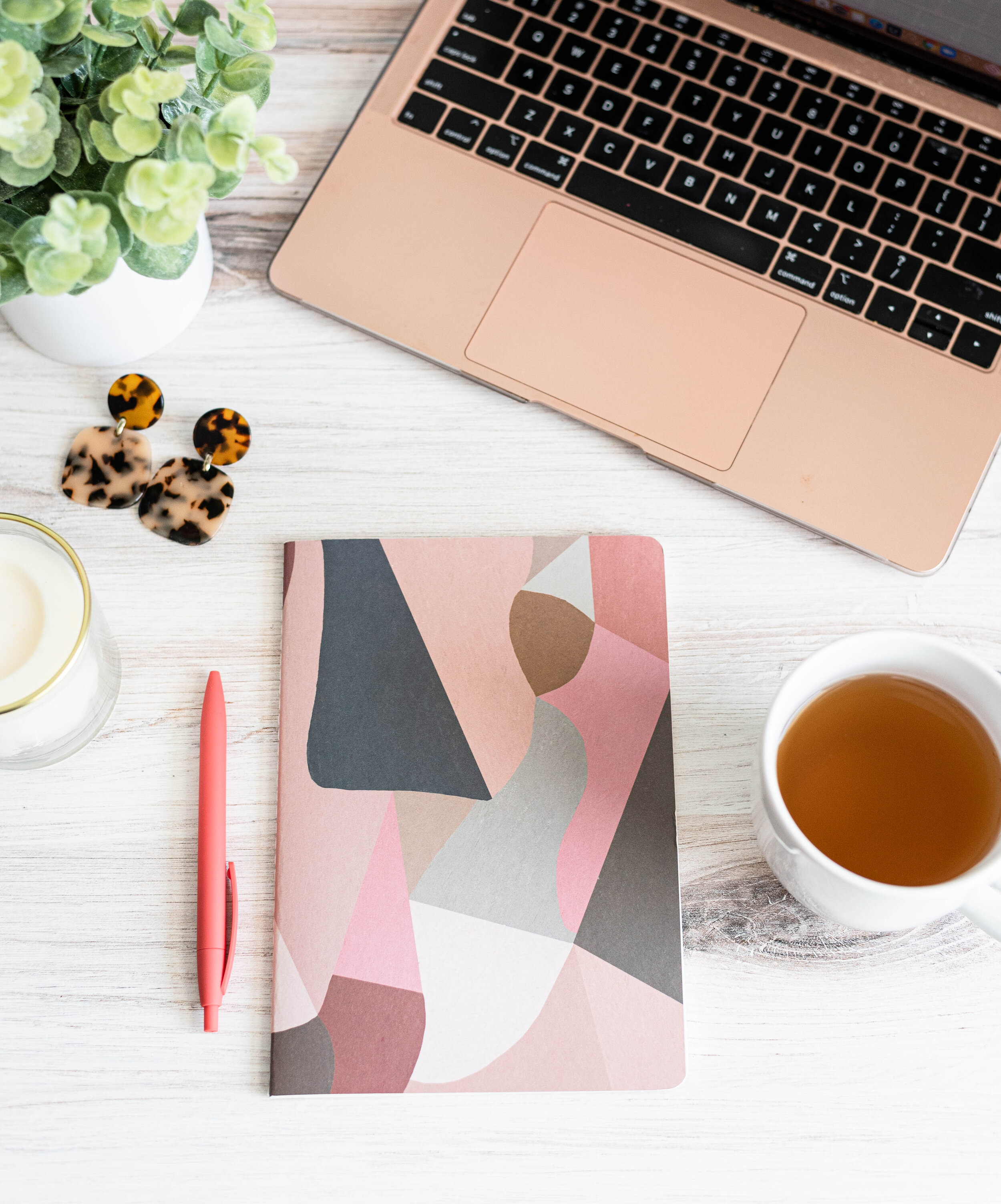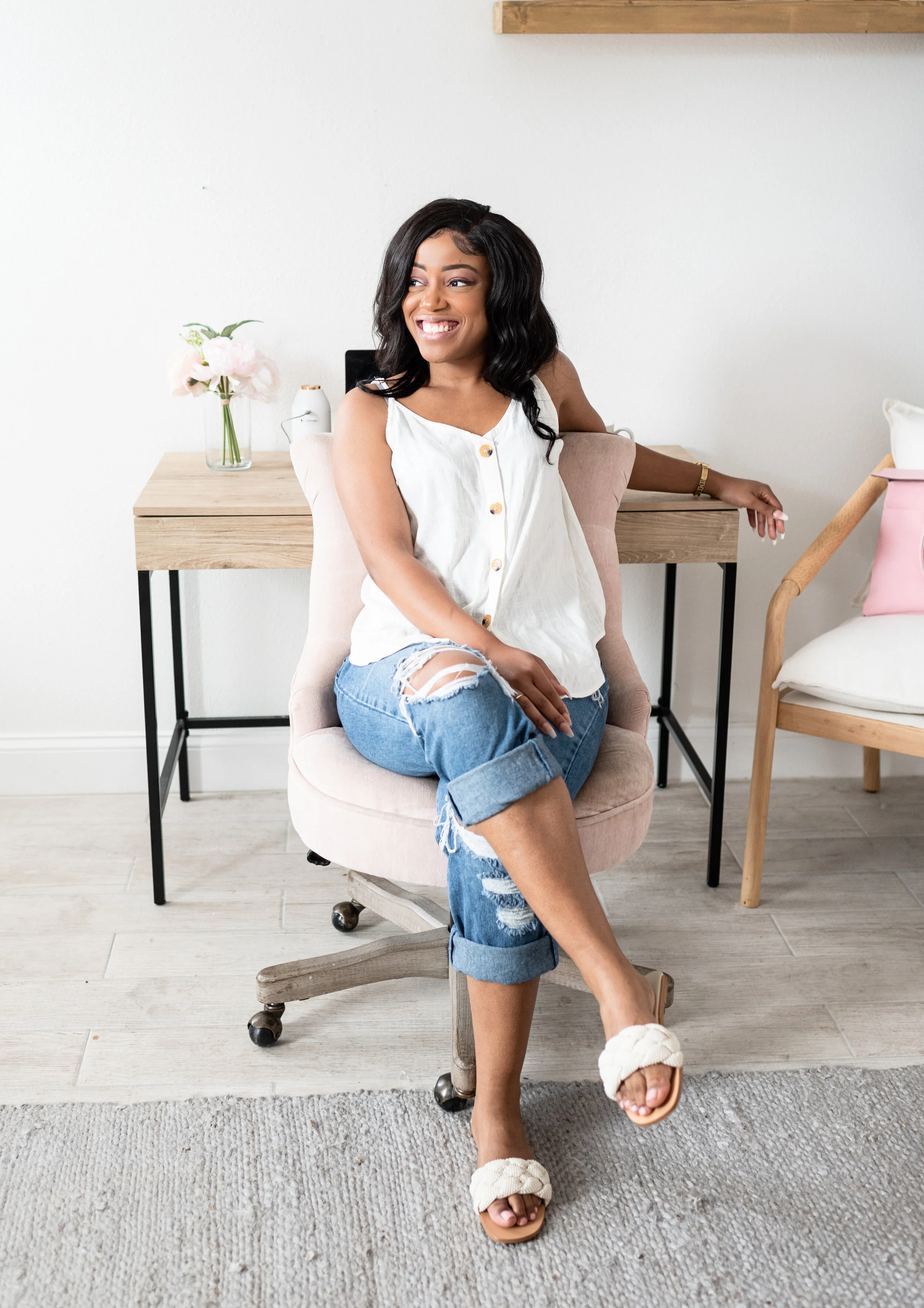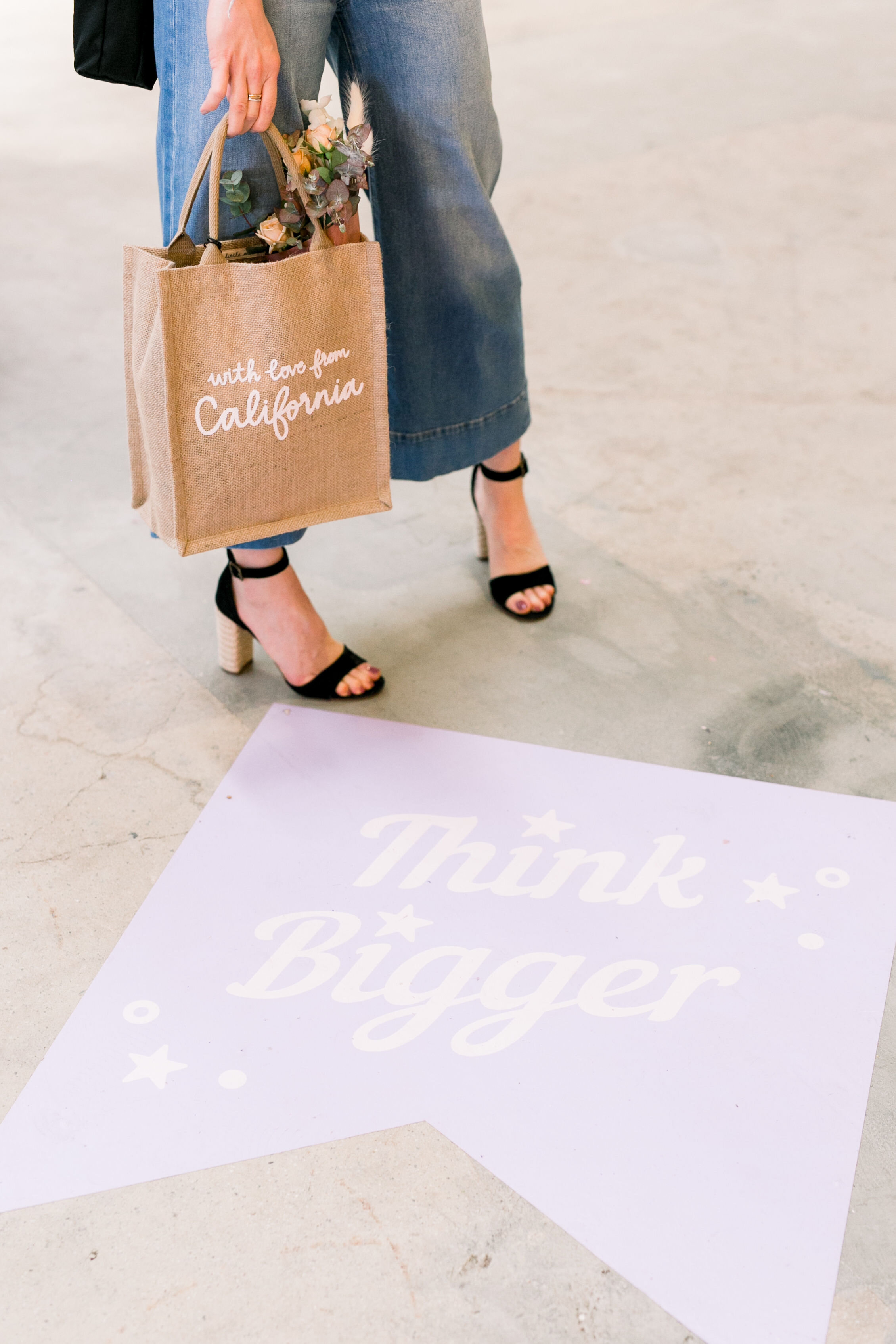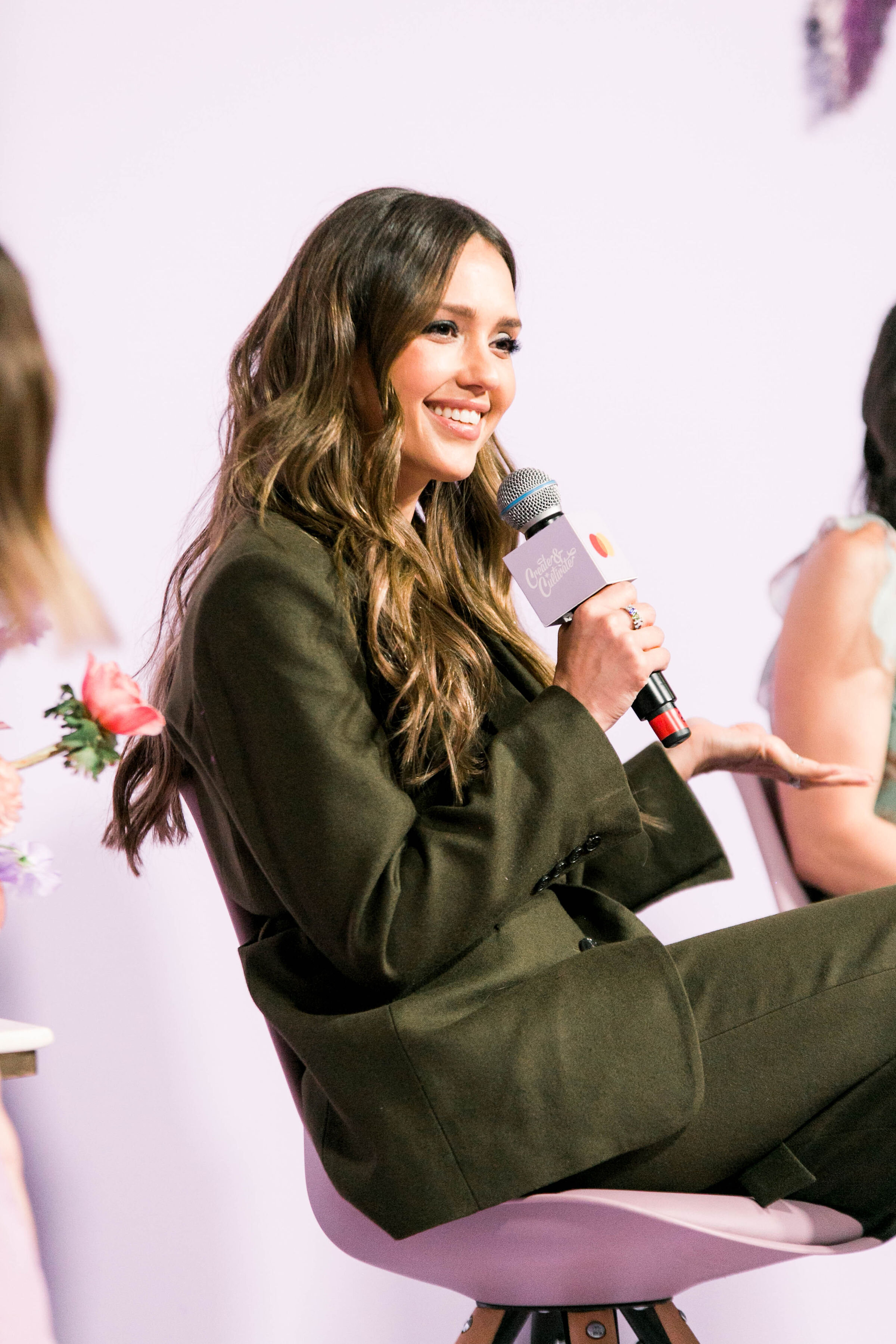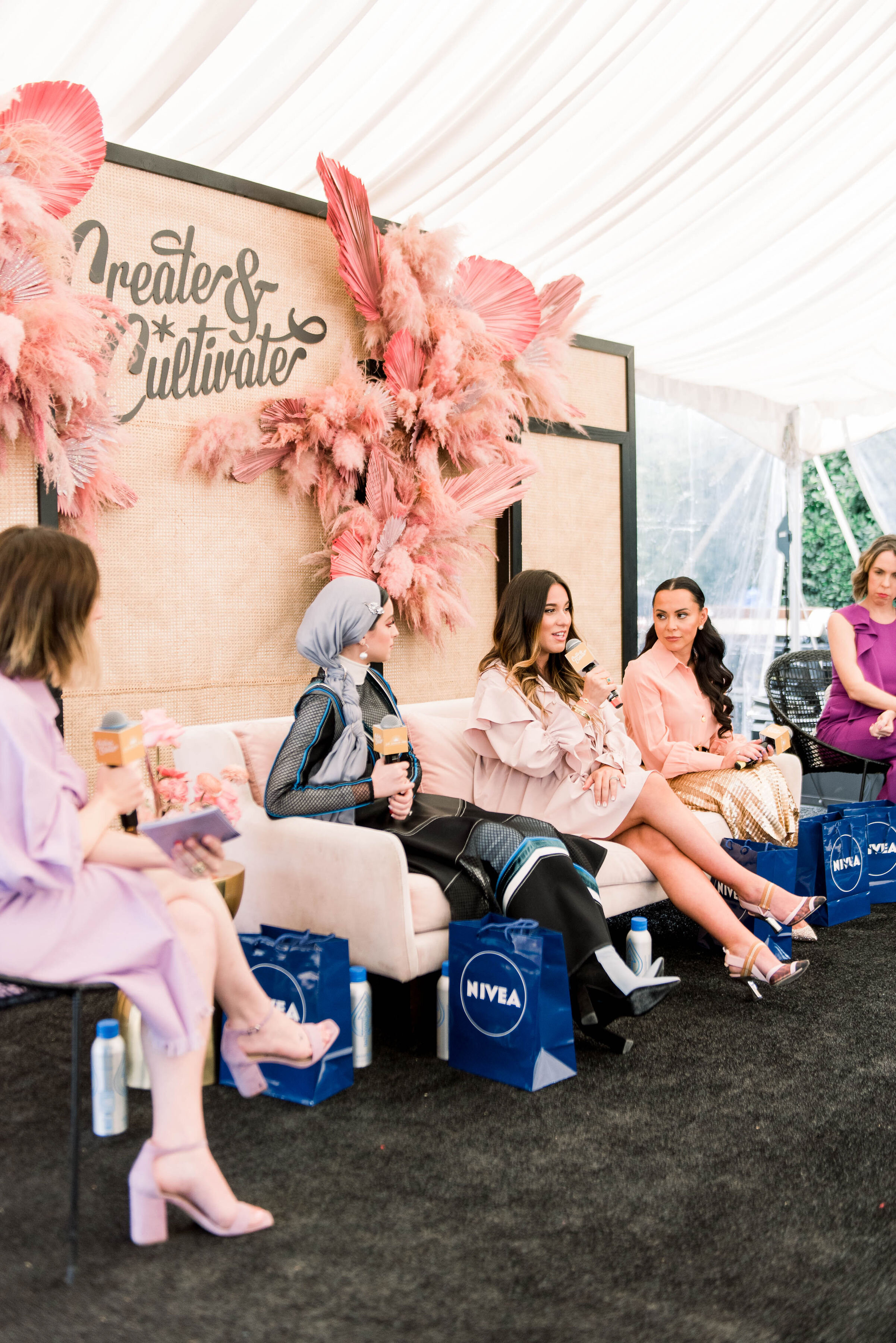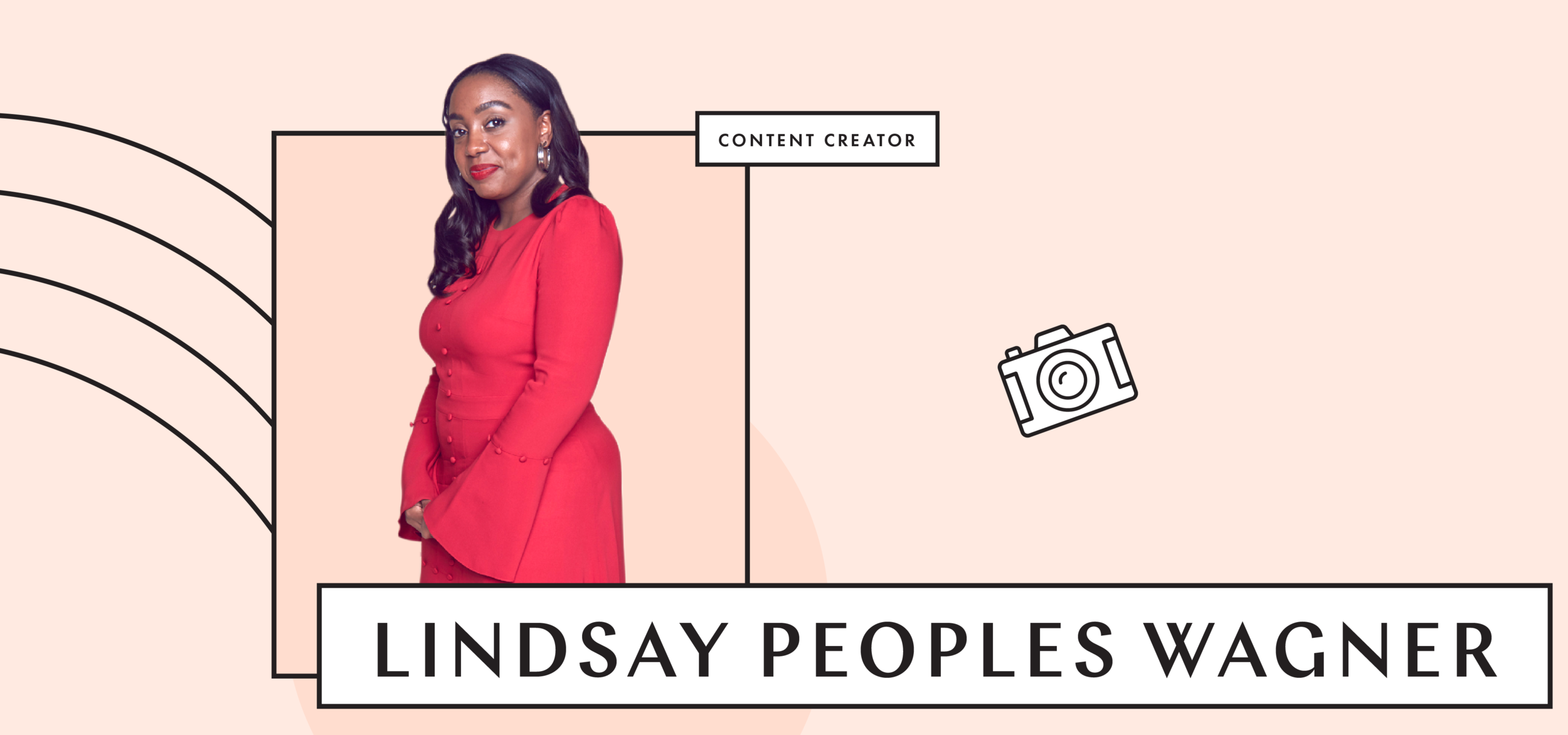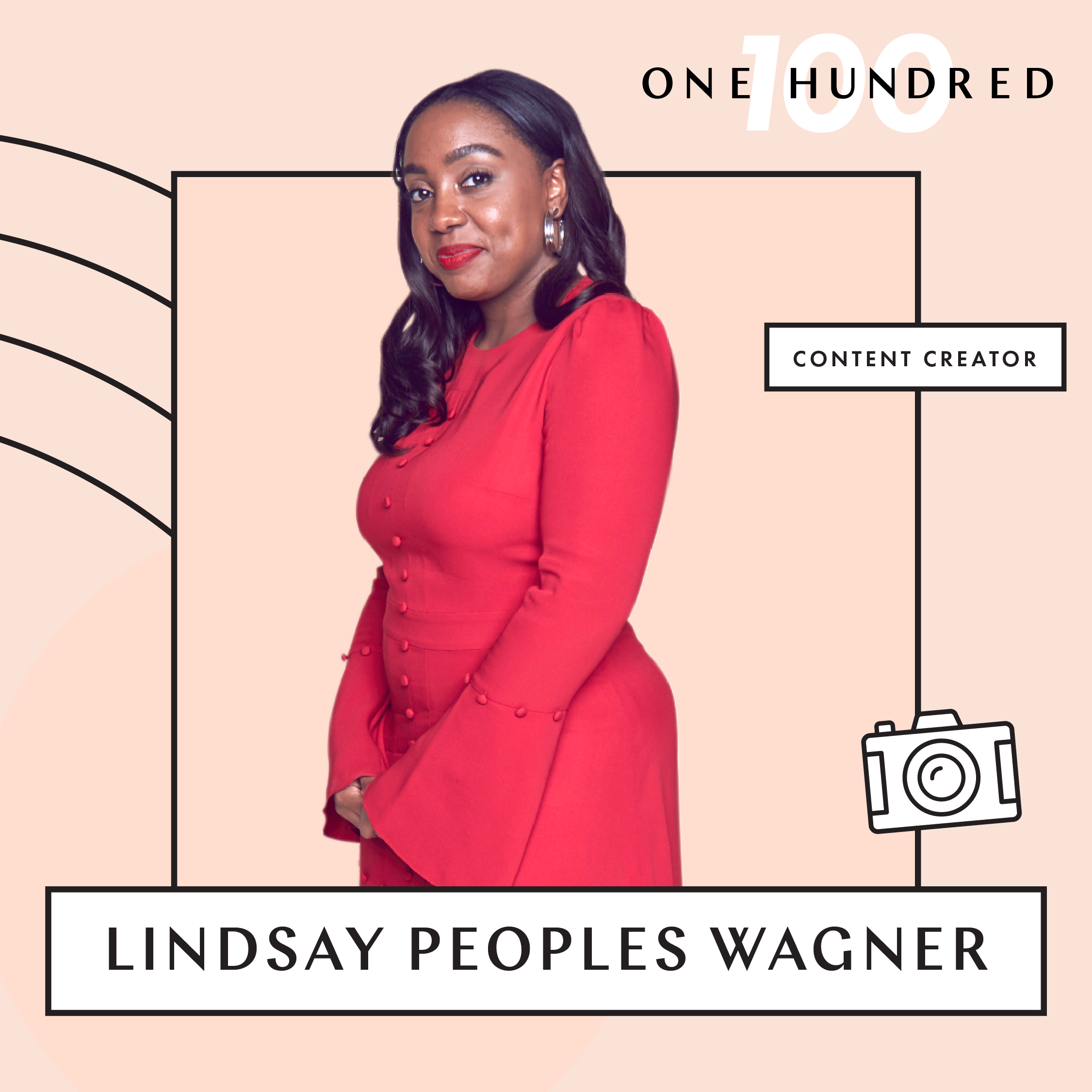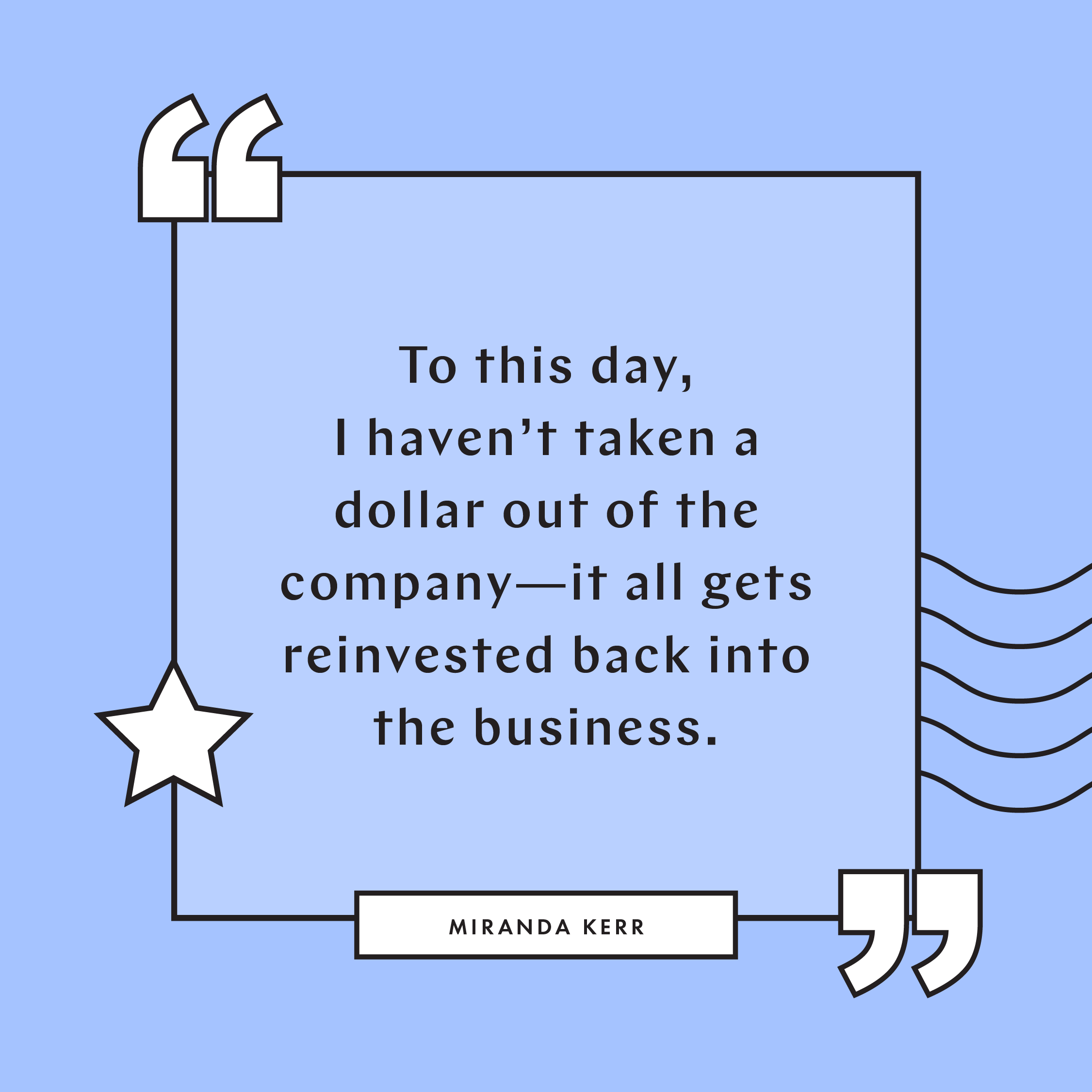Please Don't Do This—5 Things to Avoid After Getting Fired
Fight off the negativity.
Photo: Christina Jones Photography
Getting fired can seem like the end of your career, perhaps even the end of your world. It can severely rock your confidence and lead to fear and anxiety for what the future might hold, with questions like, “How could this happen?” “Will I be able to get hired again?” “What will my family and friends think?” racing through your mind on a loop. Along with sadness and fear comes anger, a common and very understandable response to this highly unfortunate (but more common than you think) event in one’s professional life, particularly if you feel like your termination wasn’t warranted.
Of course, nobody wants to find themselves in their boss’ office having that uncomfortable “you’re being fired” conversation. The fact is, though, getting fired is far from the end of the line in your career development—and your life. As horrible as it feels, most people who get fired bounce back. A 10-year study that tracked over 2,600 executives discovered that of those that got fired, 91% of them bounced back and found a new position that was just as good or better than their last. There’s no reason why you can’t join their ranks and come out of the situation stronger than before!
There are a few important things to consider if the fateful day comes where you find yourself being fired. How you react immediately and in the long-term aftermath can say a lot about your character and how successful you’ll be as you forge ahead in the professional world. Here’s what to do if you get fired (and what not to do.)
1. Never speak disparagingly about your previous employer.
When trying to find a new job, avoid spewing any *disses* toward your previous company, in-person or on social media. Speaking or posting negatively about your old employer can reflect poorly on you to potential employers, painting you as ungrateful, immature, or as having a bad attitude. Remaining respectful when explaining why your relationship with your last company wasn’t ideal demonstrates real maturity. It’s even better if you can put a positive spin on things, like explaining how much you learned from the experience.
2. Never retaliate.
Retaliation post-firing can manifest in several ways—blasting your colleagues or company in an angry Tweetstorm, initiating a confrontation, stealing office equipment, etc. Don’t do this. We promise you, it won’t be worth it, and will more than likely make the whole situation worse by potentially burning any bridges you still have at the company.
It’s very possible that future employers will conduct thorough background checks before deciding to bring you on, and if they seek feedback about your performance, your former employer is much more likely to speak poorly of you if you retaliate after your termination and much more likely to give you a positive recommendation if you handle yourself professionally.
3. Don’t be afraid to discuss the why behind your termination.
We get it, when you’re in the middle of being fired, you may feel like fleeing the scene as fast as possible. Keep in mind, though, you’re owed an explanation for your termination and a thorough one at that. It’s likely that you’ll receive some sort of feedback during your termination conversation—your work ethic is lacking, you’re unfocused, you have an attitude problem, etc. (ICYWW, these are a few of the most common reasons people are fired).
However, you have a right—by federal law—to get a more in-depth picture of where you went wrong. For example, where were the specific areas your employer sees you lacking? What could you have done better? This type of detailed feedback will be invaluable to you in your next position to avoid making the same mistakes twice.
4. Never shy away from asking for help—you just might get it.
There is no harm in asking your employer or colleagues for a recommendation before you leave. It may seem counterintuitive, but it’s still likely they will say yes, making your life easier as you re-enter the job market. You should also ask about how the company will handle any inquiries from potential employers about your time there.
You are entitled to know whether they will provide details about your departure, the dates of your employment, or any other related information surrounding your tenure with the company. You may be able to negotiate with them about the details they disclose, which could really help you protect yourself from unwanted hardship during your job search.
5. Never believe this is the end of your career—you will turn this around.
Getting fired can make you doubt your abilities and potentially question your self-worth. It is important to give yourself the time and space to grieve and feel your feelings—anger, sadness, fear; these are all completely normal, and there is no shame in allowing yourself time to go through them. But don’t let this one unfortunate event derail your future. Come up with an action plan for your next steps, including what you are going to do to find your next job. This downtime is also a great opportunity to network and develop a list of references to list as you apply to new positions.
Though it’s cliché, there is some merit to the saying, “getting fired was the best thing that ever happened to me.” This is an opportunity to make a fresh start and take the time to find a new position that suits you, rather than jumping right into the same situation that could lead you to similar negative patterns. Take the necessary time to collect yourself and recognize that getting fired does not define you, and then commit yourself to moving on in your career, seeking out the opportunities that align more closely with your skills and passions.
About the Author: Susan Levine is the president and founder of Career Group Companies—a leading recruiting firm based in Los Angeles, with offices in New York, San Francisco, Orange County, and Greenwich. Their divisions are comprised of Career Group, Syndicatebleu, Fourth Floor, Avenue Pacific, and events that span a variety of industries. They specialize in executive and administrative support, marketing and design, fashion, events, and C-level placements. As a widely recognized industry name, they pride themselves on placing top-tier direct hire and freelance talent in their dream jobs. They use their expertise to impact the lives of their candidates and improve the company culture of their clients, one exceptional match at a time.
Love this story? Pin the below graphic to your Pinterest board.
This story was originally published on August 28, 2019, and has since been updated.
MORE ON THE BLOG
3 Thoughts That Are Holding You Back From Everything You Want in Life
Words have powerful consequences.
Photo: ColorJoy Stock
Raise your hand if you spend your time stuck in the past reviewing all that went wrong today, yesterday, or maybe even your entire life? How about time spent in the future hoping, dreaming, and wishing that people, things, or events were different than they are? Yes, I see you. Any time spent out of the present moment is time spent creating everything you don’t want. So why do we do it? Our thoughts, beliefs, and actions will lead us to where we are now. We can create change by identifying what our core beliefs are and transforming our belief systems.
I’ve been trained to start with noticing where we are holding our trauma in the body first and then re-programming the mind—learn more on my Emotional Reset Method—yet awareness is still key. I have seen thousands of people reclaim their lives to create what they truly desire in their lives. I recently worked with three completely different people struggling with the same core thought patterns. Ahead, I’m breaking down three thought patterns that will destroy the chance of creating your desires. Read on to learn what they are and how you can turn it around.
1. “I feel like if I let go, something bad will happen.”
Imagine holding a balloon and then squeezing it as tight as you can. That balloon is going to fight you on it. It’s most likely not going to pop unless you poke it with a sharp nail or object. It’s just going to resist you until you’re frustrated, exhausted, and let go. Nothing bad happens, it just isn’t going to change anything.
This goes for life, people and events as well. The more you control something, the more it will control you. More importantly, expecting something “bad” will only increase the chance of you unconsciously creating the “bad.” It is when you release your expectations that you can open to all that’s possible.
The Fix: Experiment with letting go, and setting yourself free. Until you try it, you‘ll never know what is possible.
2.“I feel guilty going and doing my own thing.”
Katie is a wife, mom, daughter, and owner of a successful small business. She wakes up every morning to make breakfast for her husband and girls before running off to work to be available for her staff, then she picks up the girls after school, checks in with her aging mom to be of any assistance she needs, and gets the household ready for dinner along with anything necessary to get done before taking on the next day. For the last three months, she has been feeling a sense of guilt for her desire to start photography classes and fulfill an inner creative calling. As we dialed in on the core root of her pain, she stated, “I feel guilty going and doing my own thing.” Can you relate?
Ignoring our desires and stuffing them down will eventually spiral into anger, resentment and ultimately, a life lived with regret. Any desire that we feel from our heart is meant to show us our own unique path to fulfillment. The more you ignore it, the more unfulfilled you will be. The more you listen and follow, the more inner peace, joy, and fuel you will feel and have to share with the ones you love.
The Fix: Ask yourself, “Do I want to live with regret, or do I want to inspire myself and others with my gifts?” Write down what those gifts are that you want to share. Then start actively working towards making that change.
3. “I am ___.”
Take seven days to write down any words you say on a daily basis that precede the words “I am.” This is what you believe about yourself (and sometimes what you believe about everyone else). Is your mind saying, “I am happy” or is it saying, “I am so mad?” You choose your state.
The Fix: Keep a running list in the note section on your phone and at the end of the week, take the negative statements and re-frame them into the positive. State the positive statements each morning until you feel the change. This is who you really are. You’re welcome.
About the Author: Robin Emmerich has spent close to a decade coaching some of the most successful women in business. Even with their considerable success, the common denominator is that as much as they seemed to be cruising through life on the outside, they were melting on the inside. It’s why Robin just launched Beauty and the Mess—an athleisure brand creating a sisterhood who understands that life is messy and difficult and challenging, but together, can find the strength to prioritize passion over perfection and fearlessly seek beauty in their everyday lives. She currently offers the “Live the Life You Desire” self-transformation course based on the legacy she was graciously gifted from her mentor Dr. Coletta Long, a pioneer and expert on the power of the subconscious mind, individual coaching, and worldwide retreats. Need some inspiration? Download your free meditation to get clear and tap into your inner wisdom at robinemmerich.com. Additionally, you can connect with Robin on Instagram or beautyandthemess.com.
Love this story? Pin the below graphic to your Pinterest board.
This story was originally published on August 7, 2019, and has since been updated.
MORE ON THE BLOG
4 Tips to Land a Job After an Employment Gap
Make your work come back.
Photo: Create & Cultivate
Figuring out how to find a job after a career break can be frustrating. Many jobs want to hire candidates with recent work experience, and if you don’t have that, the job application process can be extremely daunting.
While it may feel as if you’re stuck in a perpetual state of unemployment, there are many ways to get back into the workforce after extended time off.
Stay active, and show this on your résumé!
Most of the time a career break happens due to other obligations. Whether it’s raising children, taking care of a sick family member, or other personal reasons, taking time off from traditional employment rarely means that you’re just sitting around twiddling your thumbs. Even if you’re not working for profit, one of the most important things to do when you’re trying to find a job after a career break is to highlight what you’ve been doing. This can be anything from volunteering at a school or local charities, to any side projects or side jobs you’ve taken on.
Highlighting how you’ve been staying active in your community will give you something to put on your résumé and it will help you network. You never know who you’ll meet and who will notice your work ethic. Volunteering isn’t only about networking, but it gives you something current to put on your résumé. If your last position ended years ago, your résumé may get overlooked simply because of the fact that there is nothing current on it. However, if you highlight what you’ve been doing in the interim, (i.e. volunteering, raising kids, caring for a family member, etc.) you can use that to fill in the time where you weren’t working. Even if you volunteer once a week or once a month for a span of time, you can use that to fill in employment gaps. As an added bonus, a study found that volunteering is associated with 27% higher odds of employment.
Network
Networking is essential to finding a job, but when you’re coming back after a career break, it becomes more important than ever. According to studies done by Glass Door, referrals are associated with a 2.6% to 6.6% higher chance of an accepted job offer. Reach out to recruiters, friends, and industry professionals to put the word out there that you’re looking for a position. Often people won't know that you’re in the market for a new role, and if they don’t know, they can’t help you. It’s a very small world, and you never know who might have an industry connection or information on an upcoming availability.
Go out and get coffee with friends or family in your industry. Pick their brain and ask if they have any suggestions for how to find a job after a career break. They may know of an opportunity which you can use to boost your résumé or skill set.
Another great option is to reach out to recruiters. There seems to be a negative stigma about working with recruiters, however it can be wildly beneficial, especially if you have a large employment gap on your résumé. Recruiters often have inside knowledge on positions that haven’t been posted to the public. They also have direct interaction with hiring managers and will be able to get your résumé in front of someone immediately. How do you get in touch with a recruiter? Do a simple google search or look for recruiters on LinkedIn. Recruiters are always looking for strong candidates, so if you can reach out and highlight your motivation or skills, they will almost always be willing to help with your job search.
Take a Class
Are you volunteering and networking but still find yourself with extra time on your hands? Take the opportunity to learn a new skill or brush up on old skills by taking a course. If you want to get out of the house and have somewhere to go, look into community college courses. Don’t want to make that sort of commitment? Go for online courses you can do at your own pace.
Do you notice that a lot of jobs require QuickBooks or another specific software? Take an online tutorial or course so you learn about the program and can put it in the skills matrix of your résumé. You don’t need to become an expert on it, but if you can take a course to familiarize yourself with the subject or program, you’ll be able to include that information on your résumé. Ensuring that you have the skills and software knowledge that employers are looking for will help you find a job after a career break.
At the very least, watching YouTube tutorials will give you a better understanding of how the software works. This way you can include “Familiar with [software]” on your résumé. Including this phrase will help your résumé become more searchable, and will bring you up when a hiring manager or recruiter searches for candidates with that software knowledge.
Explore Contract or Temporary Positions
The temporary employment industry employs millions of Americans. While there seems to be a negative connotation with the words “temporary” and “contract,” these positions can open many doors for you. Contract and/or temporary work can help you in four main ways:
It will give you current work to put on your résumé
It gives you immediate income while you’re searching for a long term position
It lets you network with industry professionals
It gives you the opportunity to show off your capabilities
If you excel at your temporary position, chances are that you will meet people who can a) point you in the right direction, b) know of a job that may interest you, or c) will work with you to keep you at the company but progress to an area that best suits your qualifications.
There is truly no downside to temporary work. It’s not always smart to take a position in an industry or path you’re not interested in, temporary work gives you the opportunity to explore your options and networking opportunities.
While it may be intimidating and daunting, learning how to find a job after a career break isn’t as hard as it seems. The most important things are to stay active and highlight your skills and abilities. Don’t be stagnant and wallow in your sorrows. Take charge of your life, get out there, and make it happen!
About the author: A native San Franciscan, Michele Lando is a certified professional résumé writer and founder of writestylesonline.com. She has a passion for helping others present the best version of themselves, both on paper and in person, and works to polish individuals' application package and personal style. Aiming to help create a perfect personal branding package, Write Styles presents tips to enhance your résumé, style, and boost your confidence.
Love this story? Pin the below graphic to your Pinterest board.
This story was published on September 23, 2018, and has since been updated.
MORE FROM OUR BLOG
10 Things You Should Never Do in an Interview (and How to Avoid Them)
Be prepared.
Photo: Create & Cultivate
Did you know that it takes the human brain less than one second to pass judgment on someone’s character? This means that within a tenth of a second of you walking into your interview, the hiring manager has already conducted an evaluation of your initial character based on your presence and appearance alone.
Your interviewer has been trained to identify key signals to help them determine if you have the skill set and appropriate temperament to fit in with the organization and execute your job. The company will most likely have several other applicants interviewing for the role, and limited time to fill the position, so it’s essential for them to take all things into consideration during the interview process.
That’s why, if it comes down to you and another candidate, one thing as minuscule as a buzzing phone can hurt your chances of securing the role. While you are prepping with mock interviews and researching the company, Career Group Companies’ president and founder, Susan Levine recommends these top 10 things you should avoid during the interview.
1. Never Fail to Prepare
Reading the “about us” section on the company website while you’re on the way to the interview will not give you the full scope of what the company does. Now, almost every company has multiple social media pages, an official website, and a LinkedIn profile. Check them out.
How to avoid it: Insta-stalking isn’t just for snooping on exes. Do your research on the company, its founders, and your department.
2. Never Be Late
Showing up late to your interview sets a bad precedent before your potential new job even starts. If you can’t make it on time to your first meeting with your prospective employer, how can they be confident that you’ll show up on time once you get the job? More importantly, being late shows a lack of respect and consideration for other’s time regardless of the reason.
How to avoid it: Take a trip to the interview location if you can to calculate traffic and timing. If you can’t make the trip, type the address into Waze or Google Maps at the approximate time you’ll be traveling over the course of a few days to get a sense of traffic and how long it will take you to arrive. Always give yourself a 15-minute cushion in case of any unusual traffic.
3. Never Forget Your Resume (Bring Extra Copies!)
Your interviewer may already have a printed version of your resume on hand when you arrive, but you still need to be prepared in the event they ask you for a copy. Often, employers will ask you for a copy as a test.
If they don’t have a resume printed before your arrival, rather than have them comb through a sea of digital applications or stacks of resumes on their desk, you can easily hand over a copy to them. You’ll also be prepared if you have to meet with any other department team members.
How to avoid it: Place your resumes neatly in a folder and pack it the night before your interview.
4. Never Interrupt Your Interviewer
Interviews can be nerve-wracking causing some people to appear and become overly enthusiastic. Regardless of how excited you are to list off your accomplishments and ideas for the company—which you should do at some point—it’s important to listen intently and pay close attention to what your interviewer is saying.
How to avoid it: The best kinds of interviews flow naturally. In order for this to occur, it’s critical for you to listen carefully. Take a moment to process his or her words before answering so you can craft a meaningful response. When it’s your turn, feel free to share any ideas, or revisit any of the points the interviewer brought up that will help position you as the perfect candidate.
5. Never Dress Casually
Never judge a book by its cover? Your book cover is most likely always being judged as you walk into an interview. That’s why dressing professional no matter the organization’s dress code ensures a better “safe than sorry” approach. Yes, even dressing casually for an interview at a company with an informal dress code can still be frowned upon. Your interviewer may be wearing sneakers and leggings, but he or she already has the job—you do not!
How to avoid it: For companies with a strict dress code, you can’t go wrong with slacks/skirt, a button-down, and a blazer. If the companies a bit more on the casual side, opt for business casual. Utilize Who What Wear and Refinery29 for appropriate outfit ideas ahead of the big day.
6. Never Wear Sunglasses on Top of Your Head
Now that summer is in full effect, you might be sporting shades every day. Out of natural habit, most people subconsciously push their glasses on top of their heads when they come out of the sun. Don’t make this mistake. Similar to dressing casually it will give off the impression that you’re not well-polished or taking this interview seriously.
How to avoid it: Keep your sunglasses at home or leave them in your car.
7. Never Forget to Turn Off Your Phone and Smart Watch (Because It’s 2020)
Putting your phone or smart watch on vibrate will not suffice because a buzzing device can be distracting. You’ll have to excuse yourself while you dig in your bag to silence your phone, or constantly look down at your watch as the notifications roll in. Any type of unnecessary interruption is distracting and can make you come across as unprofessional and unprepared. When choosing between two nearly perfect candidates, this type of incident could be the reason you don’t make the cut.
How to avoid: Turn your phone or watch completely off before you enter the office and leave it in your bag.
8. Never Lose Eye Contact
Maintaining consistent eye contact during an interview makes you appear confident, in-tuned and trustworthy. It is widely believed that avoiding eye contact during a conversation can be an indication that you are disconnected or uninterested in the conversation, or could potentially be lying. You may have the usual interview jitters, but your actions could be perceived otherwise if you’re staring up at the ceiling, out the window, or down at the floor.
How to avoid it: Practice mock interviews with friends or family members. Ask them to take notice of how often your eyes drift during the conversation. Record yourself with a camera so you can find and correct any bad interviewing habits.
9. Never Walk in With a Beverage
Unless your interview is in a coffee shop, don’t walk into it with a beverage. It shows a lack of business etiquette, it can be a distraction, and it may give off the wrong impression.
How to avoid it: Hydrate beforehand.
10. Never Project Negativity
Whether you’re having a bad day due to something out of your control or you’re suffering from imposter syndrome, leave it at the door. Everyone has occasional bouts of negative self-talk but don’t sabotage your own success. A negative attitude can be easily detected and everyone from the receptionist to the CEO will be evaluating your performance during the pre-hiring phase.
How to avoid: You landed the interview, right? So, you’ve clearly already impressed them. Use that confidence and take a few minutes to meditate and clear your head before you go in, if needed. Replace the negative thoughts with positive affirmations. You got this—be your true, confident self.
Now that you are well-prepared on what to avoid, remember that you received an interview request for a reason. Your prospective employer is confident that you’re just as impressive in person as you are on paper, but you’ll need to prove them right. It’s easy for an eager candidate to overlook the aforementioned gaffes but no amount of experience or education can make up for these critical mistakes. Be sure to double-check our list before your interview and remain positive. Good luck!
About the Author: Susan Levine is the president and founder of Career Group Companies—a leading recruiting firm based in Los Angeles, with offices in New York, San Francisco, Orange County, and Greenwich. Their divisions, comprised of Career Group, Syndicatebleu, Fourth Floor, Avenue Pacific, and events span a variety of industries. They specialize in executive and administrative support, marketing and design, fashion, events, and C-Level placements. As a widely recognized industry name, they pride themselves on placing top-tier direct hire and freelance talent in their dream jobs. They use their expertise to impact the lives of their candidates and improve the company culture of their clients, one exceptional match at a time.
Love this story? Pin the below graphic to your Pinterest board.
This story was originally published on July 5, 2019, and has since been updated.
MORE ON THE BLOG
What It Actually Means to “Find Your Passion”—and How to Start Acting On It Right Now
Because we spend over 90,000 hours at work over our lifetime.
Photo: Smith House Photography
Oftentimes, we enter our first—or second, or third—jobs and are shocked to find that it doesn’t align with our values, skills, or passions. It’s almost as if we were sold “The Dream,” but ended up drowning in emails instead.
Of course, there are aspects of work that will never be enjoyable—like taxes or back-and-forth scheduling—but given that we spend over 90,000 hours at work across our lifetime, the majority of it should be fun. Interesting. Passion-driven.
Sadly, this isn’t the case for most of us. Over 80% of Americans today say that they are not passionate about their job. So, if you feel like you’re the only one who is confused or frustrated by the lack of passion for your career, you’re not alone.
But, it is possible to do something you love without sacrificing your values, skills, or sanity. Trust me, as a career confidence and conscious decision-making coach, I’ve helped dozens of humans align their passion and purpose into a long-lasting career.
Here are five things you can do right now to get started on that journey.
Look back to your childhood days
Our passion isn’t something that we need to “discover.” Oftentimes, the things we loved doing as a kid are directly aligned with activities that still bring us joy. We’ve just been forced into a certain career or lifestyle because of society’s rules about what we’re “supposed” to do as adults.
So, spend time looking back on your childhood hobbies. Ask yourself: What did I do just for fun? What activities was I really good at—even if I can’t picture it as a career right now?
Reflect on what you can’t stop doing *right now*
Take a step back from your current day-to-day and think about the moments that bring you joy. That you do without anyone forcing you to complete them. That de-stress you or simply make you feel really good.
They can range from giving advice to a friend, or doing watercolor painting. Again, don’t worry about how you can create a business from them just yet.
Give yourself one minute to write down as many ideas as you can be based on your gut feeling. Then, fill in any gaps that you may have missed.
Spend time connecting the dots
Now, it’s time to bring that strategic thinking into play. Spend some time alone, reviewing your two pieces of “homework” from earlier. Become a trend spotter: What similarities are there between your childhood self, and the version of you who is free and uninhibited?
Oftentimes, our truest self comes out when we’re in a childlike state, or have no other purpose than simply having fun. Although “finding” your passion may have seemed overwhelming before, it’s clear that your passion resides somewhere deep inside of you, you just need to listen a little more.
Spend time asking yourself: How can I inject more of this into my career and daily life? If you love connecting deeply with others, assess if your current role allows you to do that often. If you love painting but can never imagine yourself becoming an “artist,” are there ways that you can support others in that space?
Get an accountability partner
Changing your life is downright difficult! It’s okay—and important—to admit that making these changes is hard to do on your own.
Take some time to figure out your best course of action. Is it finding a friend in a similar position and having weekly calls to hold each other accountable? Is it joining a mastermind group? Is it investing in yourself and hiring a coach?
Be honest with yourself and assess what is most realistic for you right now. Most importantly, don’t feel ashamed that this is something you need extra help with.
Take your first step, no matter how small
One of the most difficult parts about discovering our passion isn’t the journey of finding it, it’s doing something about it. This is often where our fear and limiting beliefs come into play. We believe that we don’t have the right skills or enough experience. Imposter syndrome hits us real hard.
Take this as your sign that no matter where you are right now—you are enough to get started. Create a plan to take that first step, no matter how small, towards living in your purpose. Whether it’s writing your first blog post or creating a shop on Etsy, trust yourself.
You’ve got this!
This post was originally published on June 8, 2019, and has since been updated.
MORE ON THE BLOG
I Have Been Working From Home for Years—This Is How to Do It Successfully
“I totally use my phone as a procrastination crutch—it's incredibly helpful to just have it out of sight, out of mind.”
Photo: Lisa Fotios for Pexels
Given that many companies are implementing work-from-home policies to help flatten the curve and prevent the spread of COVID-19 (Create & Cultivate included!), we decided to reach out to some real work from home-office pros to find out how it’s done. Because, as enticing as working from home sounds in theory, it takes a surprising amount of discipline to stay productive and on-task with all the distractions that come with being at home (we’re looking at you, Netflix, pile of laundry, and sink full of dishes).
Ahead, six full-time WFH experts—spanning a senior fashion and beauty editor who’s been working from home for 7 (!) years to an editorial director who’s been working from home for 2 1/2 years to an acclaimed author who’s been working from home for just 8 months—share their tips and tricks for staying motivated and productive while working from home. Keep scrolling to find out how to establish a morning routine that will set you up for success and how to wind down and disconnect at the end of the day.
What time do you wake up? What’s the first thing you do upon waking?
I usually wake up between 6:15 and 6:30 am, depending on how many times I hit the snooze button. It's a habit I'm trying to break, but the first thing I do when I wake up is check my phone. My office's HQ is in New York, so by the time I get up, I've gotten a handful of emails and messages already.
Can you walk us through your morning routine? How does it set you up for a successful and productive workday?
I'll have my morning coffee, turn on NPR to listen to the news, and continue checking my emails and, yes, Instagram. I aim to get to the gym by 7:30 am unless I sign up for an earlier Barry’s or SoulCycle class. Checking my emails and my schedule and fitting in a workout in the morning put me in the best mindset for a successful and productive day. If I don't get a workout in, I'll spend the whole day thinking about how I'm going to squeeze it in later. I feel like it's my way of meditating and having "me" time before what's usually always a busy day.
“When you work from home, it’s easy to just plop onto the couch with your laptop, but I make it a point that the couch and the TV are off-limits during the workday.”
Do you have a dedicated workspace in your home? What helps you stay on task and protect your time from cleaning the house, doing laundry, or running errands while you're WFH?
I do and I think that's really important! When you work from home, it's easy to just plop onto the couch with your laptop, but I make it a point that the couch and the TV are off-limits during the workday. Making a to-do list and a rough schedule keeps me on task, as well as scheduling in breaks because realistically, I'm going to throw some laundry in or pick up some lunch. But as long as I allot myself a small window of time to do those things, then I don't feel guilty about it — it's just part of my schedule.
How do you prevent work burnout? How do you stay motivated and productive throughout the day?
After working from home for 7 years, I still struggle with this. It's really hard to disconnect at the end of the day from work because I work where I live! I really try to make an effort to turn my laptop off and not check my work emails after 6 pm, but I have to say, it's really impossible in the line of work that I'm in. But something I have gotten a lot better at is not working or responding to work emails during the weekend. That has really helped me avoid work burnout.
How do you wind down and log off at the end of the day? How do you separate your work time from your free time?
I make sure my laptop is out of sight! I take my dog for a walk, I cook, I have a nice, phone-free dinner with my husband, I call a friend. Separating work time from your free time is really about making a schedule for yourself and sticking to it, including when to stop working.
Nicole Lesmeister, Writer & Editor
WFH Experience Level: 3 years
What time do you wake up? What’s the first thing you do upon waking?
I wake up around 6:30 am. During this uncertain global situation, I’ve been trying to let myself wake up naturally and get all the sleep I need, but I go to bed around 10:30/11 pm, so my internal clock still gets me up at that time. The first thing I do is (avoid my phone for 30 minutes to an hour) scrape my tongue and do 5-10 minutes of oil pulling to deep cleanse, Ayurveda-style. Wellness truly begins in the mouth!
Can you walk us through your morning routine? How does it set you up for a successful and productive workday?
I then have a tall glass of warm water with lemon, because when you dehydrate overnight, your brain actually shrinks by 20%! Gotta lube up the ol’ noggin. I brew a pot of hibiscus tea or make a matcha if I’m feeling groggy and have a little quiet time with a book or just with my thoughts while I sip it, before I do some movement.
Depending on the day, I might do a HIIT or some yoga. I have a go-to flow, but when I feel like mixing it up, I’ll look up a Yoga With Adriene video on YouTube. She has a ton of really great free videos, and there are always video workouts on ClassPass you can do at home, too!
Moving in the morning is really crucial to me for feeling energized throughout the day and avoiding a wandering mind as soon as I open my computer. It gets the blood pumping and something about a good sweat first thing just makes me feel strong and powerful.
I do some vigorous dry brushing afterwards, hop in the shower, and make a simple breakfast– my favorite is soft scrambled eggs with some sautéed greens like dandelion and kimchi.
“I schedule little breaks, so I try to do a significant amount of work on something before I make an afternoon snack, or go to pilates, take a walk, or run to the grocery store. It’s all scheduled in, so I’m not wandering away from work on a whim.”
Do you have a dedicated workspace in your apartment? What helps you stay on task and protect your time from cleaning the house, doing laundry, or running errands while you're WFH?
I have a desk where I always start work, but after I take a pause for lunch I always find myself rotating to sitting at the higher bar area of my counter. I love the afternoon sun that seat gets; it’s a comfy perch and I feel productive there.
I rely on my daily planner from Oh Deer so much. It’s organized perfectly for me with an objective section, urgent section, list section, notes, and even a little space for doodles (!). I reference my Google calendar to see if I have any calls or meetings scheduled, and make a detailed list here right away, listing them in order from top priority to lowest priority of the day. I do this because I like to make an ambitious list that is still realistic, so if my day doesn’t go as perfectly streamlined as planned (they rarely do, right?) then at least the major objectives are taken care of.
One thing I make sure to do so that I avoid being distracted by errands and house tasks is to add them to my list if I need to do them. I decide what day I can squeeze them into or what day it makes the most sense, and stick to a day and time that I do them.
How do you prevent work burnout? How do you stay motivated and productive throughout the day?
I set tiny goals for myself, or little deadlines throughout the day. Like, “Let’s do a chunk of this client until noon, and get it done” (or a ¼ of the way done, depending on the project size and deadline, etc). I also schedule little breaks, so I try to be done with something or do a significant amount of work with something before I make an afternoon snack, or go to pilates, take a walk, or run to the grocery store. It’s all scheduled in, so I’m not wandering away from work on a whim.
I also cut myself off from working too late if I have a day in which I start work early, which is ideally most days. When you WFH, it’s easy to feel like you work a 15 hour day when you don’t account for or schedule in the typical distractions… but even in an office no one works eight full hours. About five true, solid, productive hours a day is typical for the average human.
If I have a deadline that day, I might work a little later, but essentially I give myself a cut-off time to make dinner and that lights a fire under my own a$$ to get what I need done at a decent time (5 or 6 pm) so I’m not burning out my retinas with blue light into the evening. No one is producing pure gold after dilly-dallying on their computer all day and into the evening anyway. My clients deserve my best self.
How do you wind down and log off at the end of the day? How do you separate your work time from your free time?
Carving out that cut-off time to prepare a nutritious but thoughtfully tasty meal is my ultimate act of self-care (and love language to my S.O.). It’s meditative, resetting, and gives me unwind time after to rest and digest so I can sleep well and be productive again the next day! Sometimes I’ll start my to-do list for the next day in my planner if I’m feeling juiced about it, but most often I just prep the kitchen for the next morning, set out my tea, fill the kettle. Stuff like that.
Depending on the intensity of the movement I did in the morning, I’ll usually try to take a little walk after dinner or some light stretching or foam rolling. Being a writer requires a lot of sitting, so making sure I move my body in intervals throughout the day keeps me from feeling tight and weighed down by my own poor posture (lol working on it) and gravity.
Because my S.O. and I have our shows we like to watch together for some cuddle time on the couch, I always make sure to read a little before bed in some warm light. Gotta allow the eyeballs some non-screen time so that my circadian clock can recalibrate! About 30-40 minutes is lovely, but sometimes it only takes me 15 to drift off.
Kelly Dawson, Freelance Writer and Editor & Editorial Director, Semihandmade
WFH Experience Level: 2 1/2 years
What time do you wake up? What’s the first thing you do upon waking?
I wake up around 7:00 am. My alarm is on my phone, which has been a habit I've been meaning to break for a while. But I do keep my phone on the opposite wall, away from my bed, so I have to get up to turn the alarm off. The first thing I do when I wake up is open my blinds, open the window, breathe in the fresh air, and make my bed. Yes, I make my bed every morning, and I do think it helps me start the day on a good note.
Can you walk us through your morning routine? How does it set you up for a successful and productive workday?
Ideally, my morning routine goes like this: I have breakfast, which is shorthand for I drink a strong cup of coffee with food. I watch a few minutes of CBS This Morning while I eat, change, and then do about a half-hour or so of stretches, weights, or cardio—I alternate the days to make it more fun. After that I get dressed, which is always an interesting topic for people who work from home. I know that it's usually perfectly fine if I wear sweatpants, but for the most part, I pick out an outfit, do my hair, and maybe put on makeup. It's nothing that doesn't take 10 minutes or so. I find that if I don't get dressed, I'm not as focused.
Do you have a dedicated workspace in your home? What helps you stay on task and protect your time from cleaning the house, doing laundry, or running errands while you're WFH?
I have a desk that I work at every day, and I work between 8:30 am and 6:30 pm, give or take. I think the thing that really helps me stay on task is a day planner. Every night before shutting work down I write a to-do list of all the things I need to accomplish for the next day, and I split it into columns. The left side is for the big stuff I have to do—write a story, do an interview, whatever—and the right side is for all the smaller things to get out of the way, like emails to send. I do the hardest ones on the list first, while the caffeine is still flowing, and then move on to the easier ones. I try to keep the list reasonable so that I don't feel panicked about completing everything. And to be fair to myself, whatever doesn't get done carries on to the next day. The goal is to keep from scrambling on Friday, which thankfully hasn't happened yet. I should say that most of my work-from-home schedule is on a weekly basis, which is why I can play with things a little.
As for email, I only check it at the start of the day, before lunch, and then right before I close up shop. I usually pretend I don't have a TV after breakfast, and I keep my phone either off or out of sight unless I'm using it for work. If I didn't do this it would be a slippery slope into Bravo and Instagram binges.
I don't necessarily think it's a bad thing to do laundry at home during "work hours" if you can swing it. I sometimes use it as a great gauge of time. For instance, like most people, my inbox is a never-ending black hole of notifications. But, I know that my washer takes about an hour to do a standard load. So that's how much time I give to answering emails before throwing things in the dryer and moving on to actual work. The same thing goes for cleaning and errands. If I'm stuck on something, I clean for a bit, run a fast errand, or go for a quick walk. That helps me think things through without staring blankly at my computer or scrolling some site. I still do that, I'm not a robot, but I try to be very aware of how I spend my time.
When you're in charge of your own work schedule, you can—and should—be flexible. But that flexibility has to have boundaries so that you don't get distracted. If you're more of a morning person, then get up earlier: It'll mean every afternoon can feel like a weekend. If you're more of a night owl, sleep in: It'll mean you can have slower mornings. But tell yourself that you're working, you're not just hanging out at home, and you need to plan accordingly. Of course, I'm saying all of this without children to worry about, which will obviously add a layer of complication to everything. As far as my universal advice goes, just try to be kind to yourself as you figure it out, and do your best to be intentional. I started my work-from-home life as a morning person, spent some time as a night owl, and now I'm in the middle. There are some days that completely get off track, and that's fine too. You'll get back on track tomorrow.
“The thing that has really helped me successfully work from home, minus a day planner, is my community of office and freelance friends. I check in with them daily, and we either tackle a work problem together or just send funny things to each other. ”
How do you prevent work burnout? How do you stay motivated and productive throughout the day?
The thing that has really helped me successfully work from home, minus a day planner, is my community of office and freelance friends. I check in with them daily, and we either tackle a work problem together or just send funny things to each other. That helps me feel like I'm not in a little bubble, even if the messages come in little bubbles. On the good days, I'm motivated and productive because I'm really into the work I'm doing and it's all coming together. On the bad days, I motivate myself with things like, "Ok, if I finish this task then I can have some candy or read the new magazine that came in the mail." There's also something to be said about not checking something off my to-do list. Only I would know, but that's enough of a motivator for my type-A personality. If you need someone to hold you accountable, my community also has "motivation buddies." We pair off, and our buddy knows what we need to accomplish and our ideal timeline. Then we check in with each other on how the project's coming along and what kind of support we need to make it happen.
Work burnout is a real possibility when instead of an in-the-flesh boss, there's just this omnipresent feeling of a boss. That feeling can give you the idea that you have to answer all the emails and do all the things right this second, because this omnipresent "boss" can feed off the guilt and anxiety you have about being at home. First off, working from home is still working, and it doesn't need to be qualified. Working from home is worthy of respect, and it's how a third of the American workforce made its living before the pandemic. At this moment in time, joining our ranks is keeping everyone safer. If you look at working from home as "less than," then you run the risk of wearing yourself out because you're trying to prove that you're just as productive as someone in an office. And we all know a certain someone in an office who makes that thought untrue.
When feelings of burnout happen to me, I've learned to just let it happen. I try to do the things I have to do for the day, but the rest, I put on pause. No one is going to get mad at you if you don't respond to their email right away, and when you do, it will still find them well. Shut your computer down, keep your phone off, and lay down for a while. Then, call a friend and tell them how you're feeling. Then, make some nachos. Then, listen to a happy song. Maybe two happy songs, depending on what you need. If it's small-scale burnout, it'll pass. If it's big-time burnout, don't be afraid to seek professional help, if you can.
How do you wind down and log off at the end of the day? How do you separate your work time from your free time?
This is a tough one for me, because if I'm writing and in a groove then I don't want to stop. But the honest answer is: I get hungry. I usually stop working when I need to eat dinner. I make a note of where I wanted to go with whatever thought I was working on, and then sign off. Sometimes I'll write after dinner, usually if I'm on a deadline. But usually once I leave my desk at night the work day is over. Lately I've been trying to separate work and dinner with a cool-down walk in between, so we'll see how that plays out in the coming weeks.
Another honest truth is that it's tough for me to balance work with free time! I've tried to be better about it since the start of this year, but I fail at it a lot. If there's a quote that's in my head whenever I do fail, it's what Toni Morrison's dad told her when she was struggling at her first job. He said, "Go to work, get your money, come home." Home is where the work is, so it's complicated. But home is where life is, too. And right now, when everything feels uncertain, I'm trying to remember to "come home" to my life mentally and physically. I need the balance probably more than ever.
Kamari Chelsea, Strategic Media Consultant
WFH Experience Level: 1 1/2 years
What time do you wake up? What’s the first thing you do upon waking?
Typically, I tend to wake up around 7:30 am. If you're working from home with your partner (as I am), it's essential that you try to get on the same page with wake up times to avoid feeling envious or lazy when you see your partner sleeping in.
The first thing I do when I open my eyes (or sometimes even before) is repeat an affirmation of gratitude to myself. When you're self-employed and always hustling to make things happen, mental health is more important than ever. It's critical to start your day being thankful for what you already have so that you aren't overcome with a "lack" mentality (especially during these times).
Can you walk us through your morning routine? How does it set you up for a successful and productive workday?
8 am: My morning routine firmly begins at 8 am because any later makes me feel like I've missed opportunities. I start the day with a hot shower, skincare routine, and picking out a cozy work-from-home look that is presentable enough for any video conferences I may have scheduled. Then, I make a two-minute commute to my office.
9 am: I created a mediation and yoga corner in my office for when I need breaks, but I also use this corner to do a morning meditation and stretch. I set a timer for 10 minutes or play Jhene Aiko's Trigger Protection Mantra for its sound healing qualities; after this, I typically feel safe and ready for what the day may bring.
9:10 am: I make a quick protein-packed breakfast for myself and my husband (usually eggs and a Vanilla Super Coffee). On Fridays, I used to cheat and drive straight to the Starbucks drive-through. Lately, I've been making my own "Starbucks" moment at home using my favorite plant-based coffee mixes.
9:30 am: I log on and feel ready to take on the day!
Do you have a dedicated workspace in your home? What helps you stay on task and protect your time from cleaning the house, doing laundry, and running errands while you're WFH?
One of the best investments I have made since I began working from home is converting one of the rooms in my house into a dedicated office space! It allows me to feel like I have a place to go every day to work and a place to leave when I need to separate work from my home life. I close the door to my office when I'm done for the day or on weekends, and I get to have my own life, away from the energy of work.
This way, during my business hours, I am unable to see laundry, the kitchen, television, or any other distractions. And, when I'm watching Netflix or unwinding with a glass of wine, I don't have my laptop and work notes beckoning me to come back to work.
Separation is a huge aspect of maintaining your mental health when working from home. Even if you find a corner that's set apart from your personal space (not in your bedroom), it will make all the difference by creating structure.
“When you’re self-employed and always hustling to make things happen, mental health is more important than ever. It’s critical to start your day being thankful for what you already have so that you aren’t overcome with a “lack” mentality (especially during these times).”
How do you prevent work burnout? How do you stay motivated and productive throughout the day?
Admittedly, when I first started my business, I burned out pretty hard. I was continually working because I felt the pressure to be "on" since my life was now intertwined with my work. Then, I had a conversation with my Dad and he gave me great insight. He said, "If you earn $100,000 in business, but work 100 hours a week, you're essentially making less than $20 an hour with no benefits." I realized then that I have to value every hour of my life because time is our most precious commodity. It was then that I realized to start capping my hours on specific projects based on the rates I was charging. If you're a full-time salaried employer, this should be even easier—set a rule to shut the computer by 6 pm at least three days a week. You'll be giving yourself an instant hourly raise!
To stay motivated and productive, I use standard systems, including a whiteboard with my daily to-dos. I break them up and task myself with achieving half before lunch and half after lunch. I'm strict about being on “Do Not Disturb” during peak working periods, and I'm BIG into not checking email constantly. Inbox zero be damned!
How do you wind down and log off at the end of the day? How do you separate your work time from your free time?
I love a glass of wine and a trashy reality show as much as the next girl! But first, as soon as I log off, I try to do something physical like spinning, walking, or lifting. This helps burn all the energy of my workday off my body.
Then (and this is admittedly a bit counterintuitive), I guzzle water, take another shower, and wind down (or shall I say, wine down) with my husband by cooking dinner. We rarely eat out, and cooking is a creative task that allows me to feel like I have moments in my day to look forward to doing whatever I want and being super inventive!
Amanda Montell, Writer & Author of Wordslut: A Feminist Guide to Taking Back the English Language
WFH Experience Level: 8 months
What time do you wake up? What's the first thing you do upon waking?
Really late. I've become a night owl in this WFH phase of my career (it's like I'm on Hawaii's time zone now) so I find myself working best between the hours of 3 pm and 10 or 11 pm. I don't get to bed till maybe 2 am. I wake up around 10:30 am, peel myself out of bed, brush my teeth, wash my face and hands (!!!), and guzzle a coffee.
Can you walk us through your morning routine? How does it set you up for a successful and productive workday?
My morning is pretty leisurely. Because my job (writing books) is very solitary with little collaboration and few hard deadlines, I get to set my own pace. As it turns out, that pace requires a lot of warming up. Unless I have to interview a source early in the morning, I start my day with coffee, a small breakfast, hanging out with my dog and two cats, and checking my email/socials. Then, I put on a fresh set of clothes (still loungewear, it's more of a symbol that the day has begun), plug my laptop into my monitor, and review the day's tasks.
I'm not big into fancy to-do list apps or color-coded schedules—I keep track of everything I need to do for the day in my Google calendar, and I keep my to-do list really streamlined, so I have maybe two or three big work tasks for the day (e.g., write pages 10-13 of the book, pull quotes from the latest interview transcription, call my agent). I never crowd my to-do list, because that feels like I'm setting myself up to fail. My morning routine is all about creating this sense of "I can handle today, today is going to be chill," and approaching it from that relaxed place rather than an anxious one, and usually I wind up being way more productive than I meant to.
“I never crowd my to-do list, because that feels like I’m setting myself up to fail.”
Do you have a dedicated workspace in your apartment? What helps you stay on task and protect your time from cleaning the house, doing laundry, or running errands while you're WFH?
My porch, my couch, or my dining table, where I have a big monitor that I can easily set up and takedown. I never work from bed. I'm embarrassed to say I'm kind of messy and hopeless around the house, so the urge to procrastinate by doing laundry or dishes is pretty easy to resist, haha. I'm lucky to have my dream job—I'm genuinely obsessed with writing books—so to my great fortune, self-motivating isn't all that hard. Long before I was getting paid to do this work, I was doing it anyway.
How do you prevent work burnout? How do you stay motivated and productive throughout the day?
I'm very gentle with myself! If I need a break, I take it. Just like I know eating junk food in moderation won't ruin my body because I generally eat pretty healthy, I know that in the end, having "lazy" workdays will get balanced out by having spurts of hyper-productive days. If I have really terrible writer's block, I get up and take a walk or read a few pages of a great book (in the same genre as the one I'm writing, so I don't cross-contaminate) as a palate cleanser.
When you transition to working from home, there's an awkward period where you're always questioning if you should be getting more done, but after a week or so (sometimes more, sometimes less), you start to find your groove. And of course, it's different for everyone. My old roommate who worked from home was most productive between the hours of 7 am and noon. My partner has all these time management apps he swears by. At a point, you just have to ignore the prevailing wisdom and figure out what works for you.
How do you wind down and log off at the end of the day? How do you separate your work time from your free time?
I normally see friends at the end of the day for happy hour or dinner. Wine typically marks the end of the day for me, haha. But again, I'm fortunate that my work is something I love and would be doing either way, and I actually think that in our current age, strict work-life boundaries aren't necessarily the most realistic or productive for everyone. I'm 28 and have no kids... why should I stop working at 6 pm if I'm on a roll? If I'm motivated to write for an hour at midnight, I let myself. I know my work situation won't be so flexible forever, so for now, I just let myself be sort of loosey-goosey. So far, it's working out well.
Kelsey Clark, Freelance Writer & Content Strategist
WFH Experience Level: 5 months
What time do you wake up? What’s the first thing you do upon waking?
Despite my best efforts, I am still not a morning person. I usually wake up around 8 or 8:30 am (unless I'm going to a morning workout class) and check my email first thing. Coffee and water are immediate seconds!
Can you walk us through your morning routine? How does it set you up for a successful and productive workday?
I've only been freelance for five months now, so I'm still perfecting my morning routine. There's definitely an art to it—it can be incredibly difficult to maintain self-discipline when you're WFH.
Right now, I wake up, check my email, and drink coffee in bed or on the couch, then either shower or complete some sort of small grooming routine (i.e. wash my face, brush my teeth, brush my hair, etc.) depending on when I'm planning to workout that day. I think it's important to stick to a grooming ritual, even if it's as simple as brushing your teeth and splashing cold water in your face. In my experience, this signals to my body and brain that it's time to wake up.
From there, I apply my skincare/makeup and get dressed. If I'm staying at my apartment, I usually skip makeup and apply some fancy skincare—I've really enjoyed treating my skin to serums, masks, etc. during the day since I don't have to worry about layering makeup on top.
As far as my outfit goes, it's honestly leggings and a sweater, which is something I want to work on—I very much believe that what you wear influences your mood! If I'm going to a coffee shop (not right now, obviously), I usually wear very light makeup (i.e. tinted moisturizer, boy brow, mascara) and my standard jeans, ankle boots, and a sweater/T-shirt/turtleneck. I'm based in Detroit now, but most of my work is still based in New York, so in-person meetings are few and far between (i.e. I rarely have to worry about dressing up).
Routine aside, I aim to be actively working and starting the day's tasks by 9 am with the rest of the world! As much as my night owl self would love to work a 10-7 or 8, I think it's important to be online with everyone else; I feel anxious otherwise.
“I totally use my phone as a procrastination crutch—it’s incredibly helpful to just have it out of sight, out of mind.”
Do you have a dedicated workspace in your apartment? What helps you stay on task and protect your time from cleaning the house, doing laundry, or running errands while you're WFH?
Unfortunately, my apartment is too small for a dedicated workspace (I'm moving in a month and can't wait to have a desk!). I do find that I'm more productive if I'm able to head out to a coffee shop, even for just a few hours, but obviously that isn't an option right now. Keeping myself on-task is an ongoing battle, but I have found a few tricks that keep procrastination at bay:
I generally leave Netflix/music off, unless I'm doing something more visual like sourcing imagery where I'm not bothered by distracting sound.
Reward myself with small treats, i.e. when you finish this piece or send all these emails, you can make tea or check Instagram. Small victories!
Allot a certain amount of time for each task, i.e. I'll do email outreach until 11 am, then work on this piece from 11 am to 3 pm and the source market from 3 pm to 6 pm, etc. Even if you don't finish each task, it's important to move onto the next or else you can quickly feel overwhelmed/behind. If you stay on task #1 all day, it's easy to feel like your day was a failure.
Reserve certain time slots for any errands or small chores you want to do, i.e. at noon I'll take a lunch break and do the dishes. Or when I commute home from this meeting or outing, I'll stop and grab groceries, etc.
Honestly, hide your phone. I will literally put it in another room or throw it on the other side of the couch, as crazy as that sounds. I totally use my phone as a procrastination crutch—it's incredibly helpful to just have it out of sight, out of mind.
Change your scenery after a while, even if it's just moving from your couch to a chair, or your bed to the couch, or your couch to your friend or significant other's couch.
How do you prevent work burnout? How do you stay motivated and productive throughout the day?
It's definitely hard to separate work from your personal life when you work for yourself. While I do work the occasional Sunday, I try my best to enjoy my weekends to the fullest and allow myself to take time off and relax just like everyone else. I also have direct control over how much work I take on and which projects to prioritize from a financial perspective, which is really nice. I've had a few months where I was drowning, and the next month, I was able to tweak my schedule a bit to avoid total overwhelm.
For me, just knowing that everyone else is still working and grinding it out is strangely motivating. I made the choice to go off on my own, and I want to hold myself to the same standards as everyone else in the traditional workforce. It's important to me and my self-esteem to work hard and still feel like an equally productive member of society, even if I'm working from my couch. I want to succeed at my own venture, and I have direct control over that outcome. There's no part of me that decided to go freelance so I could be lazy or sleep in, you know? If anything, the pressure and motivation to succeed are amplified.
How do you wind down and log off at the end of the day? How do you separate your work time from your free time?
This can be difficult depending on workload, but I think having an after-work activity definitely forces you to log off and signals the end of the workday. For example, my significant other usually comes over after work, so I'm forced to log off and begin my evening wind-down. This can even be as simple as going to a workout class, going to the grocery store, hanging with your roommates, grabbing a drink with a friend, making dinner for yourself, etc. Just some sort of hard stop. These post-work activities also serve as motivation to get your work done throughout the day—i.e. I want to be able to grab drinks with this person, so I'm going to make sure I get all my work done.
"Be That Shoulder to Lean on for the Next Woman" and More Empowering Moments From Our LA 2020 Conference
Mic-drop moments courtesy of Jessica Alba, Eva Mendes, Lauren Conrad, and more.
On February 22nd, we brought our biggest conference of the year to our hometown, Los Angeles. Attendees were armed with their boss babe energy and ready to be inspired by all the panels, keynote, and pop-ups that rocked our socks off. Over a thousand amazing women (and a few men) joined us at the transformed Rolling Greens Nursery downtown for all the mic-drop moments.
We learned from the greatest about everything from how to build billion-dollar businesses (yes, with a capital B) to the future of the wellness industry to what true inclusivity in the boardroom looks like, and so much more. Between hearing from our heroes (hello, Jessica Simpson, Eva Mendes, and Jessica Alba), eating delicious food, sipping on oat milk lattes, shopping the pop-up market, and, of course, snapping the most Instagram-worthy photos, the day was certainly one to remember.
If you missed this one, don’t stress, we captured it all for you. Read on for all the inspirational moments and quotes worth adding to your vision board.
Morning Keynote: On Building a Billion-Dollar Business With Jessica Simpson
Panelists:
Jessica Simpson | Author, Entertainer, and Entrepreneur
Moderator:
Jaclyn Johnson | CEO and Founder, Create & Cultivate
On making mistakes…
"We are all figuring it out and that’s okay—figuring it out is the fun part. It is through the mistakes that we can find the leader within us."
On asking for help...
"It’s important to put ego aside and look to someone who can help guide you who’s really passionate about what they do."
On being generous with compliments...
"I know how good a compliment feels—it can really change your day."
On designing for women of all sizes…
"I don’t ever want to exclude a customer. I’ve been every size there is, and in those moments, I felt I deserved a nice outfit."
On leading a team...
"I have a team of just eight women, and these ladies are all so unique and effortlessly themselves, and in every approval meeting, everyone leaves their ego at the door."
"I don’t look at myself as the boss. In so many ways, they teach me."
On wearing heels...
"The taller I feel, the more confident I feel."
Mirror Mirror: An In-Depth Dive Into the Ever-Evolving Business of Beauty, Health, and Wellness
Panelists:
Monica Veloz | Content Creator
Stephane Colleu | President and CEO, Dr. Brandt Skincare
Sarah Kieny | Senior Director of Marketing, Not Your Mother’s Haircare
Karilyn Anderson | Vice President, Digital, Bliss
Kiana Reeves | Chief Brand Educator, Foria
Moderator:
Sara Tan | Senior Fashion and Beauty Editor at Bustle
On taking risks…
“Sometimes you lose, but you learn.” - Stephane Colleu
On marketing strategy...
"One of our main focuses this year is to create more of an emotional connection with our customers." - Sarah Kieny
On the next generation of shoppers...
“She wants to know the brands and she wants the brand to know her.” - Karilyn Anderson
On building a brand with purpose…
"If you’re making products that are profoundly impacting people's lives in really deep ways, you’ll be successful." - Kiana Reeves
On partnering with brands...
"I’ve been extremely grateful to work with people and brands who want me to be myself." - Monica Veloz
Secure the Bag: How to Pitch for Profit, Raise Money for Your Business, and Land Six-Figure Deals
Panelists:
Lori Harder | Author, Speaker, Podcast Host, and Founder & CEO
Kosha Shah Eisenberg | Licensing and Ventures, UTA Ventures
Shiza Shahid | Co-Founder, Malala Fund, Our Place, & Now Ventures
Raina Penchansky | Co-Founder & CEO, Digital Brand Architects
Sherry Jhawar | Co-Founder, Blended Strategy Group
Ginger Siegel | North America Small Business Lead, Mastercard International
Moderator:
Bhavagna Bhattiprolu | Vice President, Blended Strategy Group
On networking…
“Everyone has access to a network, there isn't a magical one that others have and you don't, you just have to go out and build it” - Kosha Shah Eisenberg
“Everything in my life has come from cold emailing. My business partner cold emailed me and now we own a business together” - Sherry Jhawar
On finding investors…
“Once the big funds miss out on deals with women, they realize they need to start investing in women and take them more seriously.” - Shiza Shahid
On not having it all figured out...
“Something that has freed me recently, and I wish I knew when I first had this idea, was how little people actually know when they launch their ideas.” - Lori Harder
On failing...
“Failure can come in if you only focus on passion. Because even if you have great passion, you still need to get up every day and do the dishes.” - Ginger Siegel
But Make It Fashion: How to Sell Style and Make a Splash in the Fashion Industry
Panelists:
Anine Bing | Founder & Chief Creative Officer, Anine Bing
Clare Vivier | Founder & CEO, Claire V
Emily Jackson | Founder and Creative Director, IVL Collective/Influencer/Ivory Lane
Rachel Pally | Founder and Designer, Rachel Pally
Denise Vasi | Digital Entrepreneur and Founder, Maed
Lindsay Albanese | Founder & Inventor
Moderator:
Natalie Alcala | Founder, Fashion Mamas
On taking the leap...
“If you know your passion, you can’t fight it. At a certain point, you have to take the leap.” - Clare Vivier
"What’s the worst that can happen? Someone says 'no?' Ask someone else." - Rachel Pally
On building a brand/launching a business...
"You have to have a really good idea and be ready to roll your sleeves up because it’s really fucking hard to build a brand." - Anine Bing
"I just knew that I wanted something that wasn’t out there. I wanted my activewear to be fashion-focused and I didn’t want to compromise." - Emily Jackson
2020 vision…
“I’m constantly reminding myself to enjoy the journey. It’s not always celebrating the shining moments.” - Lindsay Albanese
On self-care…
“Self-care is just as important as that client meeting.” - Denise Vasi
Bossing Up: How to Build a Brand, Market, and Create a Culture That Consumers Love While Making Money
Panelists:
Rachel Curry | Director, Marketing Owned Channels, Volvo
Emily Zwerner | Director, Marketing Communications, OLLY
Dianna Cohen | Founder & CEO, Crown Affair
Kristyn Clark | Director of Brand Communications, Shake Shack
Kim Walls | CEO & Co-Founder, Furtuna Skin
Becca Tilley | Content Creator & Podcast Host, “Scrubbing In”
Colleen Stauffer | Global Business & Creator Marketing, Pinterest
Moderator:
Ali Grant | Founder, Be Social Group
On overcoming the fear of asking for help…
“Ask for help. There are so many people in the industry that seem intimidating, but if you ask for help, they are so willing to give it to you. Don’t be scared to ask for help” - Becca Tilley
On trusting in your own abilities…
“I’ve realized how important it is to trust in your own abilities. You realize no one really knows what they're doing, so when you get comfortable with your skills and start trusting yourself it changes the game.” - Kristyn Clark
On building a brand with purpose…
“Things happen when you know you have an idea you are passionate about.” - Dianna Cohen
On when you feel like a boss…
“When my team gets recognized, I feel like a boss. When the credit goes to them, it makes me feel so good.” - Rachel Curry
On launching Olly in a crowded market…
“Yeah, the category is saturated, but there had been no change. It was a market that was ripe for disruption.” - Emily Zwerner
On transparency…
“Transparency really means having standards and defining standards so you can communicate it in a way that people get immersed in it.” - Kim Walls
On telling your story…
“Tell your origin story. That’s really important when building a brand. It makes it really human and brings the human element to the brand.” - Colleen Stauffer
Triple Threat: Meet the Multi-Hyphenate Moguls Making It Happen
Panelists:
Keltie Knight | ET Correspondent & Co-Creator LadyGang Podcast
Stassi Schroeder | New York Times Bestselling Author, Reality TV Star, & Podcast Host
Gabi Gregg | Body-Positive Designer & Influencer
Mamrie Hart | Comedian, Author, & Co-Host This Might Get Weird Podcast
Rachel Parcell | Fashion Blogger & Designer, Pink Peonies
Alyson Stoner | Actress, Dancer, and Podcast Host, Simplexity
Katrina Scott | Co-Founder, Tone It Up
Moderator:
Reesa Lake | Executive Vice President of Brand Partnerships, Digital Brand Architects
On choosing a multi-hyphen career path…
"A hobby isn’t a hustle, they’re not the same thing." - Keltie Knight
On being patient…
“The glamorous moment is at the end. Don’t feel bad that it will take a long time to get anything made.” Mamrie Hart
On building a team…
"I love to do everything myself, but that is one of the biggest weaknesses of an entrepreneur." - Katrina Scott
“Network, put yourself out there, connect with people. You can’t do it alone, you need to utilize incredibly talented people to get to the next level." - Rachel Parcell
On navigating self-doubt…
“It takes time and patience to make money.” - Stassi Schroeder
On simplexity…
“It was about creating a middle ground. To give a microphone to people doing the real work, I wanted to be able to shift the attention to greater issues.” - Alyson Stoner
On building a community-first brand…
"If you’re looking to be the next Instagram influencer, creating your vision first and letting people get to know you, and launching your product much later, is the best way to go." - Gabi Gregg
Soft Is Strong: How Taking a Softer Approach Can Be Positive and Have a Powerful Impact on Your Career—Powered by Nivea
Panelists:
Noor Tagouri | Rethink Soft Storyteller, Journalist, Touring Speaker and Entrepreneur
Jaclyn Lindsey | Co-Founder & CEO, Kindness.org
Adrienne Bosh | CEO, Activist, Philanthropist, & Entrepreneur
Gina Ybarra | Content Creator, Hunt for Styles
Moderator:
Jaclyn Johnson | Founder & CEO, Create & Cultivate
On leading with kindness…
“When you are leading in a kind capacity, you are more respected. There is an effect on employee engagement and wellbeing when you lead with kindness.” - Jaclyn Lindsey
On positivity on social media…
“I like to share positivity and good energy because I believe it comes back to us.” - Adrienne Bosh
On a strength that is seen as a weakness…
“I am extremely patient and my blood runs slow. People think it's a bad thing, but I just try to think before I talk so I don’t hurt anyone.” - Gina Ybarra
On the future of media…
“Media shapes the way we view people, culture, and society. Because of this, we have a huge responsibility.” - Noor Tagouri
OLLY Office Hours With Antoni Porowski
Panelist:
Antoni Porowski | TV Personality, Actor, Author, and Home Cook
Moderator:
Kirbie Johnson | Reporter and Co-Host, Gloss Angeles Podcast
On pursuing your passion...
"Even if you don’t believe in yourself, know what you’re interested in."
"Work is important but our lives are so fucking short. You’ve got to be passionate about it."
On organically partnering with OLLY…
“We were heading to Tokyo to film Queer Eye and I picked up a sample of the OLLY Sleep gummies because I’m a terrible plane sleeper, and I posted an Instagram story and they ended up contacting me about it because that’s how social media works.”
On meditating each day…
“It’s a little moment with myself where I try to get centered. Five minutes are better than no minutes.”
On social media…
“When you put yourself out there, that part of you is no longer yours. But at the same time, people who are watching want you to be organic.”
On mental health…
“I think pursuing mental health is just connecting with other people and having an empathetic approach.”
My 2020 vision is ...
“Taking what I’ve learned from Queer Eye, in that being of service to others is what my purpose is and trying to implement that in my personal life, working life and making sure that 90% of what I do has meaning and that I’m contributing to the world.”
2020 Vision: A Conversation on Wellness in the New Decade, Powered by iHERB
Panelists:
Britney Vest | Founder, Fitty Britttty, and Co-Founder, Confident Collective
Dr. Deepika Chopra | Optimism Doctor, Happiness Researcher, and Founder, Things Are Looking Up
Lauren Kleban | Founder and CEO, LEKfitKirbie Johnson | Reporter, Producer, & Podcast Co-Host, Gloss Angeles
Kirbie Johnson | Reporter and Co-Host, Gloss Angeles Podcast
Moderator:
Suzanne Hall | Co-Founder and Editor in Chief, The Chalkboard
On body positivity…
“For me, body positivity is truly learning to love yourself every day exactly as you are in this moment” - Britney Vest
On taking work home...
“You're devaluing yourself because you are only paid to work from 9-5.” - Kirbie Johnson
On mental health…
“I learned very quickly to keep blinders on—don’t be in a position where you compare yourself to others.” - Lauren Kleban
On being an optimist…
“Being an optimist doesn’t mean skipping around fields or always having a perfect day, it’s about being someone that sees setbacks as temporary and knowing you have the power to overcome them.” - Dr. Deepika Chopra
Inspired Inclusivity: Creating Cultures and Companies Where Everyone Belongs
Panelists:
Nyma Tang | Beauty Influencer & Inclusivity Advocate
Adrienne Houghton | Singer, Actress, Talk Show Host, Lifestyle Personality, & Entrepreneur
Shahd Batal | Model, YouTube Star, & Influencer
Arnell Armon | YouTuber & Influencer
Sunita V. | Influencer
Moderator:
Randi Bryant | Sista-Intendent, Diversity and Inclusion Strategist
On the future of inclusivity...
"We need to stop taking baby steps. I want to jump, I want to leap. I want to see everyone represented." - Shahd Batal
On having the courage to make your voice heard…
“Anytime that I’ve done something that was genuine, kept it real, that’s when doors would open for me.” - Adrienne Houghton
On representation...
“I think brands really need to look internally and ask, ‘Why haven’t we created these shades? Why are they ashy? And do we have people in boardrooms who can speak up?’” - Nyma Tang
"It definitely helps when you see another person with their confidence and how they represent themself." - Sunita V.
On representation in work culture…
“You’re hiring black influencers but there are no black people on your team. Actually hire us and work with us.” - Arnell Armon
From Side Hustle to CEO: How to Quit Your Day Job and Start Your Biz
Panelists:
Ellyette Gheno | CEO & Founder, BootayBag
Hillary Kerr | Co-Founder & Chief Content Officer, Who What Wear
Marianna Hewitt | Co-Founder, Summer Fridays
Tera Peterson | Esthetician & Co-Founder of NuFACE
Jesse Margolis | Founder, Overheard
Tiffany Paul | Founder & CEO, Slept
Moderator:
Yola Roberts | Host of I Suck at Life Podcast and Senior Contributor, Forbes
On taking risks…
“Taking the risk isn’t always pretty or safe.” - Tiffany Paul
“Don’t sit and ponder too long about what you’ll do, otherwise you’ll never get off the ground.” - Tera Peterson
On raising money...
“When raising money, you should do it slowly—it’s like dating, you have to meet as many people as possible and really get to know who will work for you.” - Marianna Hewitt
On putting in the time…
“You owe it to yourself to make the time for your business and see where it goes.” - Hillary Kerr
On advice for hiring…
“Don’t hire your best friends.” - Ellyette Gheno
On social media saturation…
We are fatigued by all the content we see, but it becomes clearer when it is authentic. -Jesse Margolis
Powerhouse Panel: Meet the Women Shattering the Glass Ceiling and Owning the C-Suite
Panelists:
Suzanne Lerner | Co-Founder & President, Michael Stars
Katie Jackson | Senior Vice President of Corporate Social Responsibility, Jackson Family Wines
Elizabeth Chambers Hammer | Founder & CEO of BIRD Bakery
Daria Burke | CMO, Just Fab
Sona Gasparian | Founder, Persona Cosmetics
Deepica Mutyala | Founder & CEO, Live Tinted
Julie Smolyansky | CEO, Lifeway
Moderator:
Sacha Strebe | Editorial Director, Create & Cultivate
On sending cold DMs…
“You never know who will respond and what it will lead to. That’s how Bobbi Brown became an investor in my company, I just DM’d her.” - Deepica Mutyala
On challenges...
“Every challenge and every lesson is getting you where you’re going.” - Elizabeth Chambers Hammer
On tapping into your community...
“We have ‘Meet the VIP’ events all the time, we bring women into our office all the time and ask them what they want.” - Daria Burke
On self-funding a business…
“We used our savings, we actually had just gotten married and we were saving money for a house, and decided to use that money to launch the business instead.” - Sona Gasparian
On sustainability…
“The reason we do it is because we believe it is the right thing to do.” - Katie Jackson
On building a social conscious brand…
“Think about something you care about, think about something your customers care about, that will be the start of what you can do.” - Suzanne Lerner
On vision for the company…
“The gut is having a moment and there is a party happening in the gut.” - Julie Smolyansky
From Influence to Industry: How These Women Are Turning Their Platforms Into Profit
Panelists:
Tia Mowry | Actress, Chef, Producer, Author, Wife, & Mother
Chriselle Lim | Influencer & Entrepreneur
Heather Dubrow | Performer, Author, Entrepreneur, & Podcast Host, Heather Dubrow's World
Desi Perkins | Digital Content Creator
Jera Foster-Fell | Content Creator
Moderator:
Zuri Hall | Entertainment Reporter, TV Personality, and Actress
On connecting with followers…
“Letting your guard down is when you create magic with your community.” - Jera Foster-Fell
On evolving…
“I don’t like when people say ‘stay in your lane,’ you can be in every lane as long as it’s who you are.” - Heather Dubrow
On where to focus your financial energy…
“Invest your energy and money into the people around you. It’s probably one of the only reasons why I’m still here.” - Chriselle Lim
On staying true to yourself...
“I've never been the person to follow trends, I just stay true to who I am. Everyone is telling you to be a certain way to make money, and I've never bought into that.” - Tia Mowry
“Sharing things that aren't picture perfect is important.” - Desi Perkins
WorkParty Live: Gail Becker, Caulipower Founder & CEO
Talent:
Gail Becker | Founder & CEO, Caulipower
Moderator:
Jaclyn Johnson | Founder and CEO, Create & Cultivate
On raising money…
“Just because you can raise more money doesn’t mean that you should. It’s just going to make you more beholden and tie more constraints on you.”
On hiring...
“One mistake that entrepreneurs often make is that they think they have to know everything. You know what you know and you hire people to fill in the gaps.”
On betting on yourself...
“I took a risk and bet on myself. That’s the hardest part. If you don’t bet on yourself, no one else will.”
On working a side hustle and a 9-5…
“I was working in corporate America and worked my way up to the top of the firn and didn't like the view.”
“I left my job and hired consultants, and basically, I paid them to teach me. I knew enough to hire people who knew more than me.”
On double standards...
“One thing I can assure you is there’s no man standing up and saying, ‘I’m worried about being too pushy’.”
On loyalty…
“Loyalty early on means everything.”
Keynote: Eva Mendes & Greg Scott
Panelists:
Eva Mendes | Actress and Fashion Designer of the Eva Mendes Collection in Partnership With New York & Company
Greg Scott | Chief Executive Officer, RTW Retailwinds Inc.
Moderator:
Sacha Strebe | Editorial Director, Create & Cultivate
On career dreams...
“My dream wasn't to be an actress or a designer but to be financially independent.” - Eva Mendes
On failing…
“I don’t believe in failed businesses. When a project isn’t successful, that’s when I learn the most” - Eva Mendes
On affordability...
“I grew up here in L.A., very, very lower-middle-class, and that’s still in me. I’m not a spender, I look at price. I will always be that girl, and I like that about myself.” - Eva Mendes
On finding a niche...
“Do something that you love and do one thing really well. Solve a problem. Don’t make stuff to make stuff, make stuff to solve an everyday issue.” - Greg Scott
“The challenge is to look for something that fills a niche and do it really well. Don't go too wide.” - Greg Scott
On ambition...
"The word ‘ambition’ to me has never been a dirty word. I’m very ambitious but what I am ambitious about changes. It’s always there, it ebbs and flows.” - Eva Mendes
On inclusivity...
"I’ve always thought the fashion industry was a bit archaic in that way. I never understood why there was only one form of beauty." - Eva Mendes
On sustainability...
"In the future, customers will not be buying clothes upon clothes upon clothes." - Greg Scott
Passion, Purpose, & Profit: A Roundtable Conversation on Building Businesses With Love With Lauren Conrad, Hannah Skvarla, & Jessica Alba
Panelists:
Lauren Conrad | Designer, New York Times Best-Selling Author, Philanthropist, & Co-Founder of the Nonprofit The Little Market
Hannah Skvarla | CEO & Co-Founder of the Nonprofit The Little Market
Jessica Alba | Founder, The Honest Company
Moderator:
Jaclyn Johnson | CEO and Founder, Create & Cultivate
On building a team...
"We always look for mission-driven employees. Skill and experience can be learned but attitude and mindset can’t." - Hannah Skvarla
"If you’re really good at your job but you have a bad attitude and you’re not fun to be around the whole office can feel that." - Hannah Skvarla
"Hire someone you'd want to be stuck in an airport with for five hours." - Jessica Alba
On social entrepreneurship...
"If you do care about any social entrepreneurship, it has to be part of your concept from day one." - Jessica Alba
On paying it forward to fellow female founders...
"All you can do is work really really hard to get in a position where you can show kindness to other women." - Lauren Conrad
"Be that shoulder to lean on for the next woman." - Jessica Alba
On being a leader...
"There is no right way. I can tell you I fell on my face many times. I continue to try and learn about how to be a good leader." - Jessica Alba
On opting for a nonprofit business model...
"From day one, we just went after this as a nonprofit. Our main goal was to help women and reach as many as possible." - Lauren Conrad
See more photos from the event!

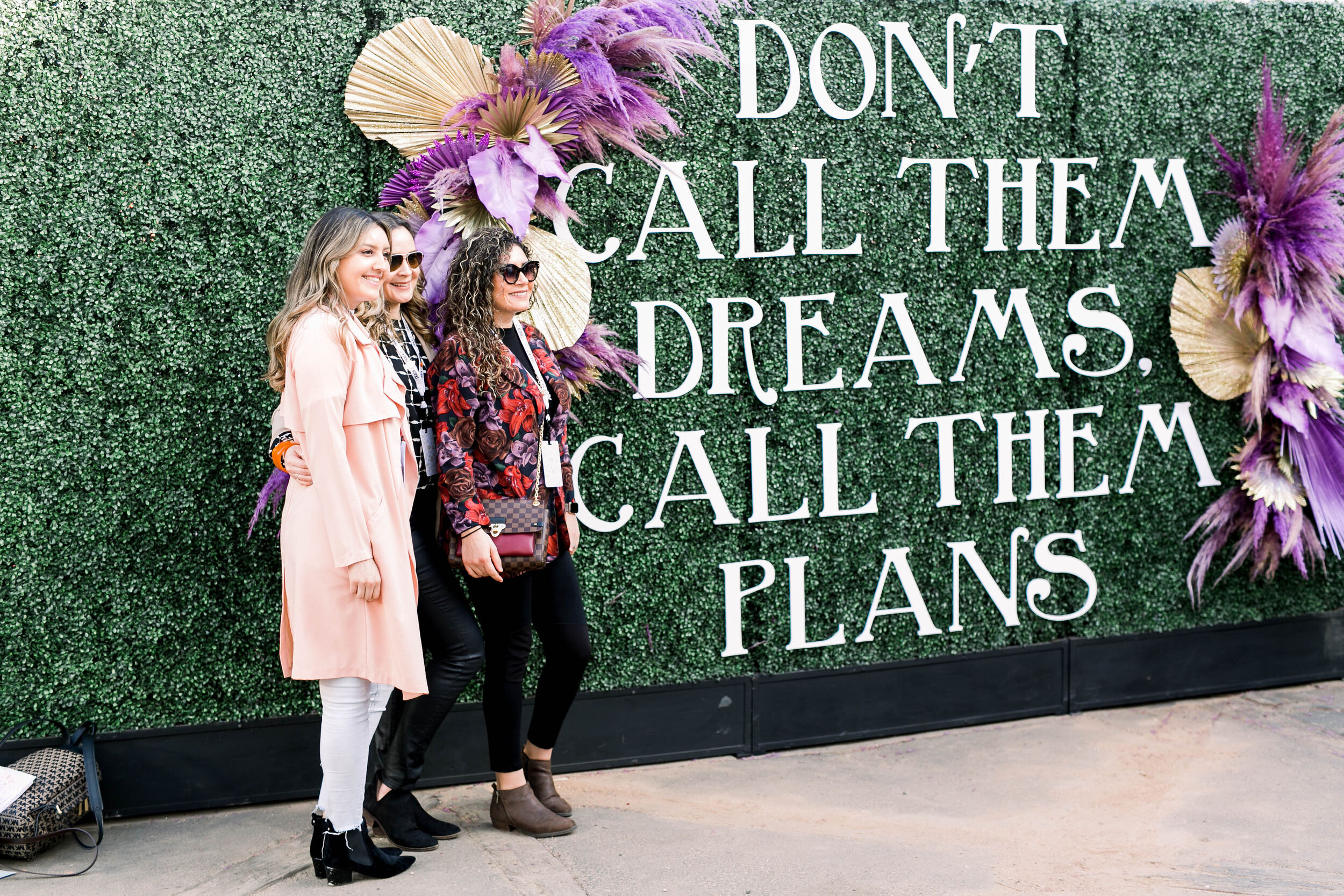
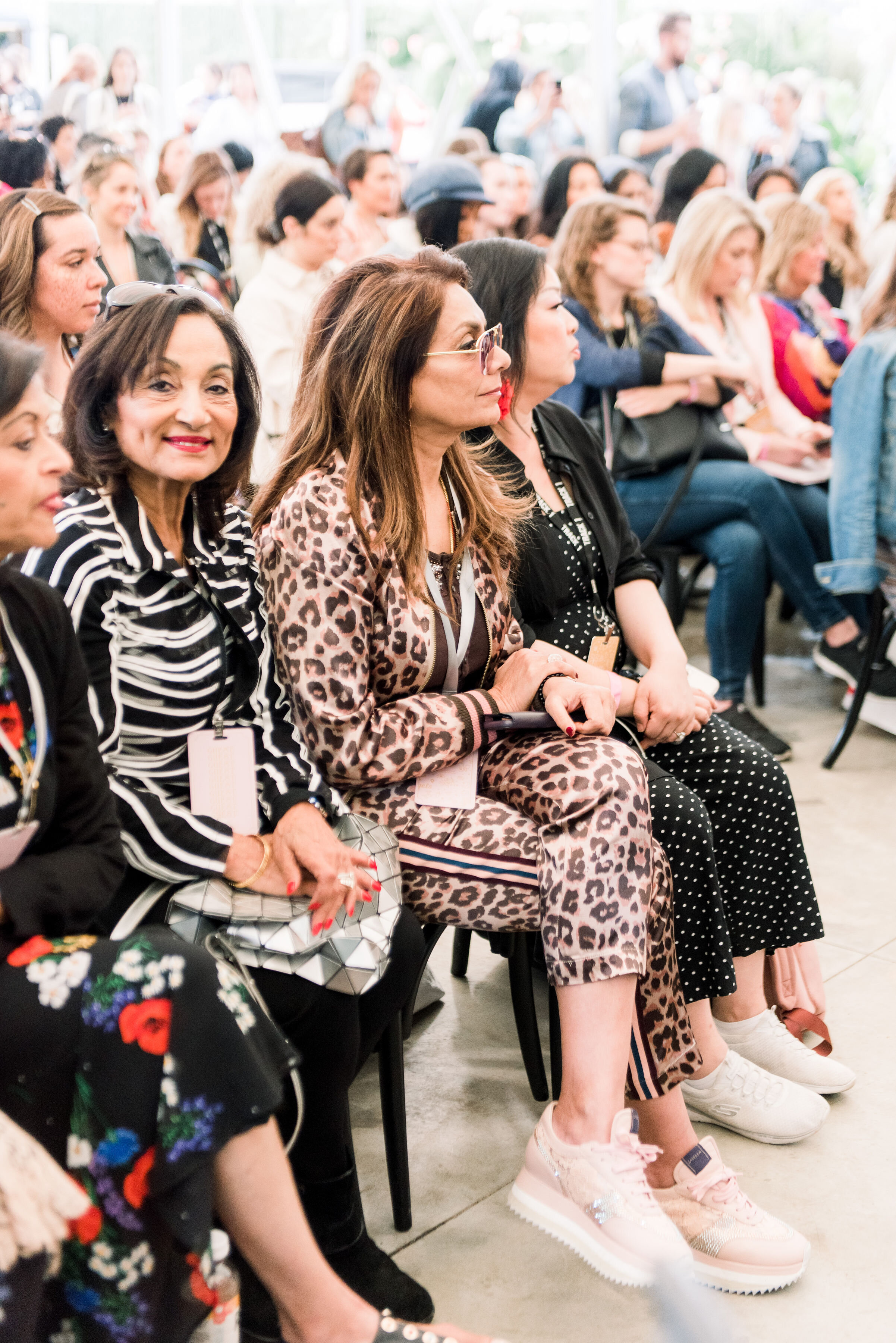

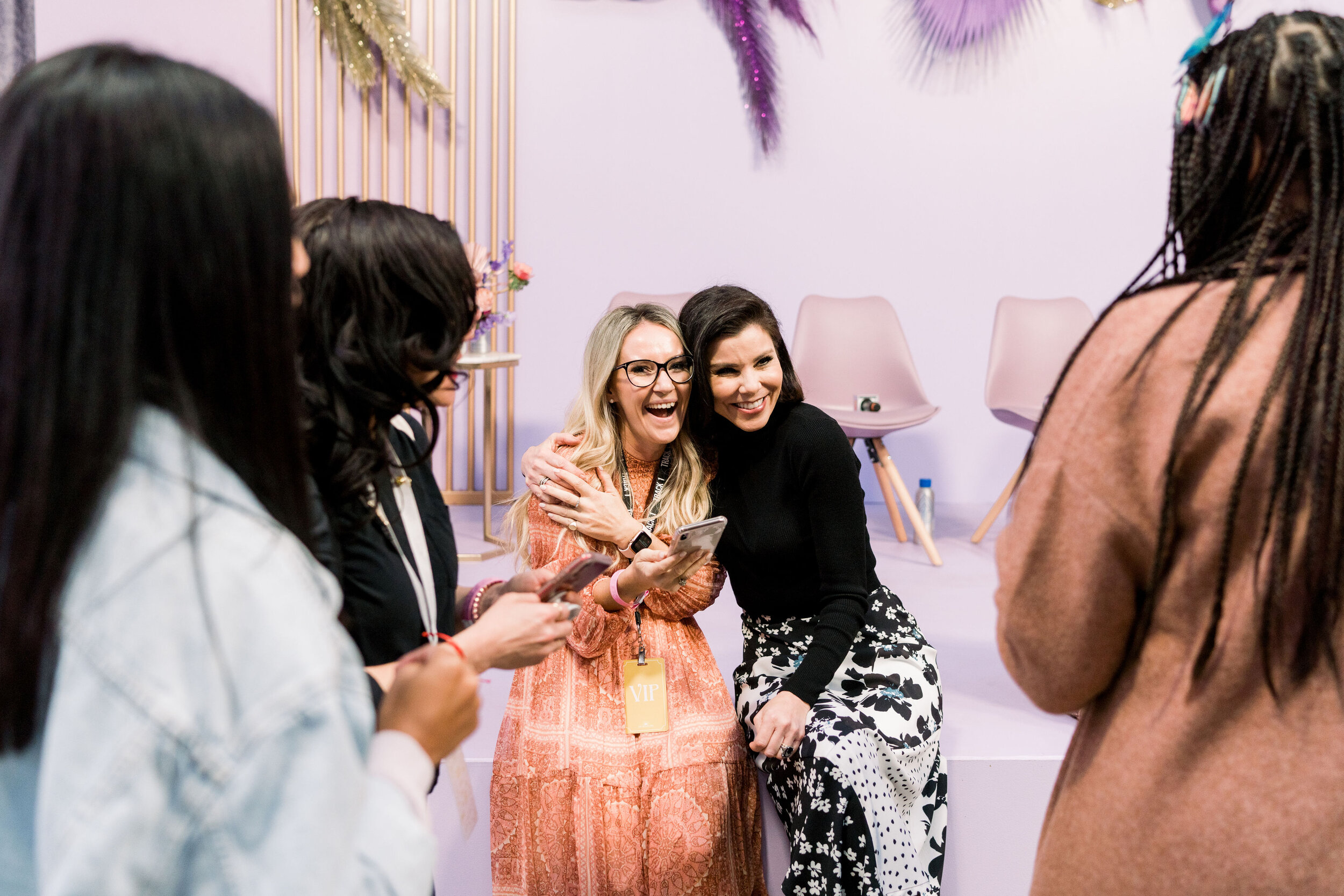
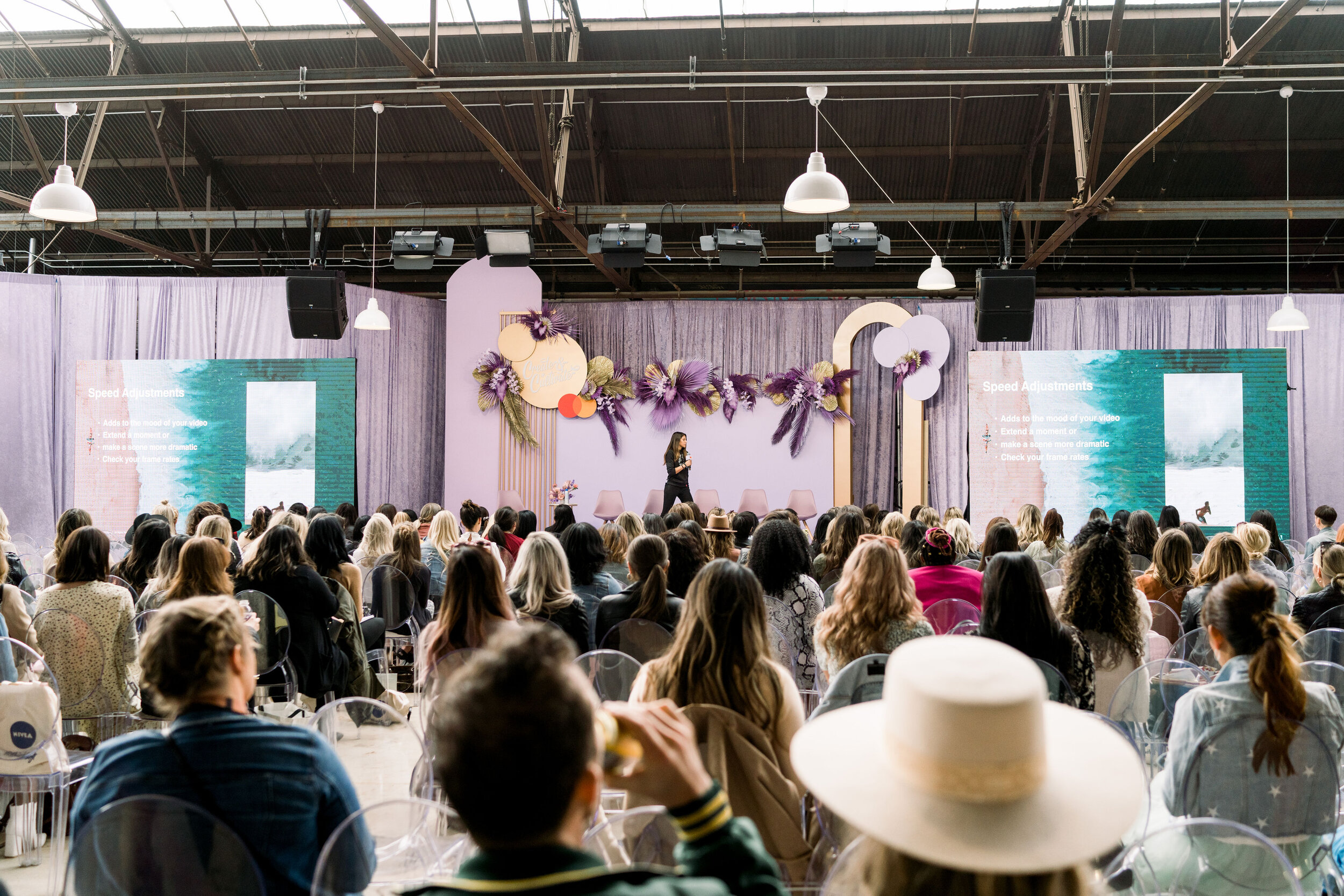
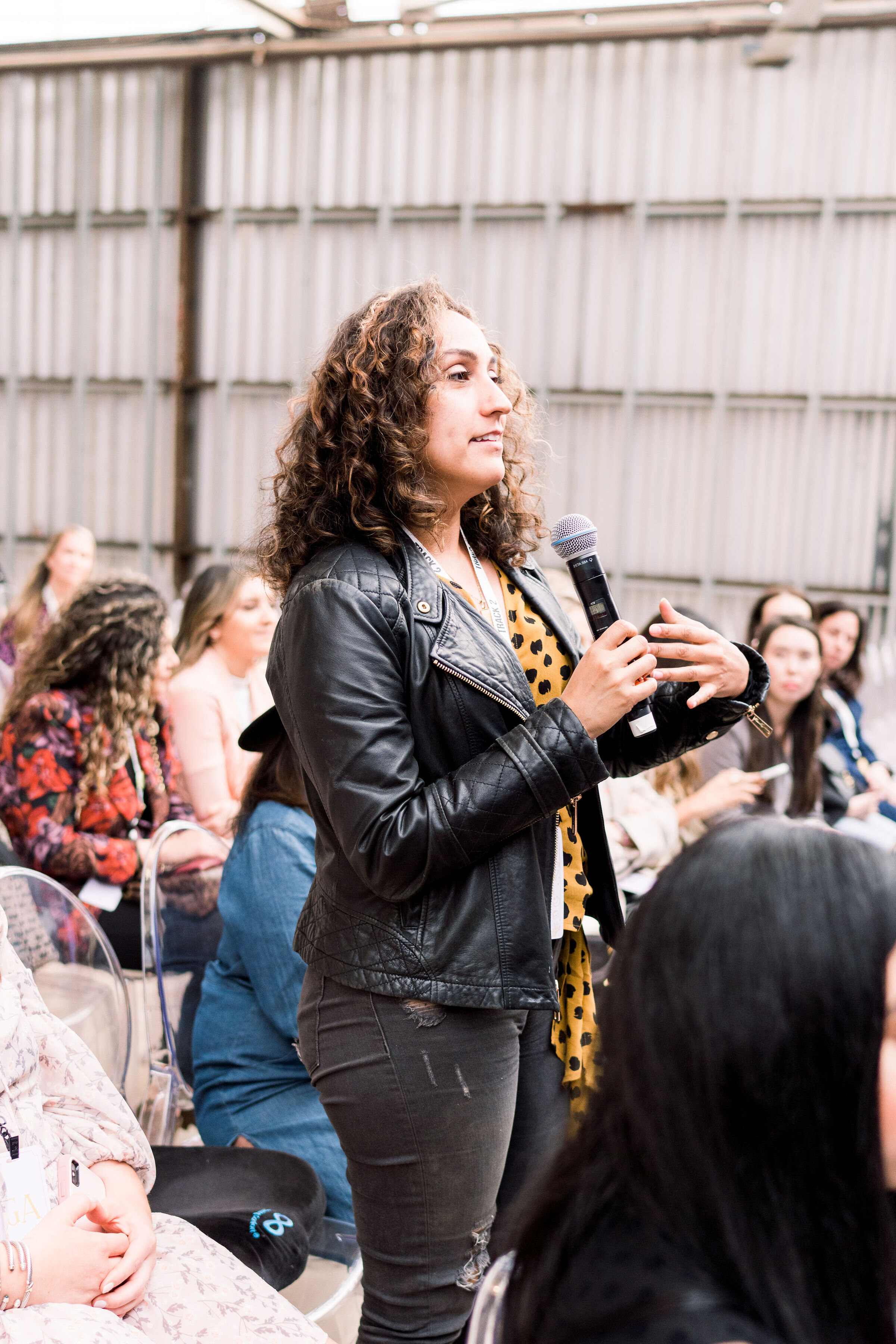
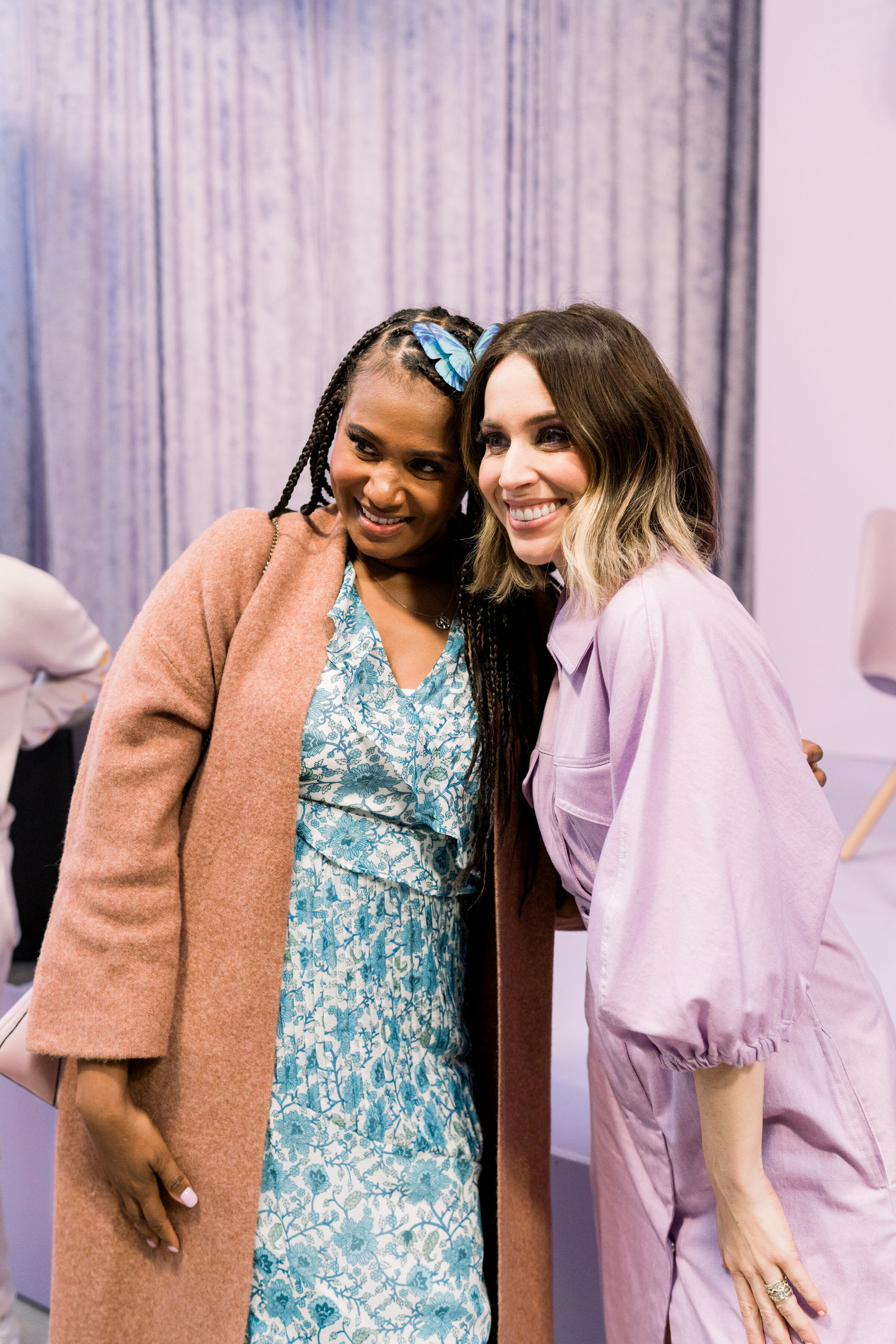
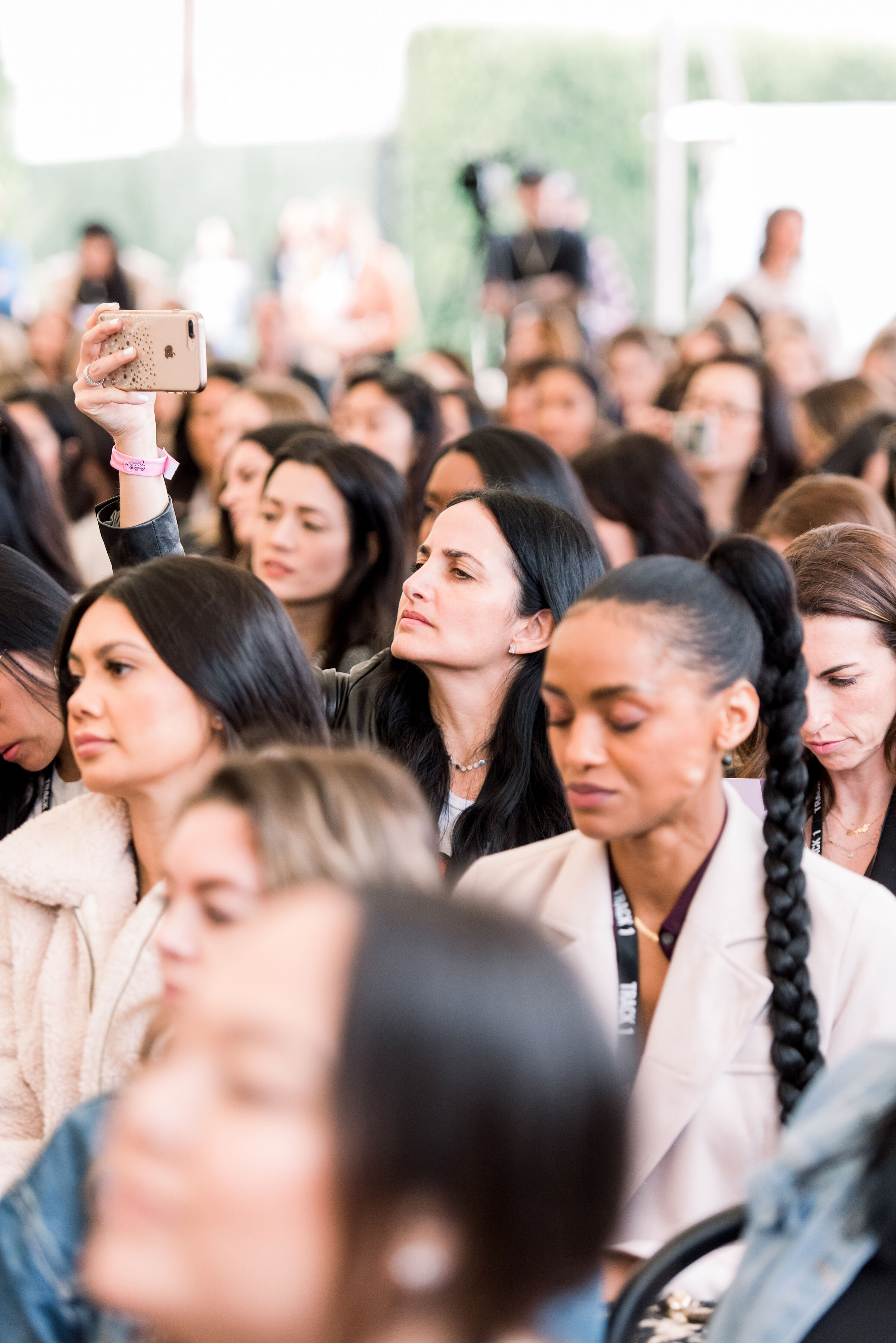
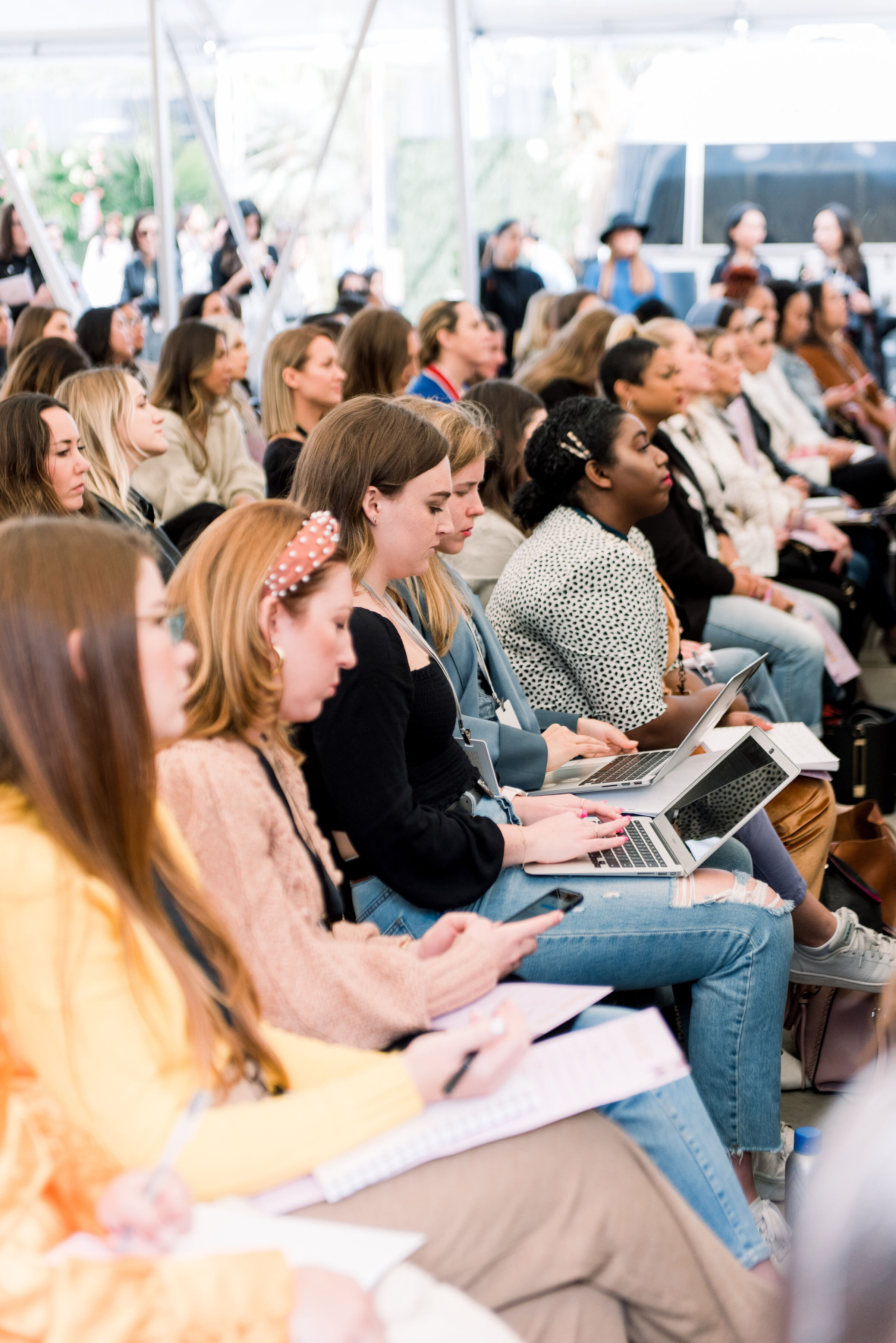
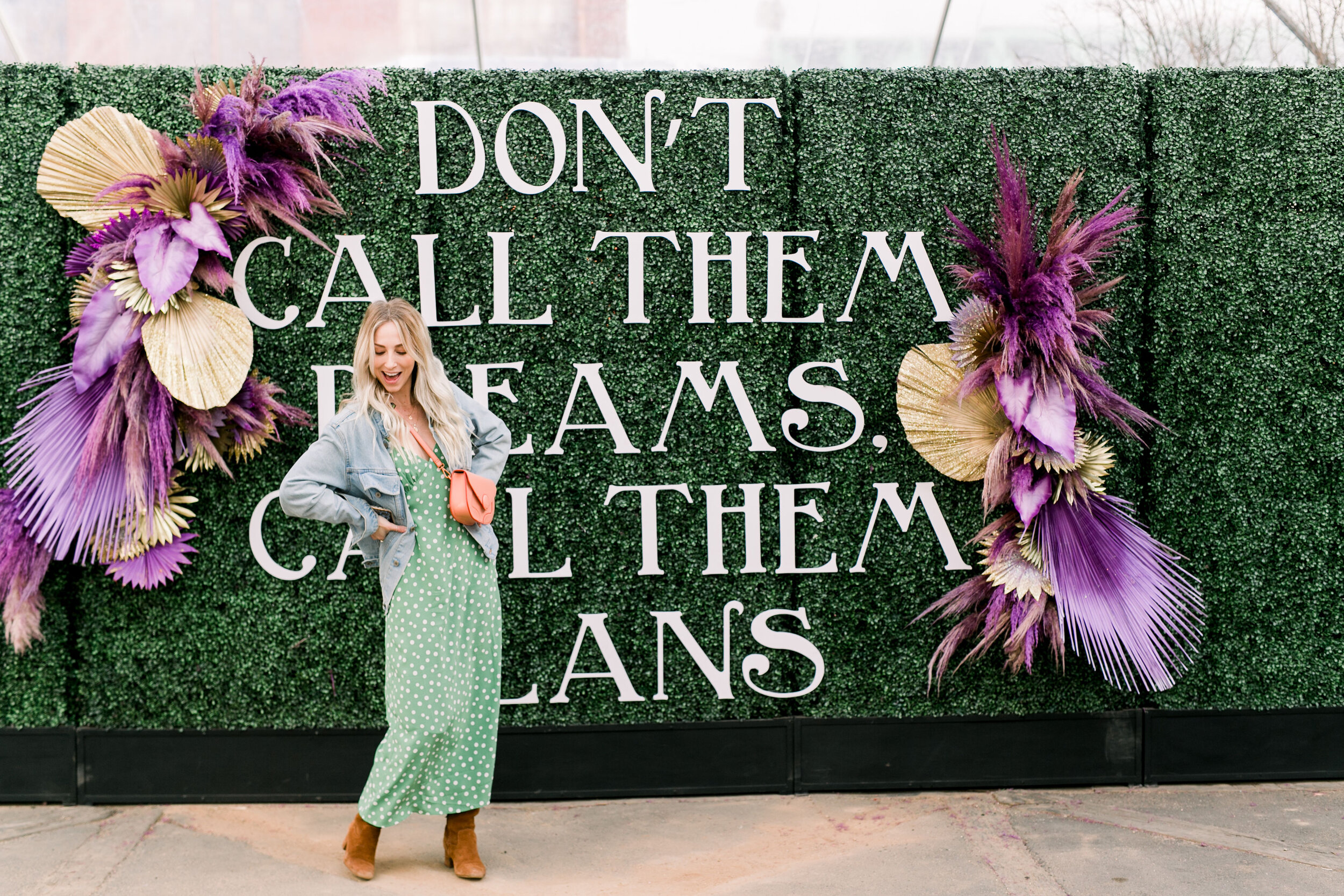
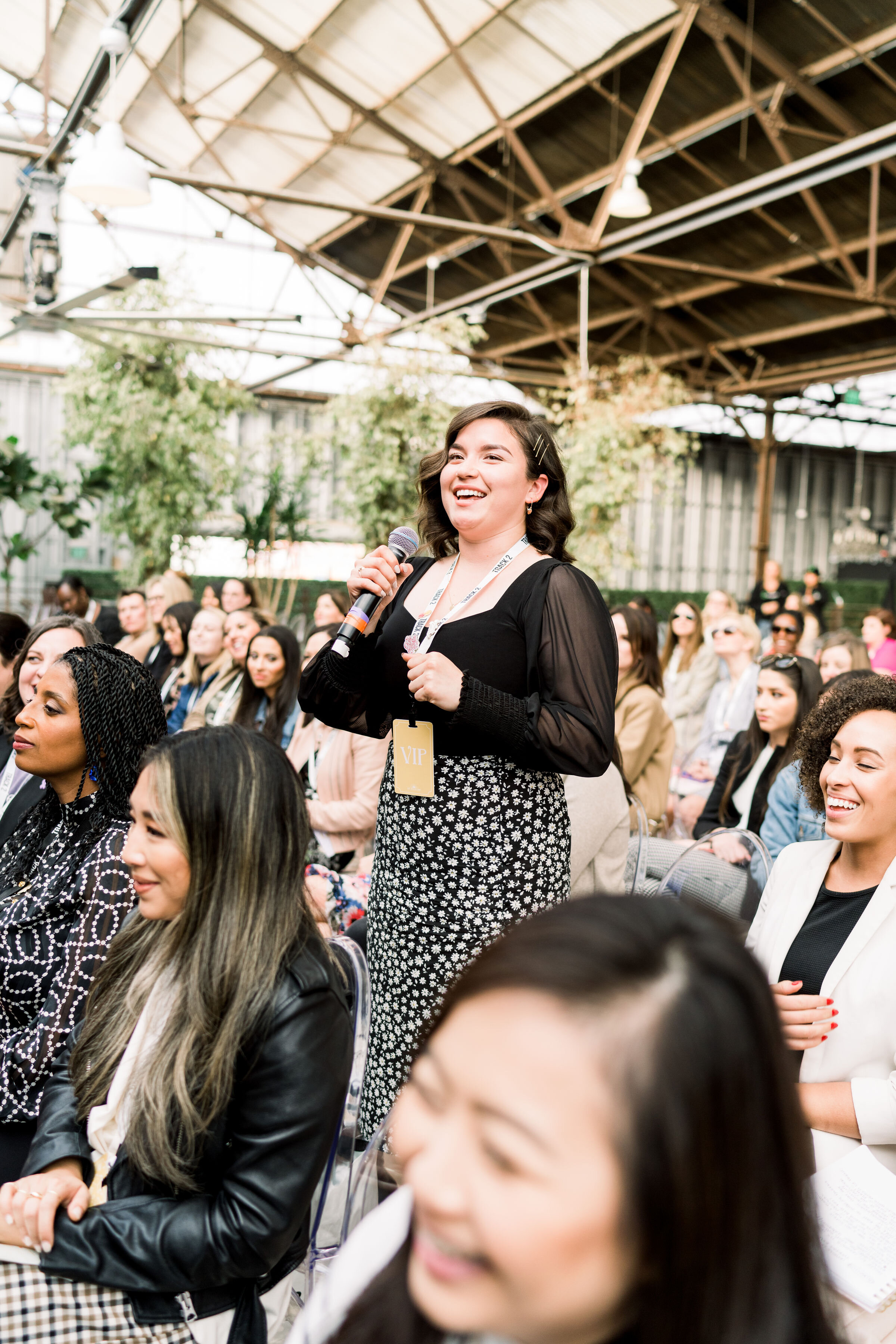
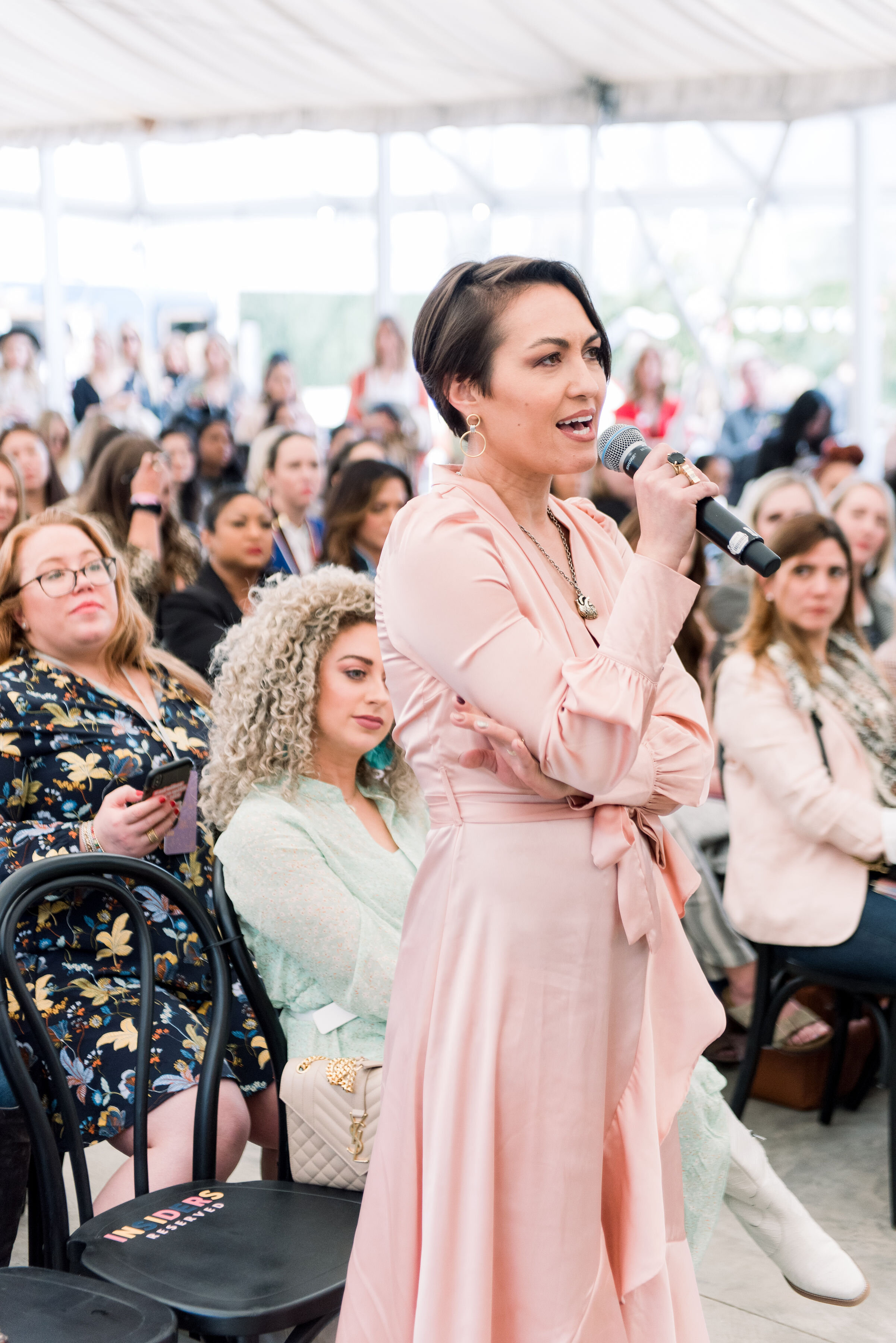
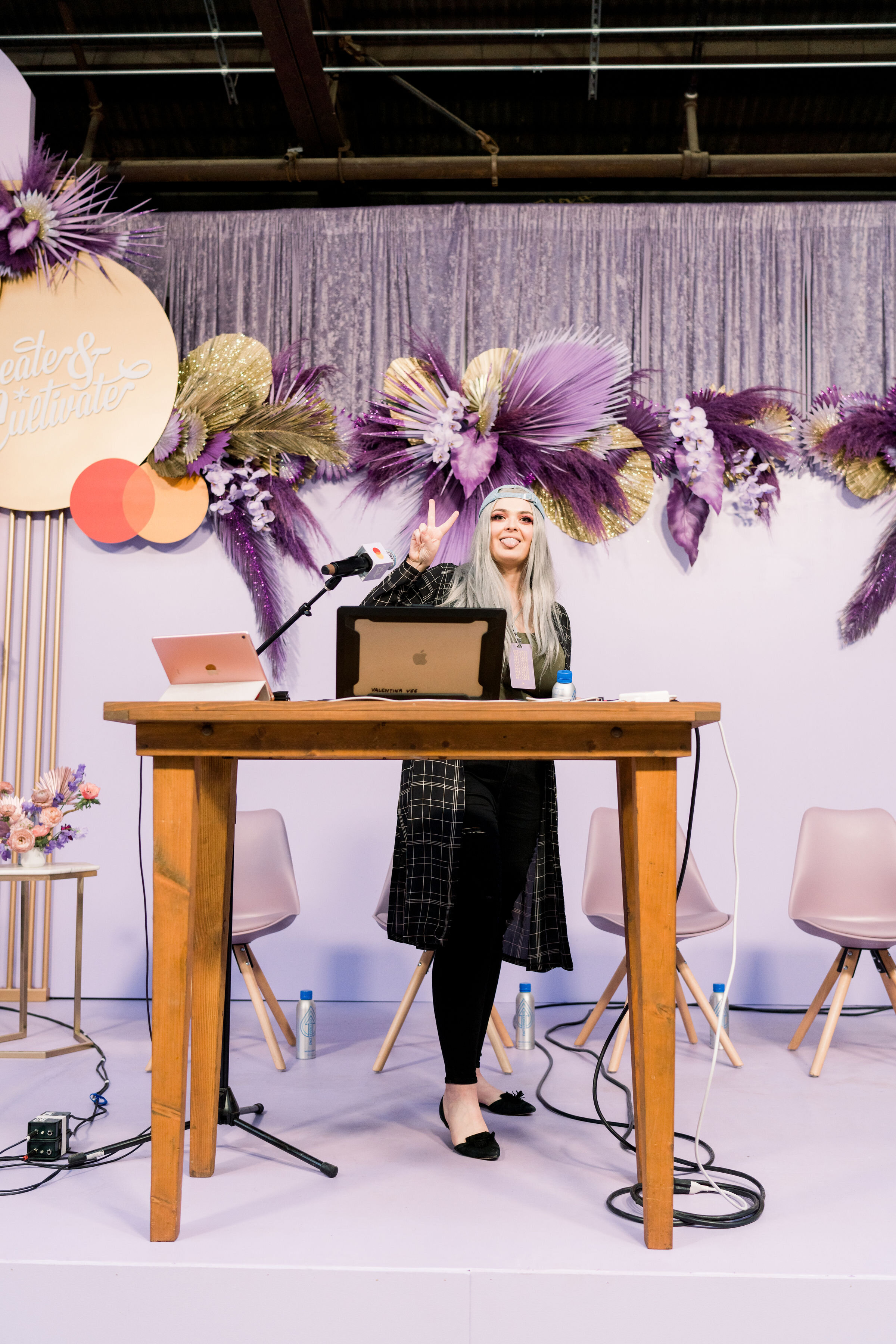
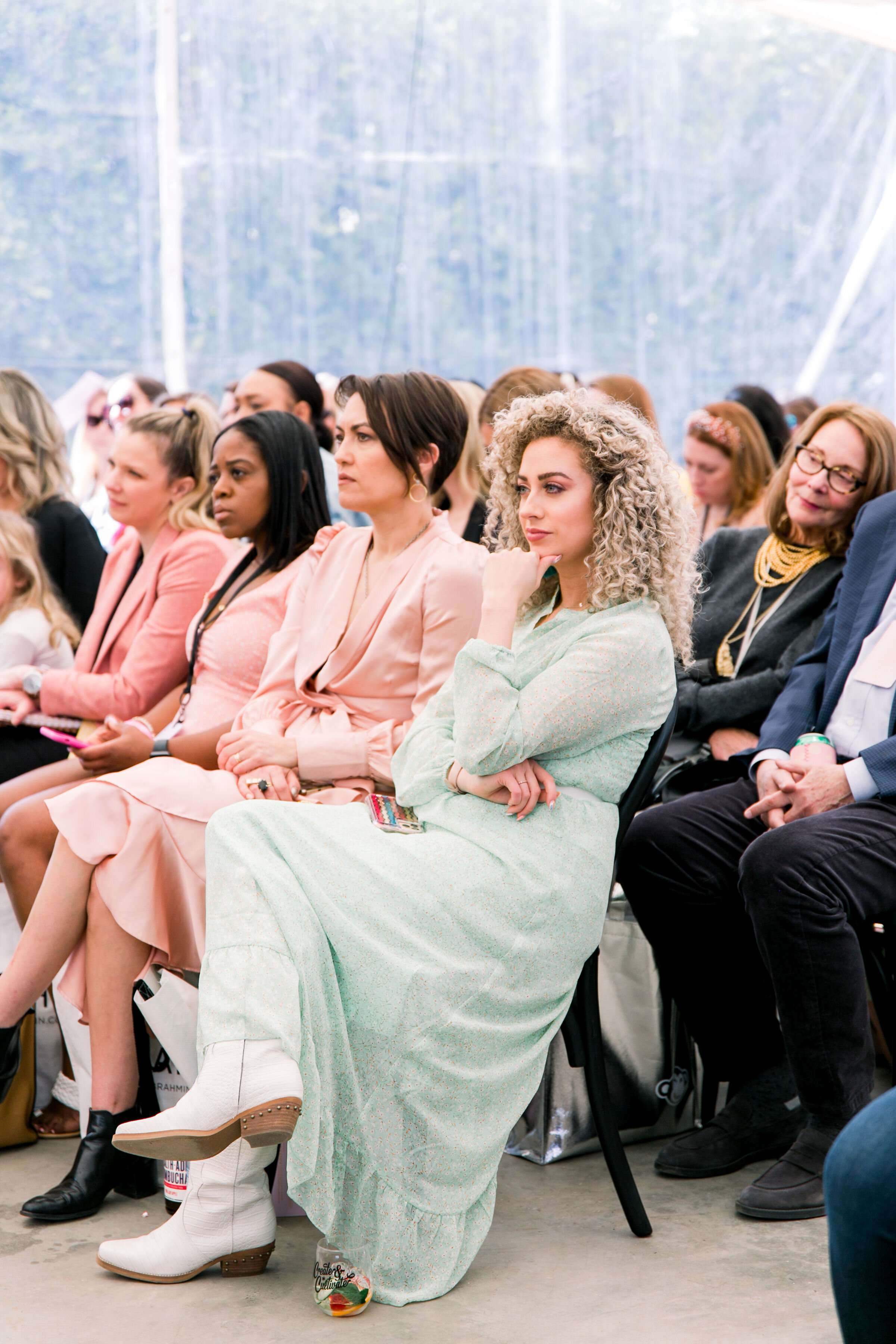
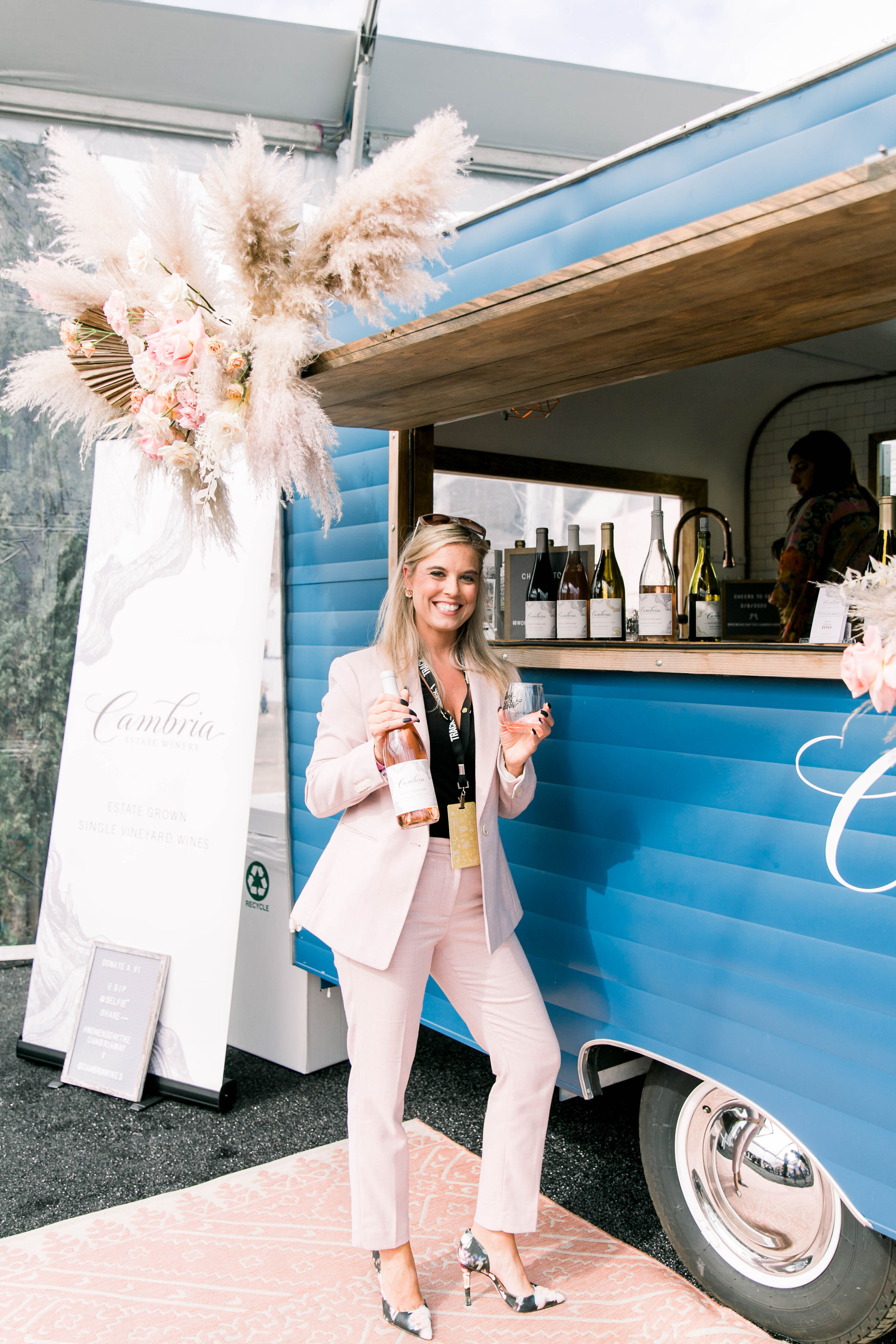
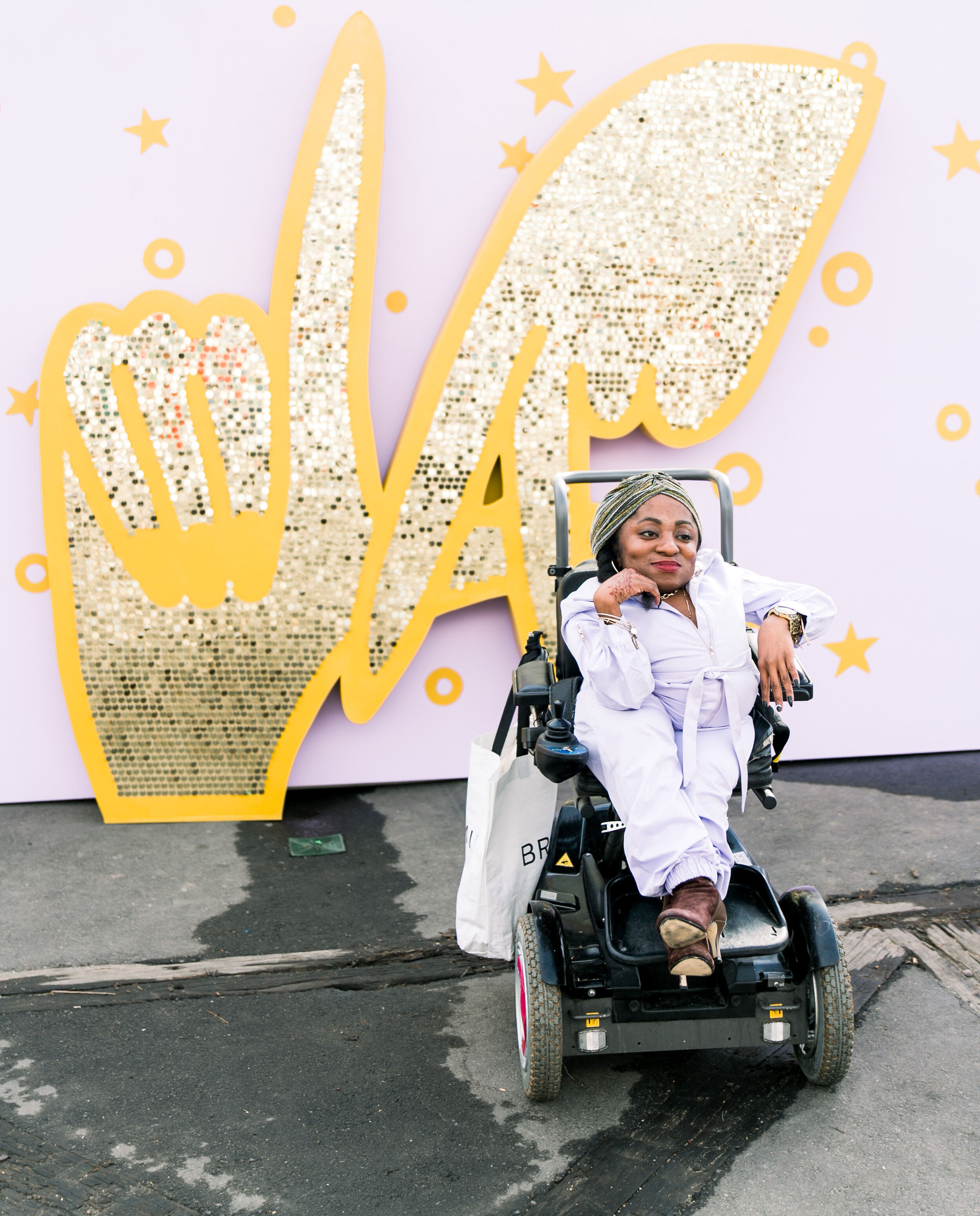
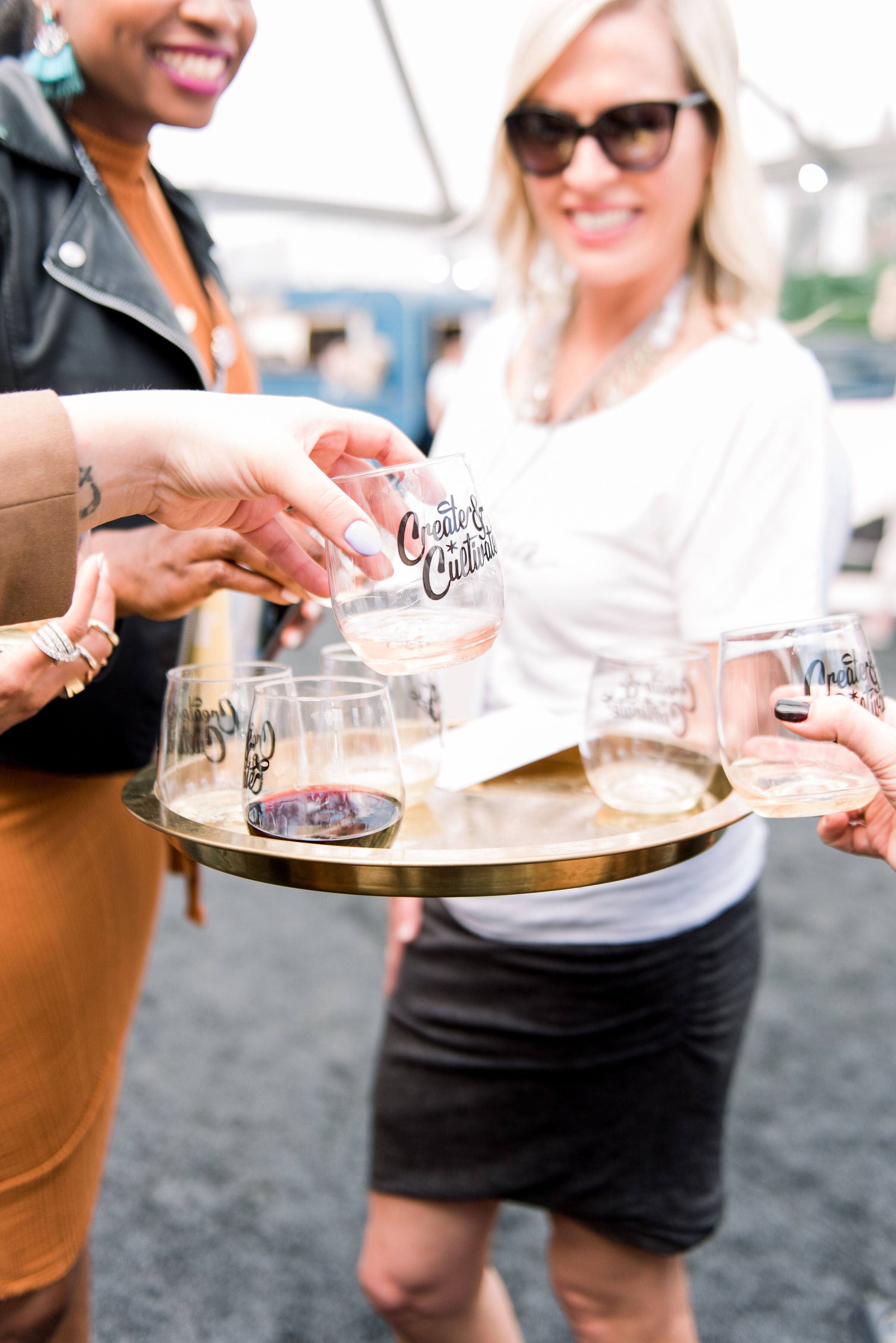
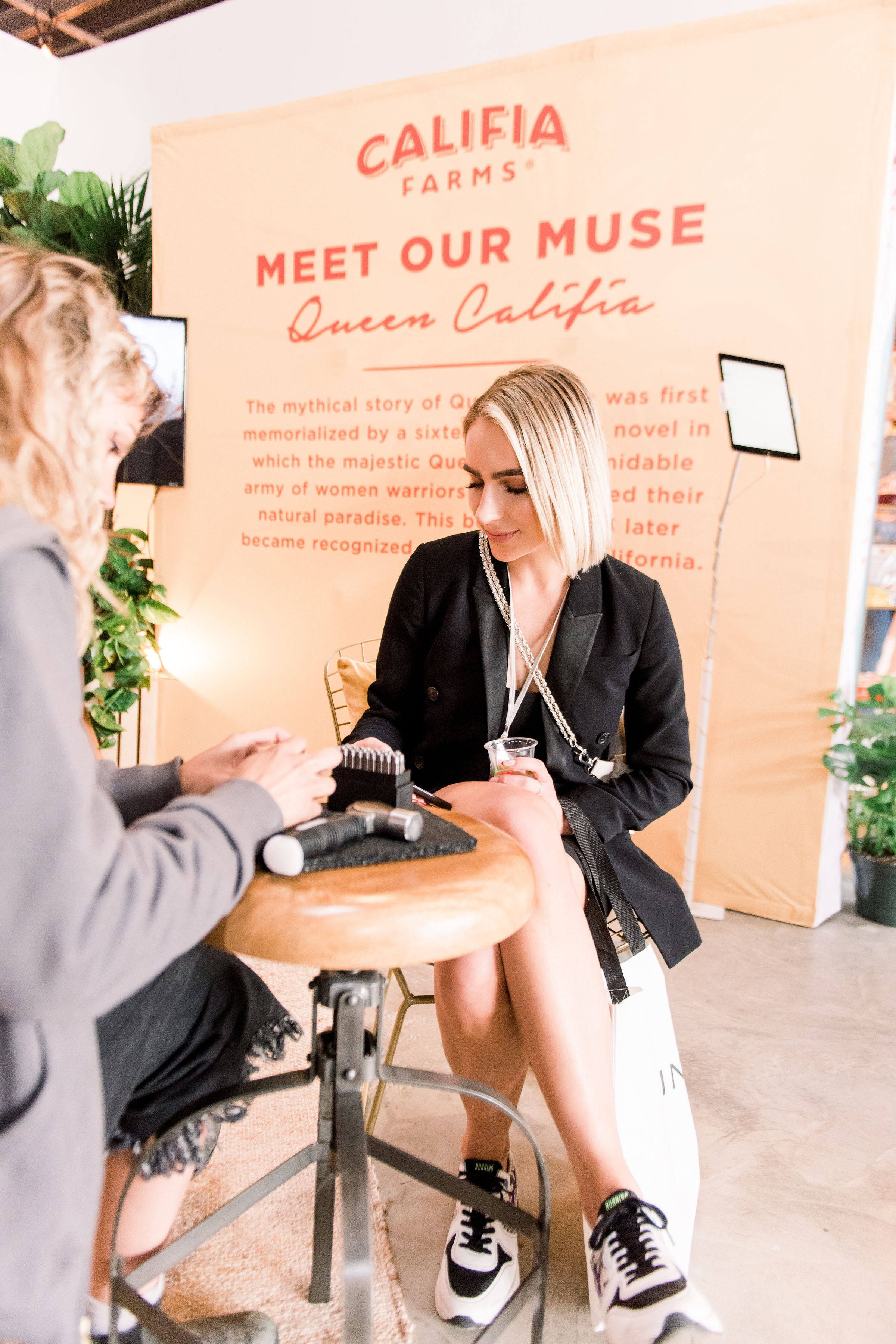
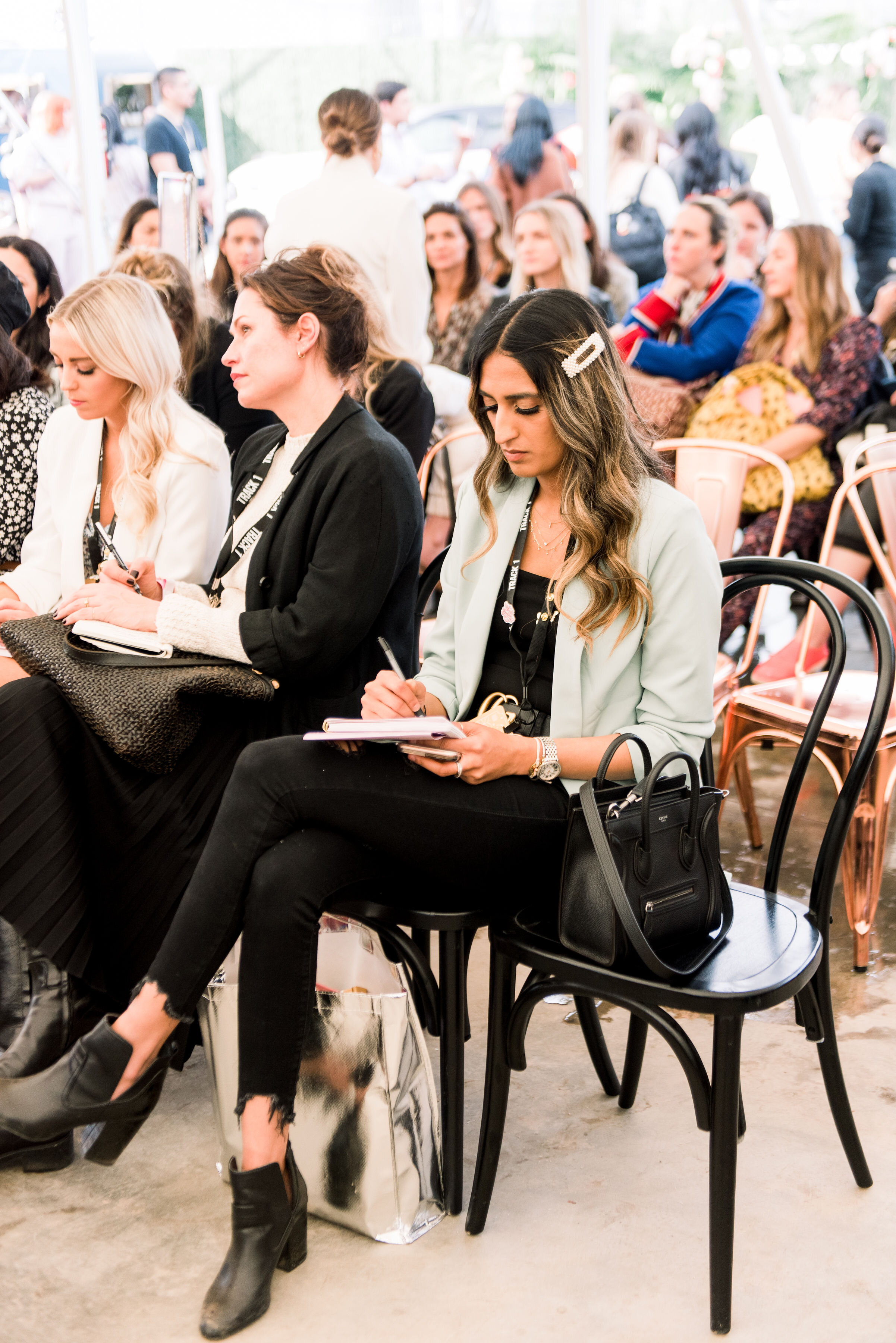
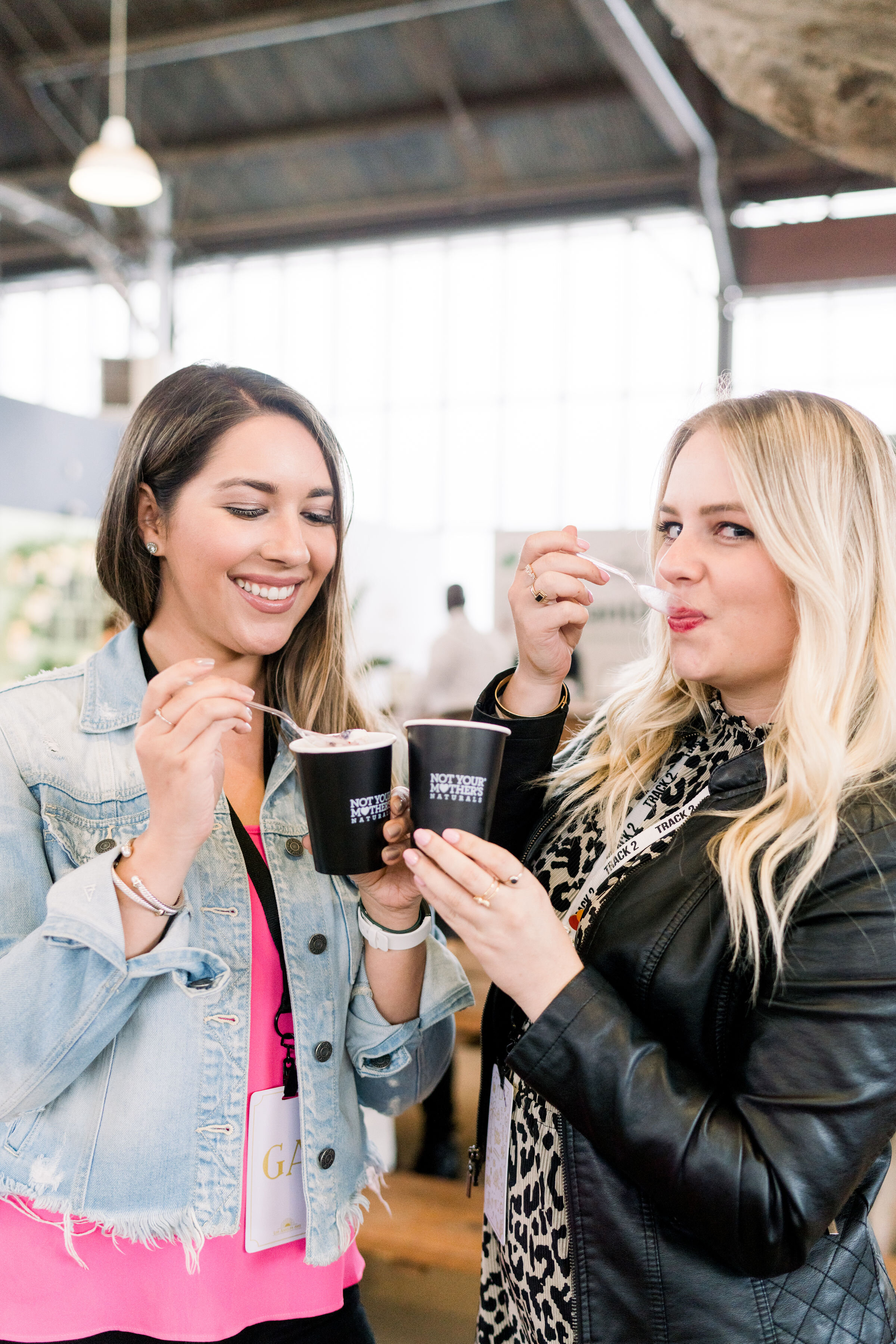



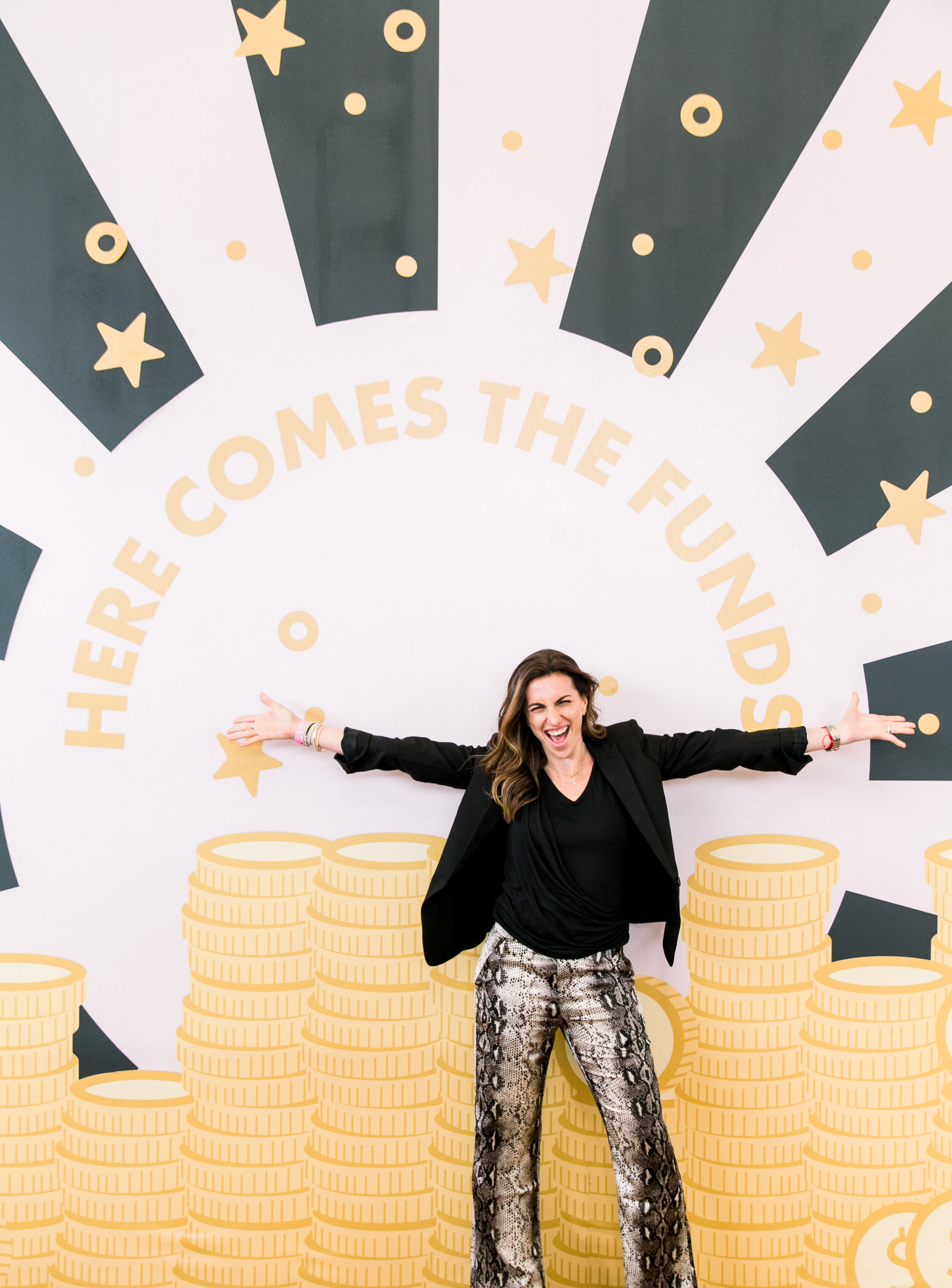
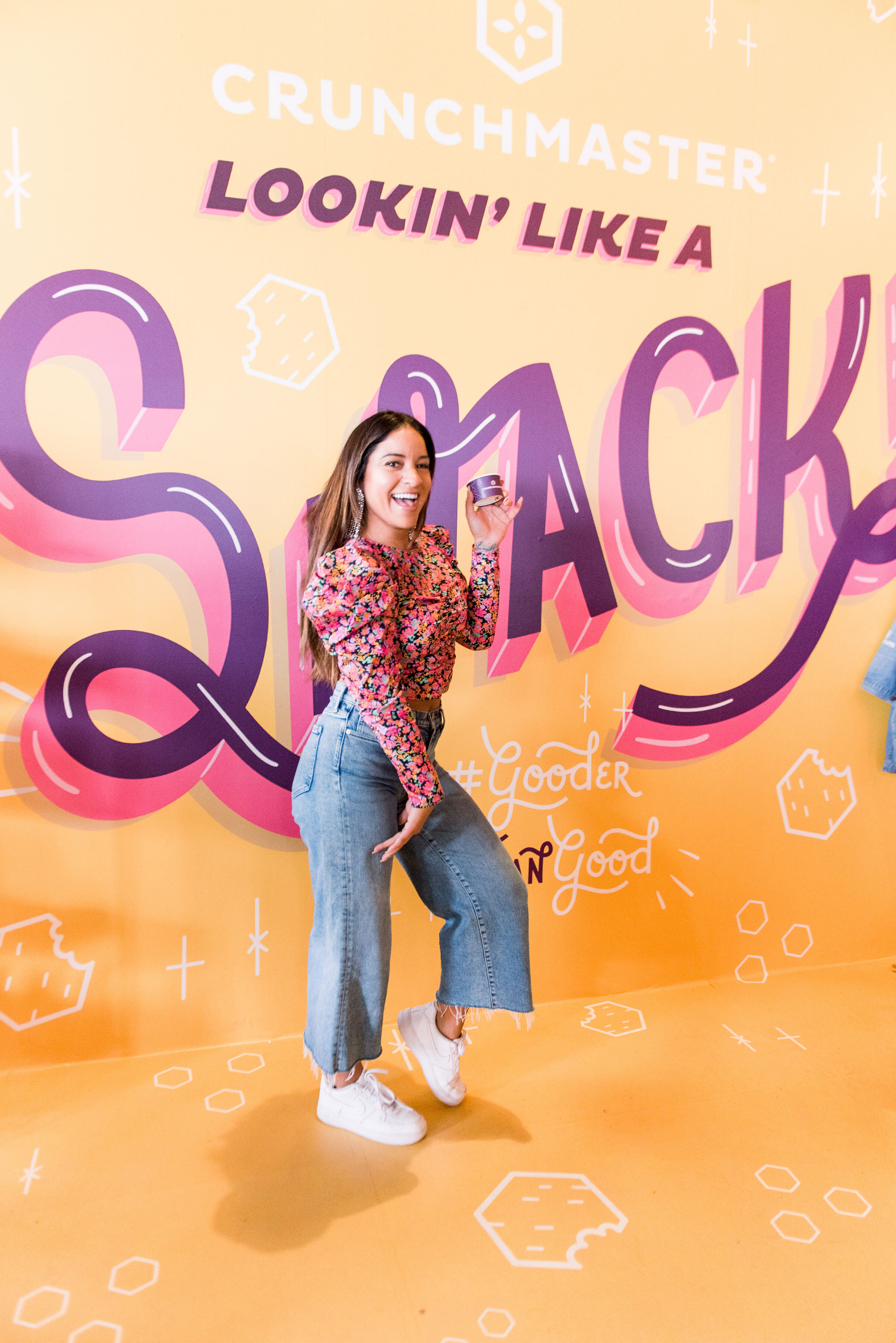
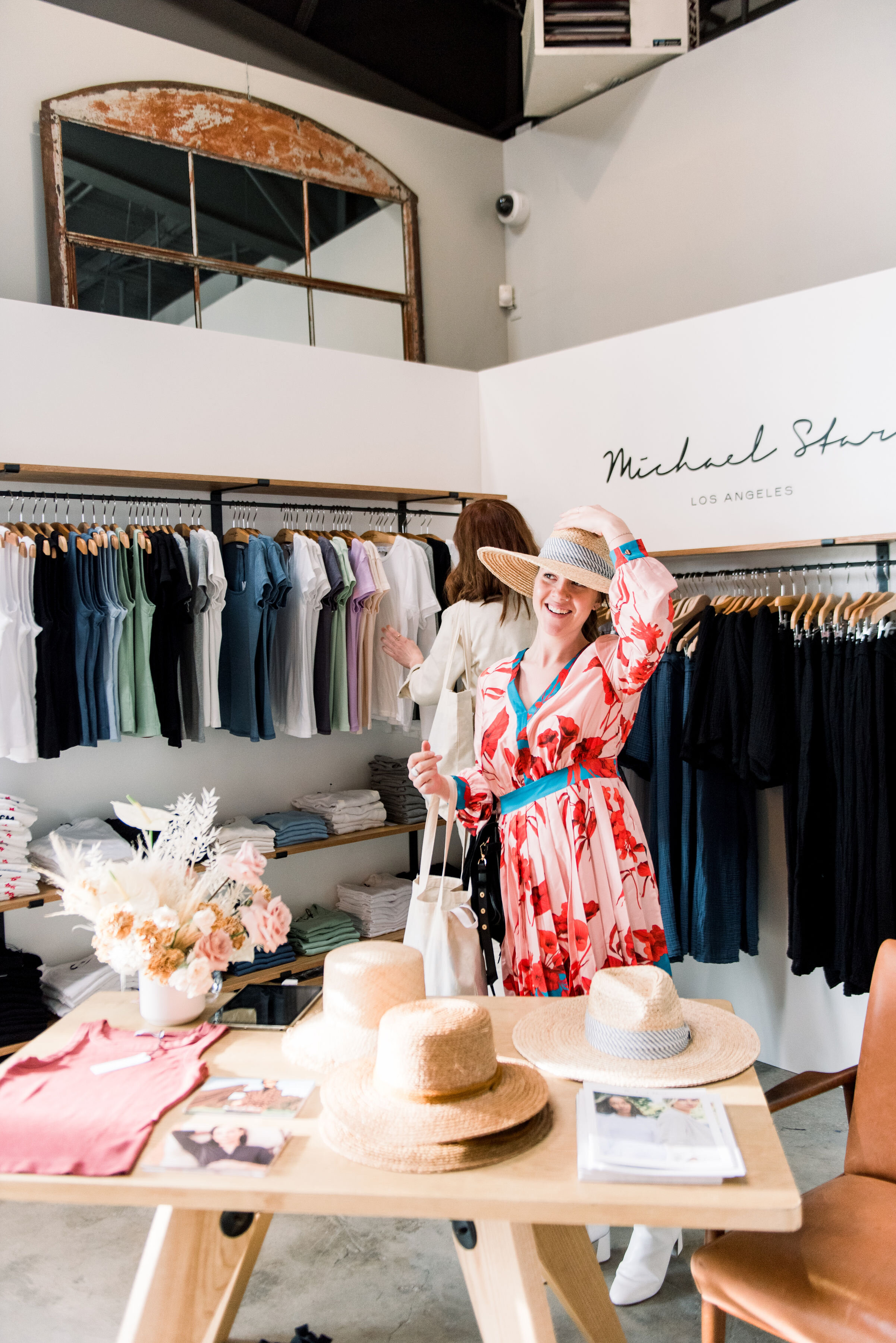
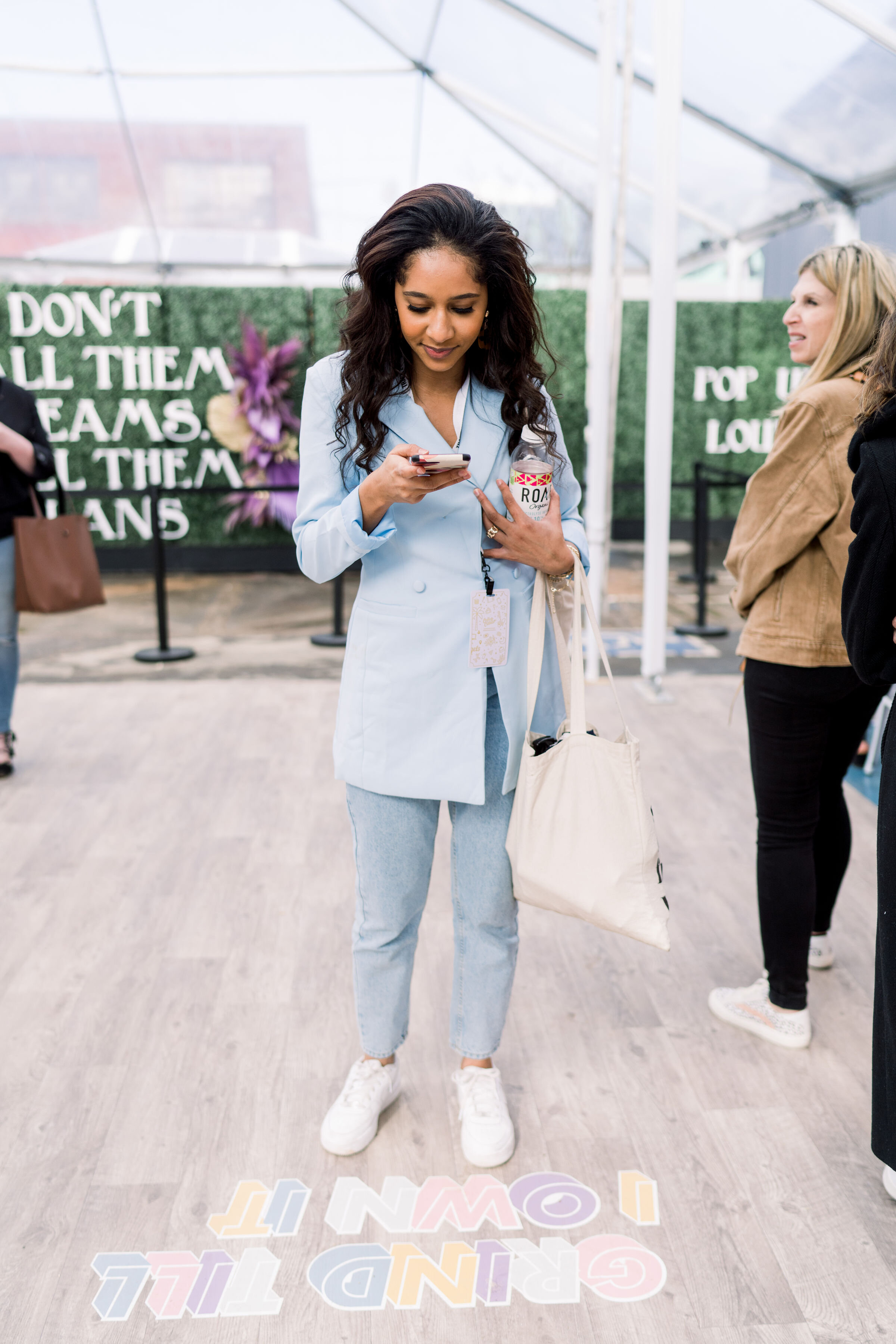
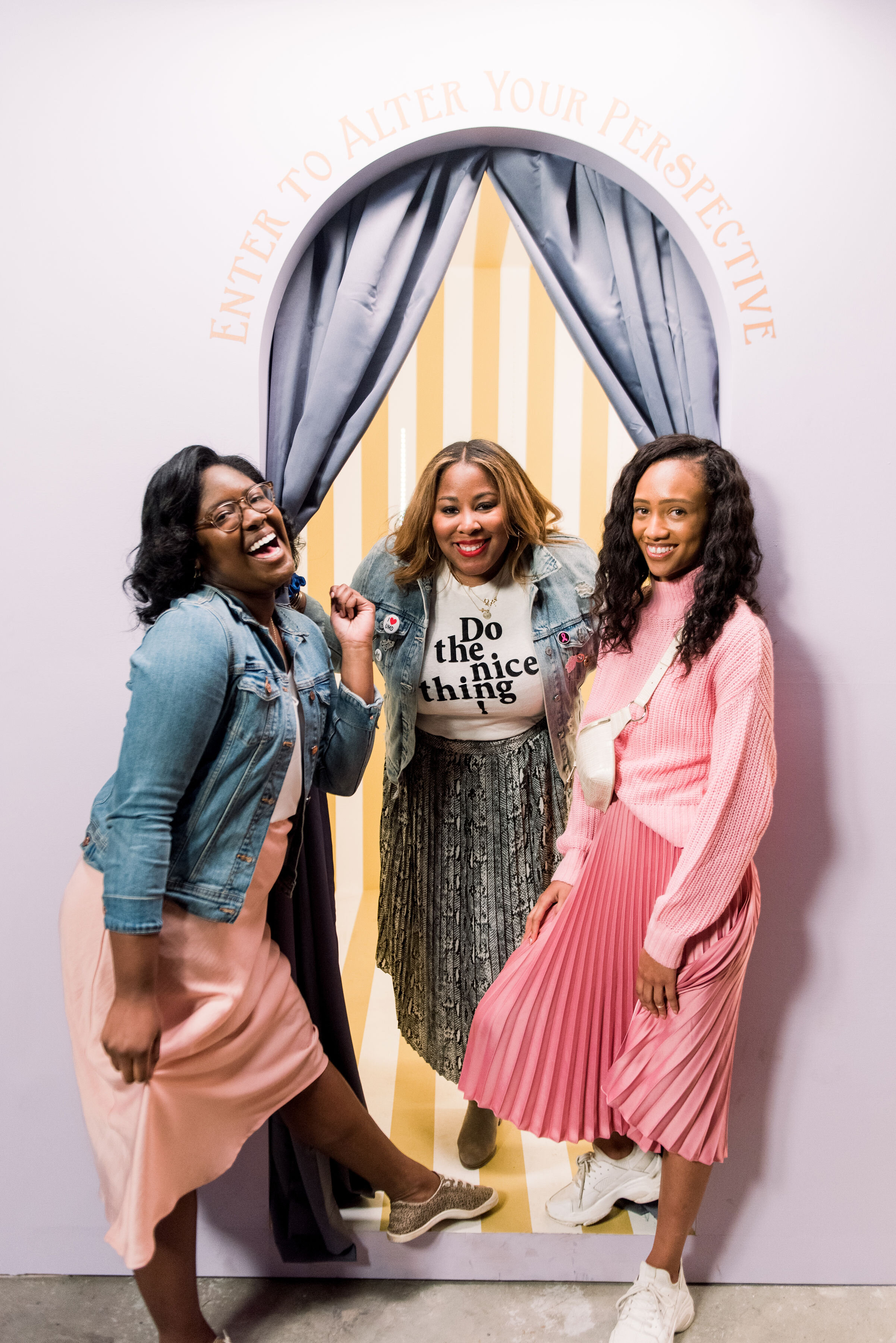

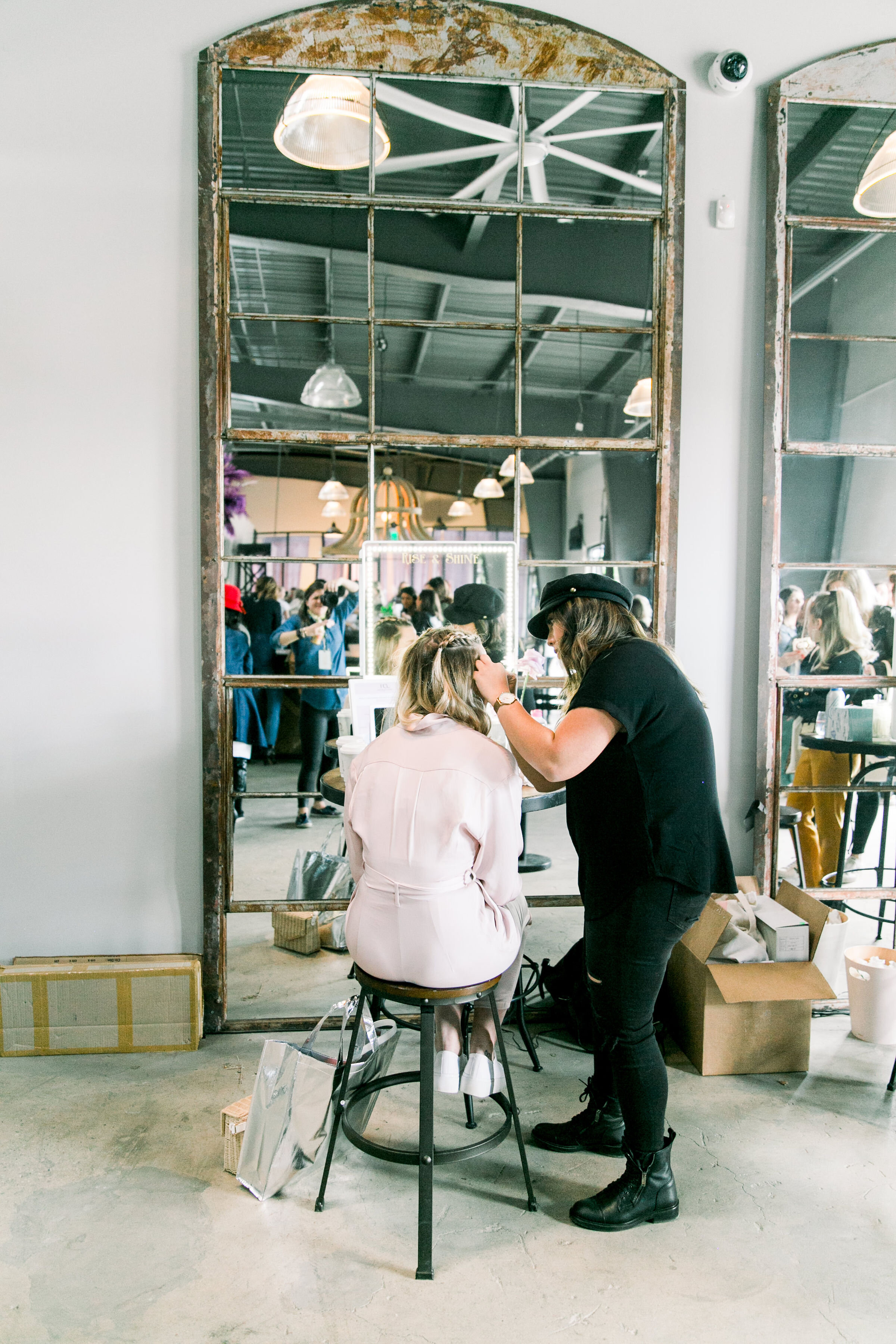
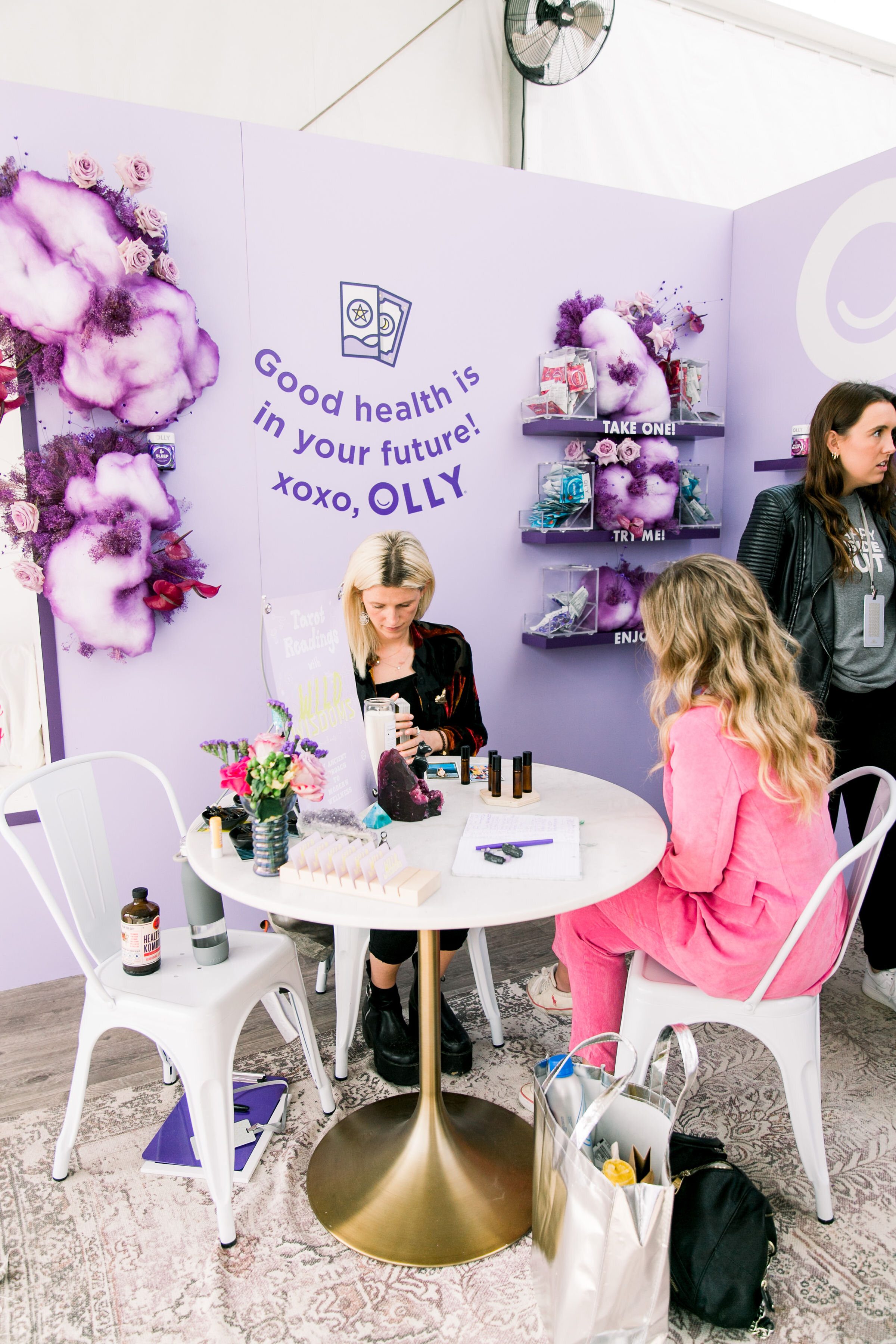
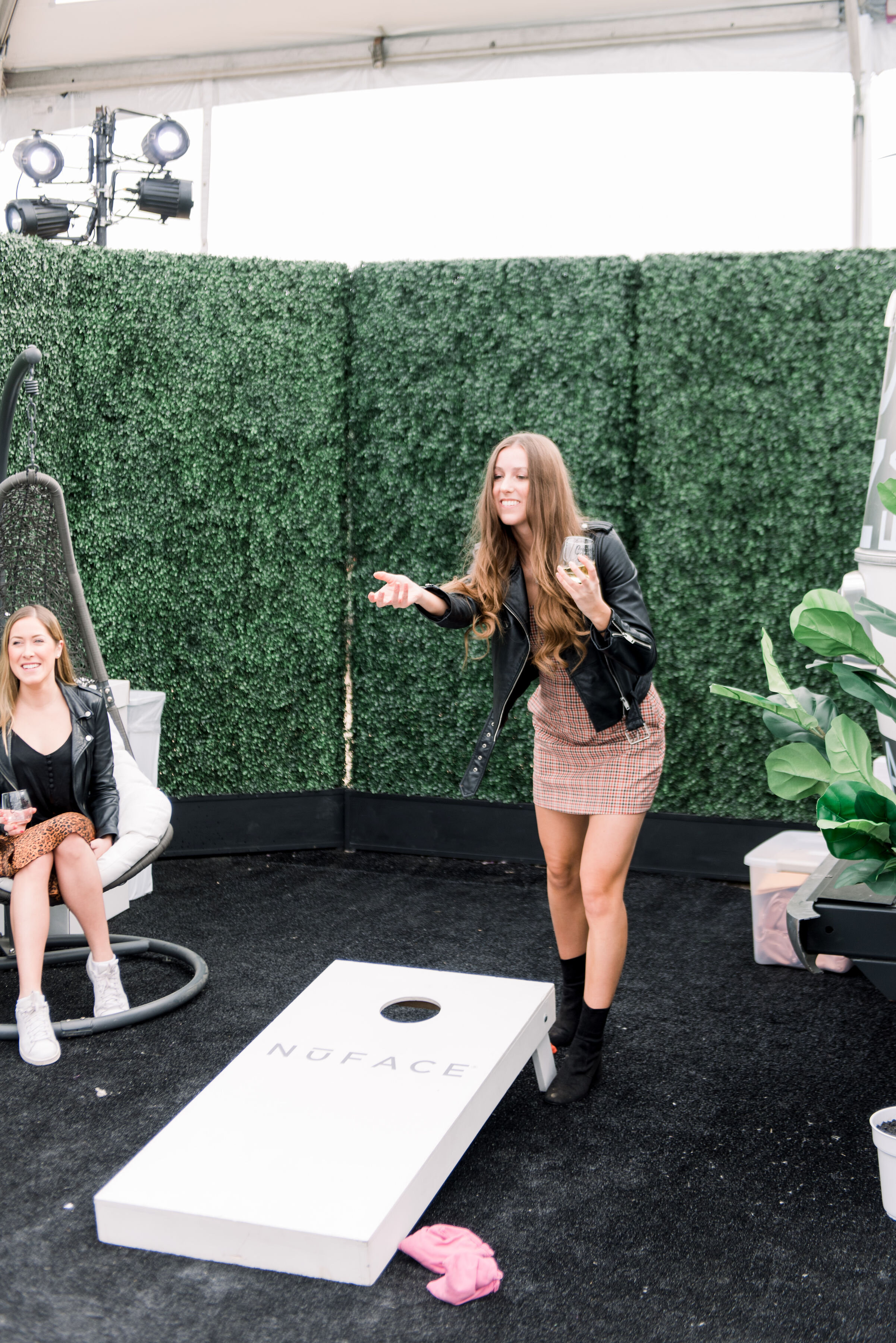
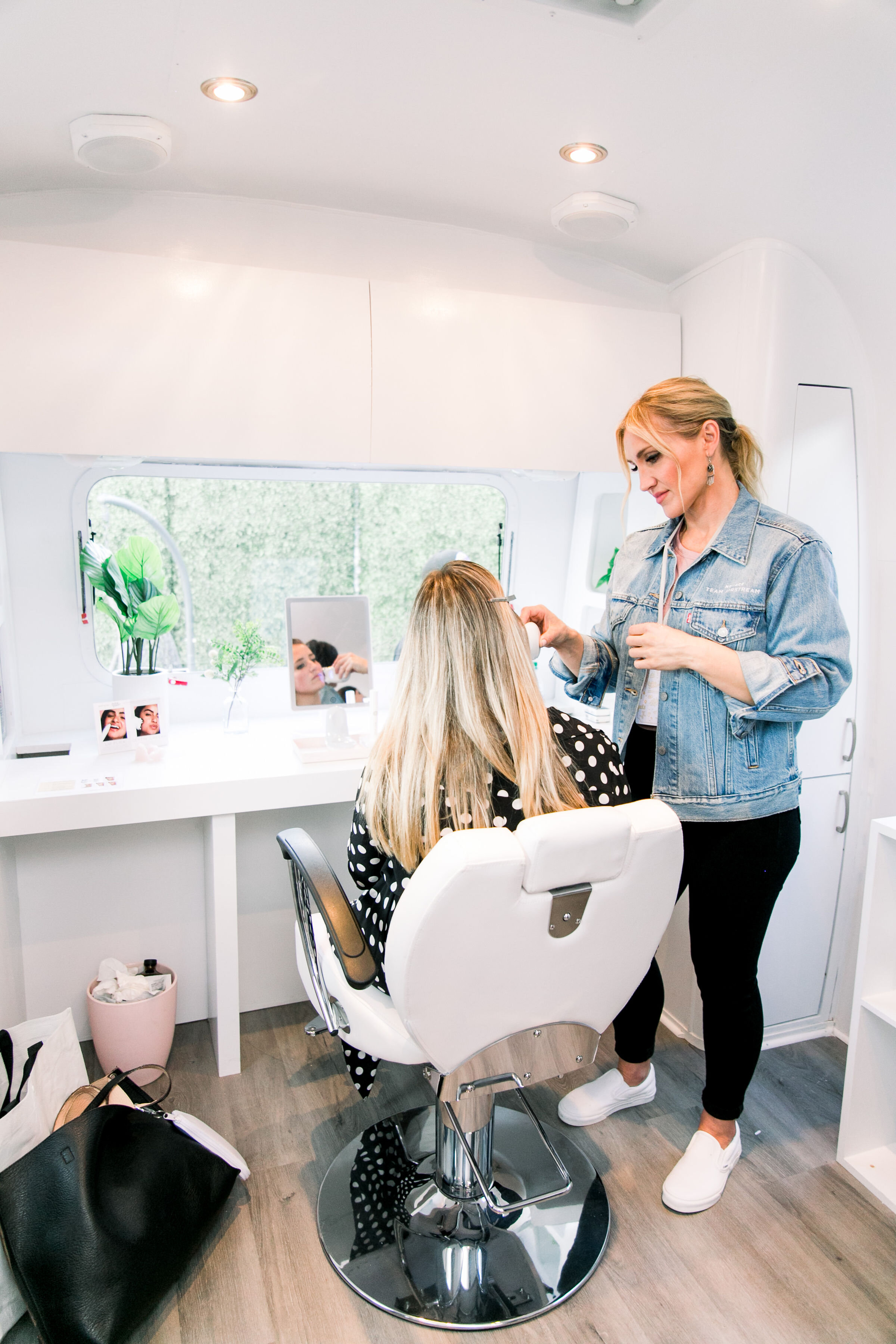

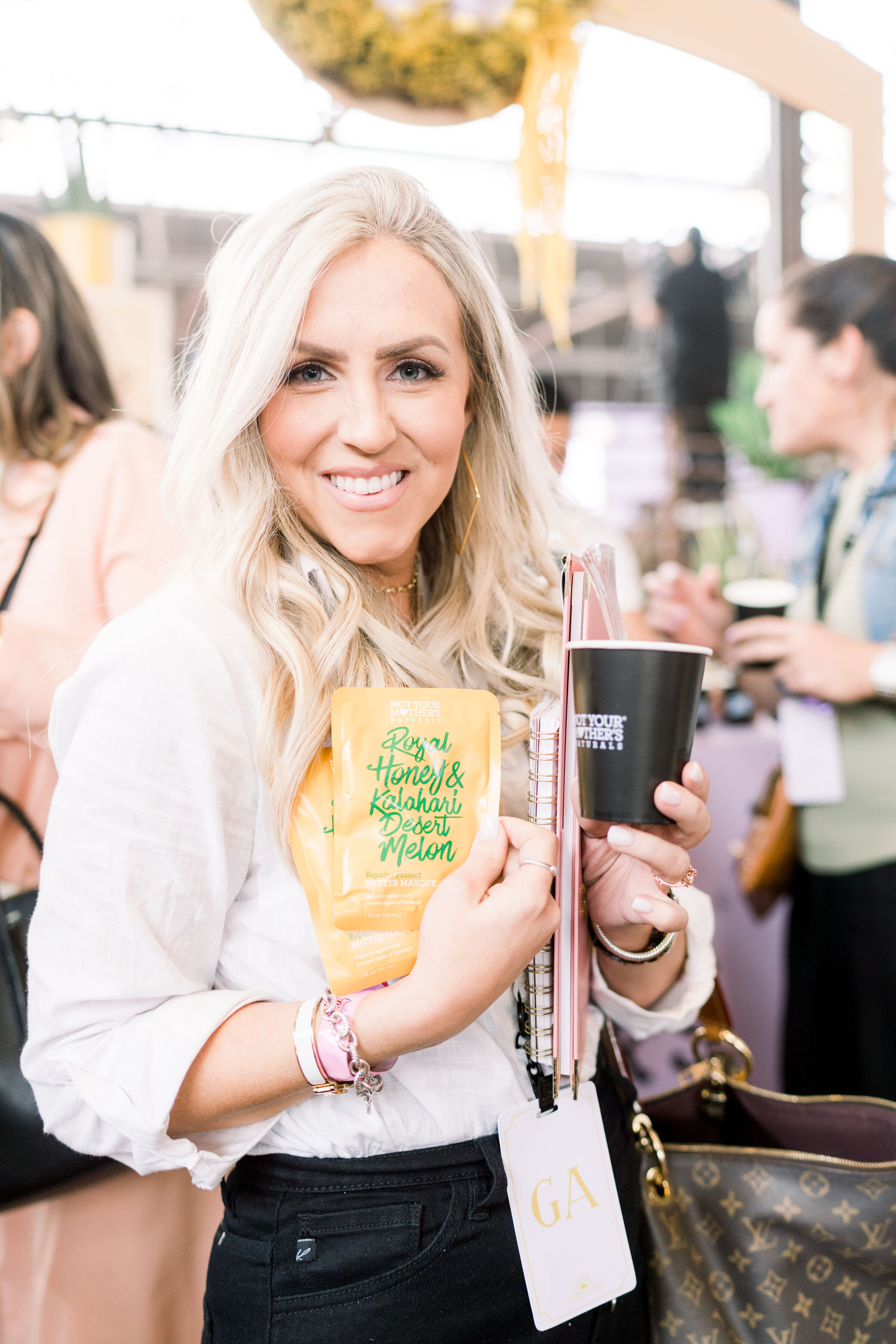
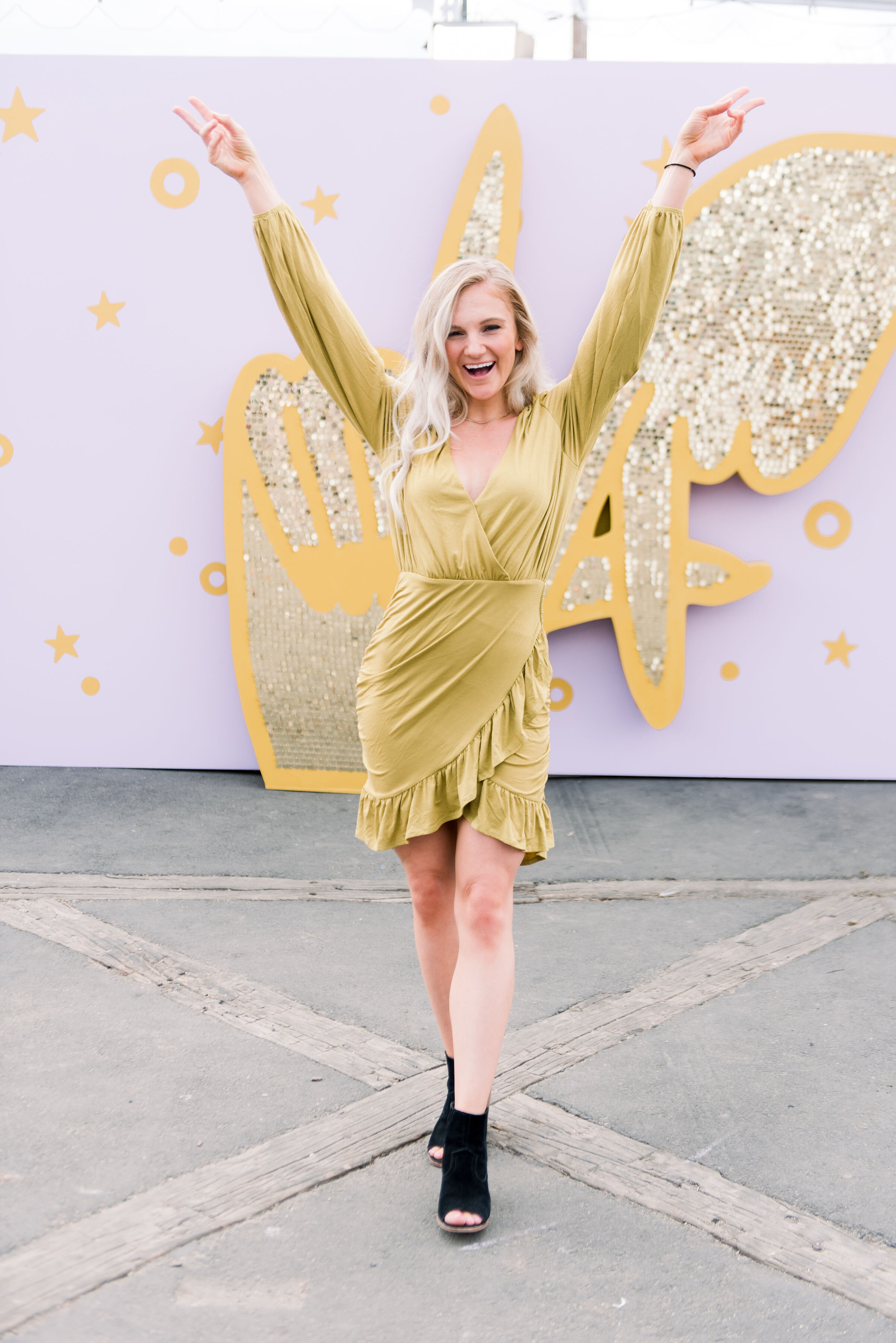
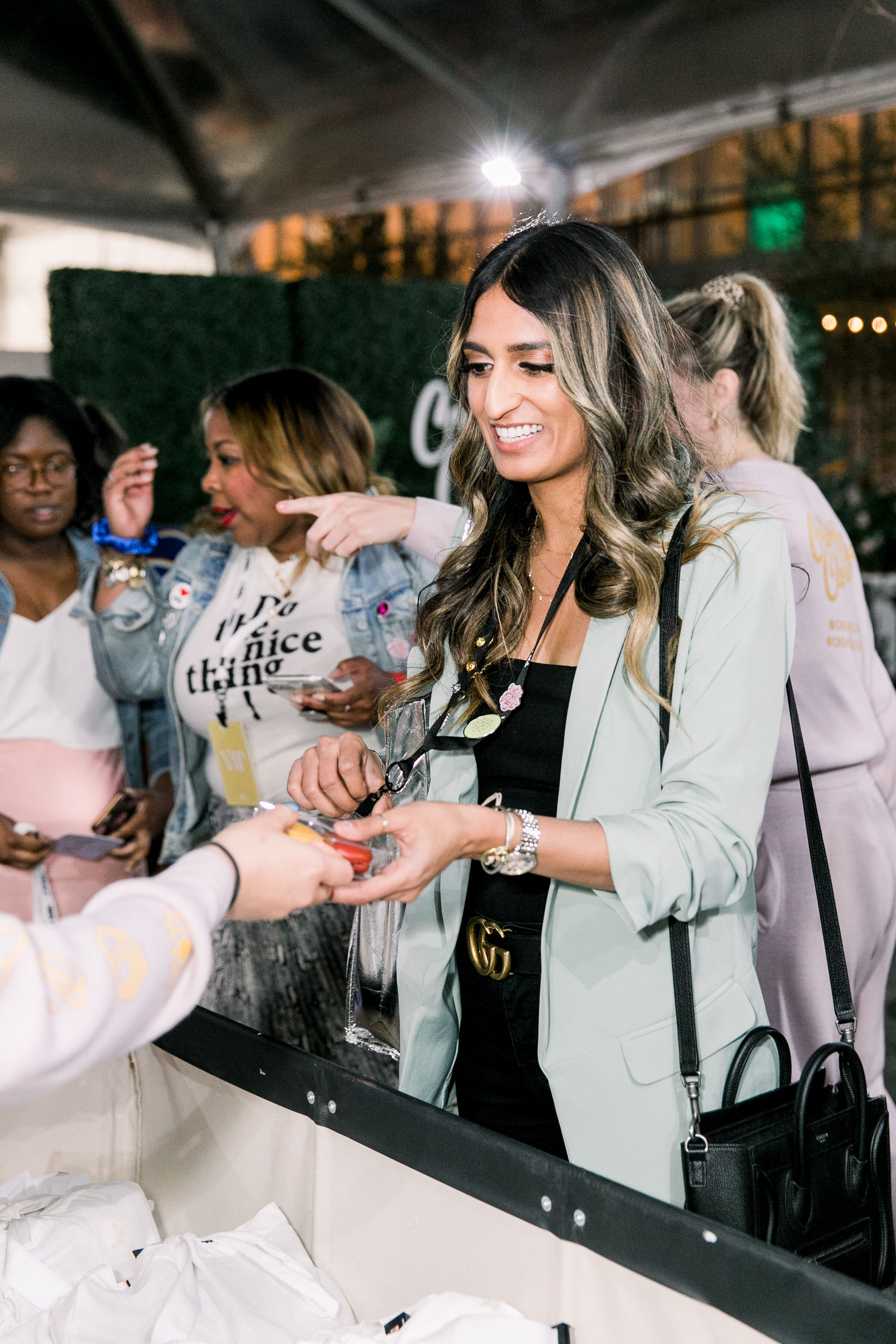
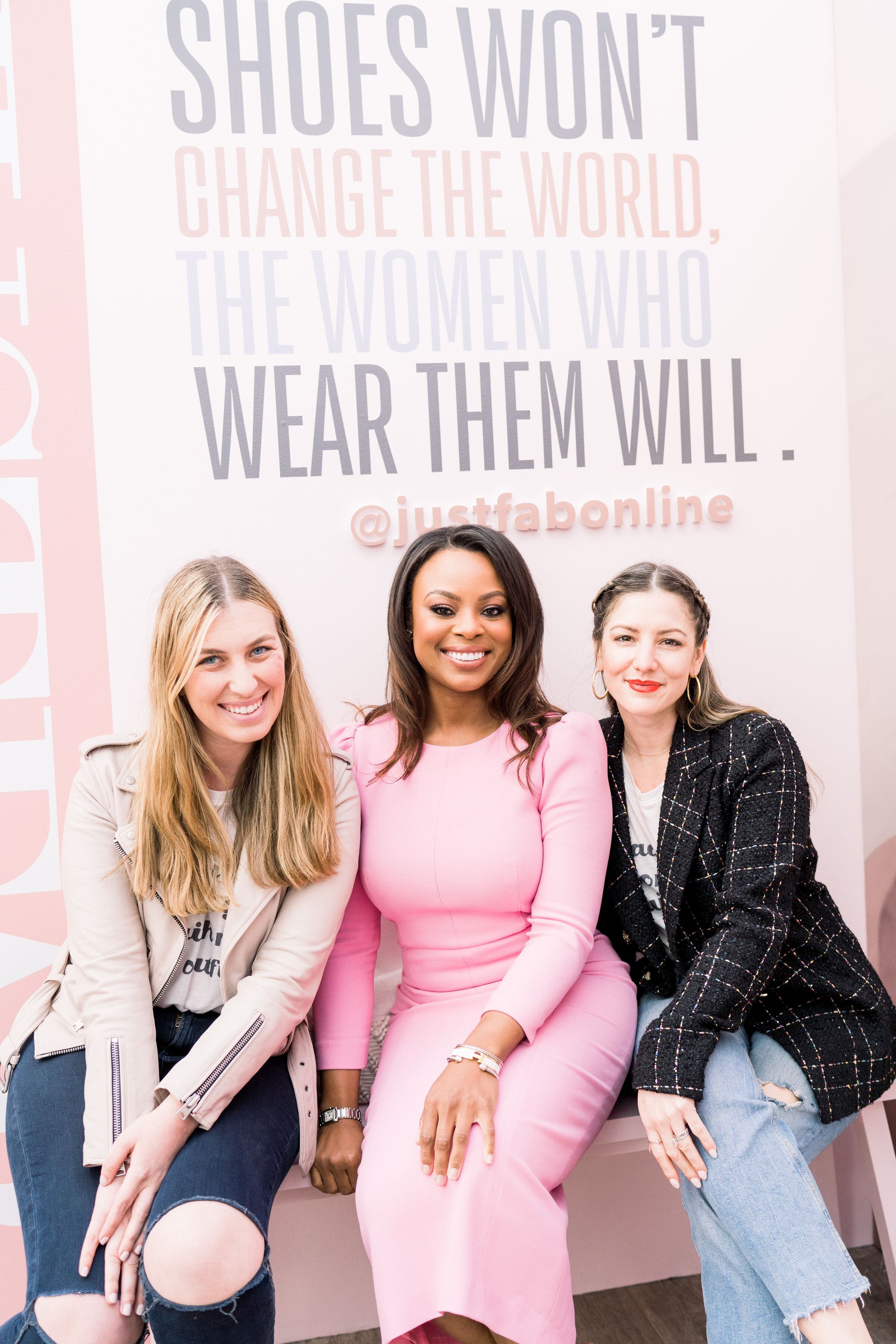
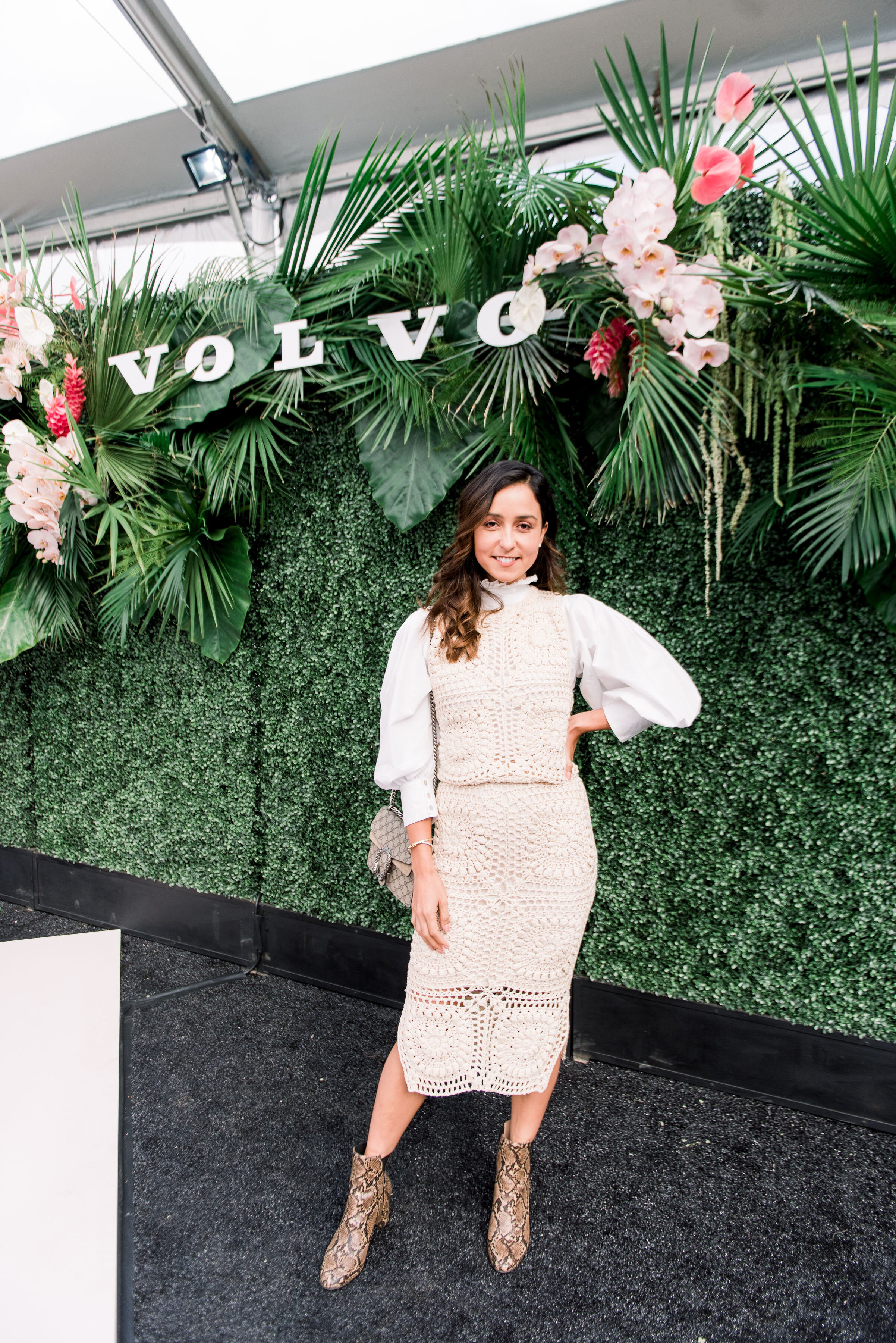

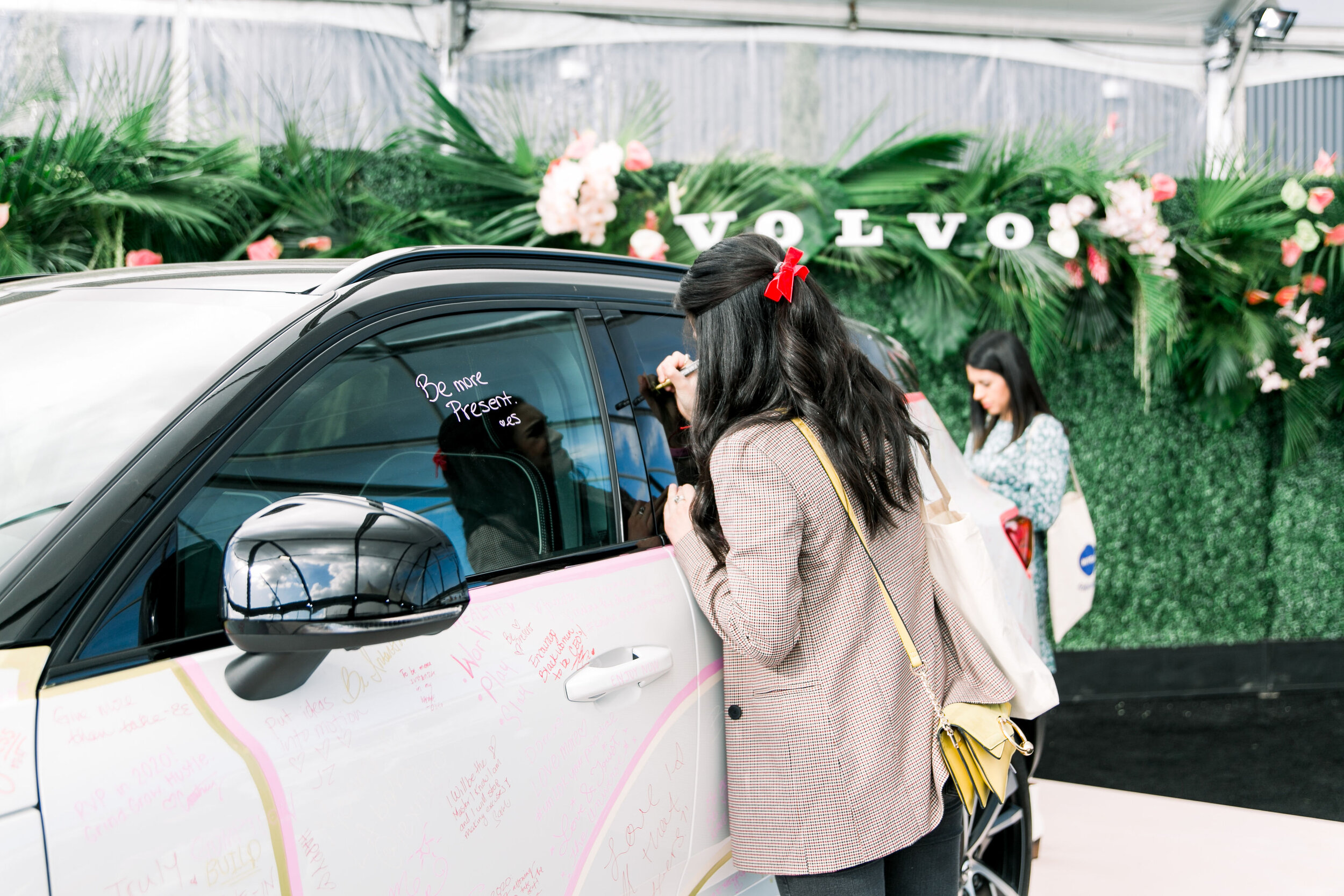
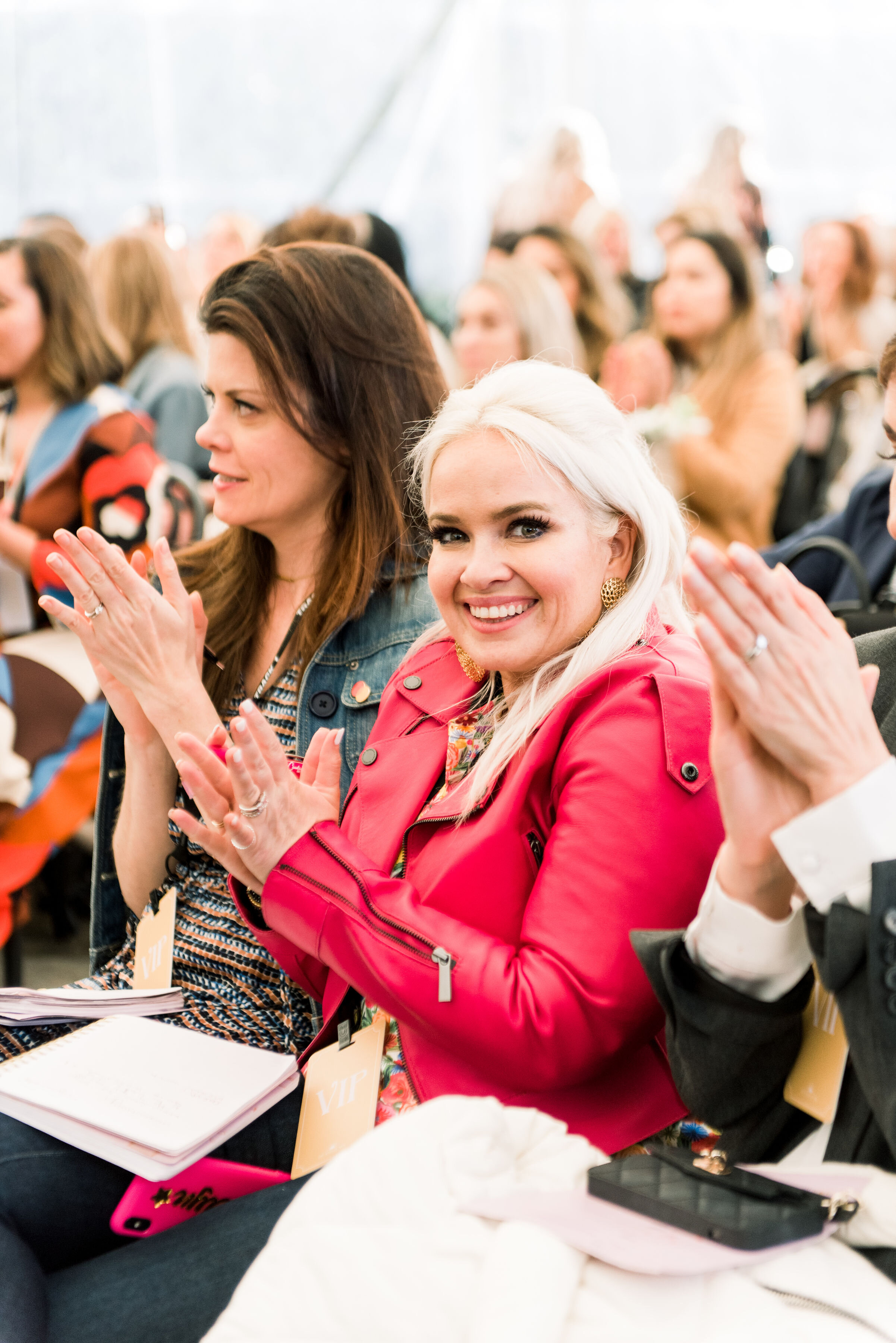
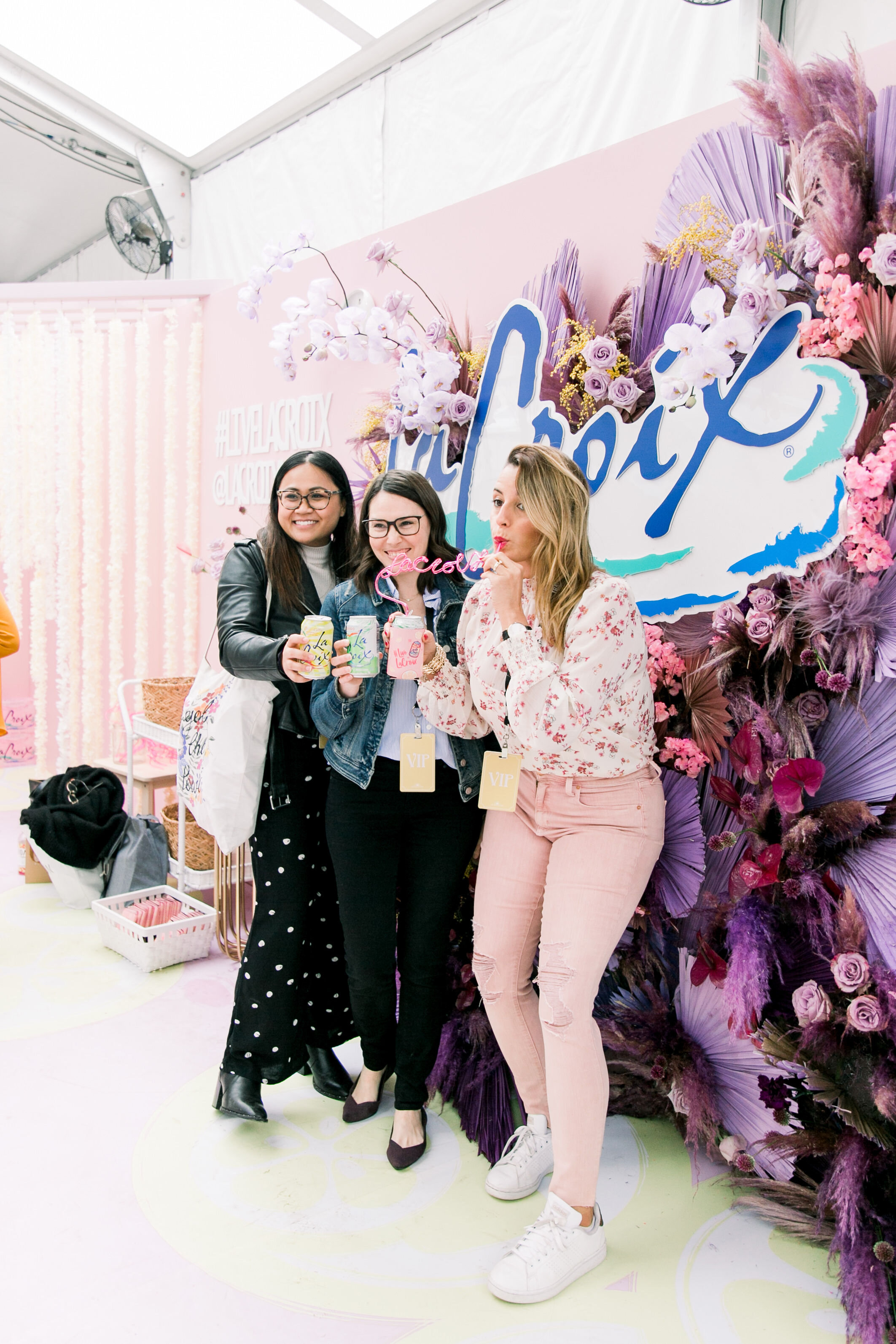
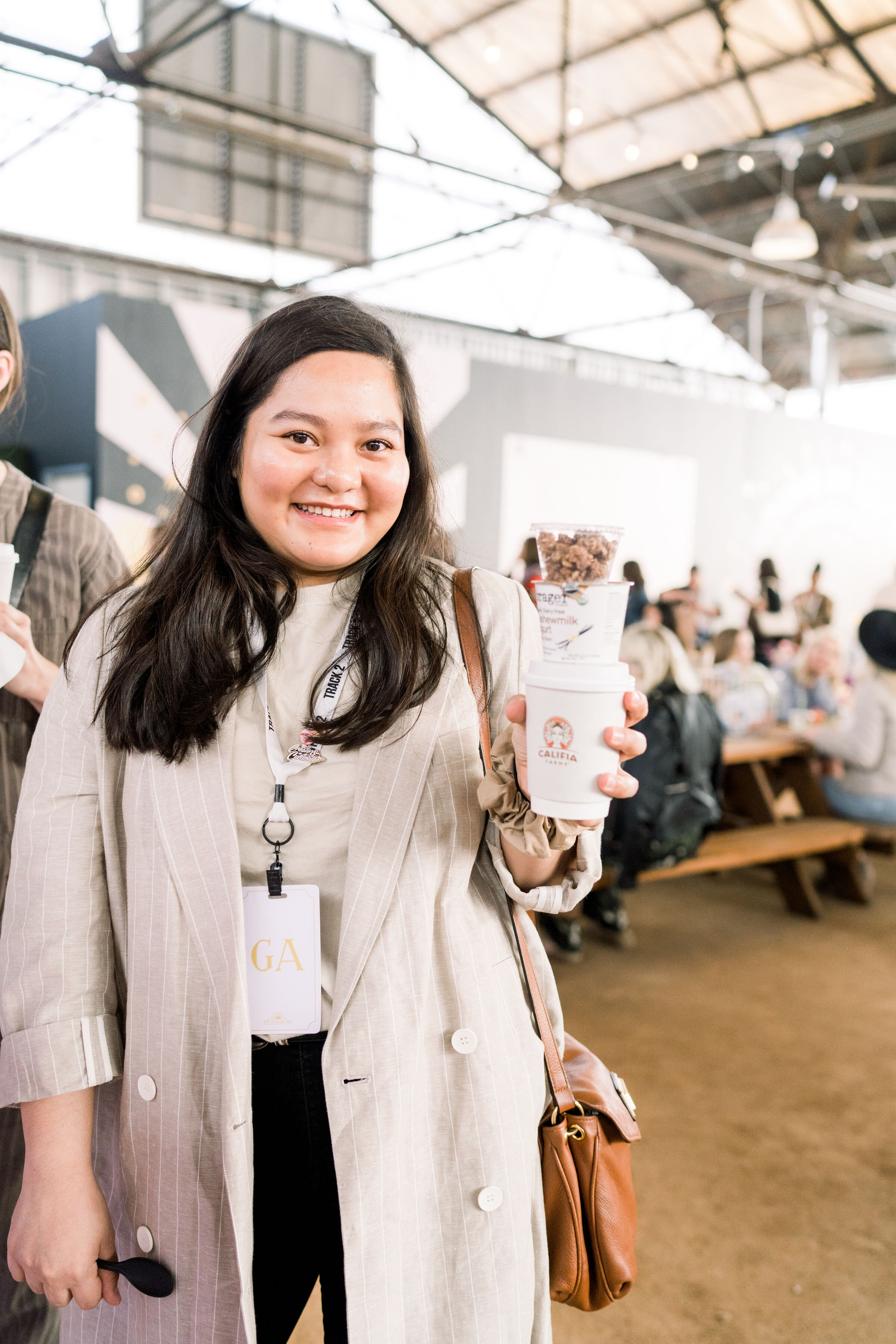
Photography: Smith House Photo
Create & Cultivate 100: Content Creator: Lindsay Peoples Wagner
"Do what others won’t dare to do!”
At just 29 years old, Lindsay Peoples Wagner has made waves as an unapologetic force in fashion, leaving the industry positively shaking in its designer boots. The Midwest girl from Wisconsin doesn’t mince words when talking about the challenges she’s faced in an industry that has been slow to put diversity and representation at the top of their style agenda. In addition to serving up serious style as fashion editor at New York Magazine's The Cut, Wagner wrote trailblazing articles about what it's like to be black in fashion and the lack of race and size diversity in street style photography telling Fashionista that she wanted her role to explore conversations about fashion, culture, and race.
And now that she has a platform as the editor in chief of Teen Vogue (she started her career there as an intern in the fashion closets), Wagner is making sure her readers feel seen and heard, both visually and editorially, in the pages of the magazine. And the industry is taking notice. This year she was listed on both Business of Fashion BOF 500 and Forbes 30 Under 30 as one of the youngest and only prominent black editors in the industry who has maintained a strong focus on issues of race, politics, and inclusive representation throughout her career in fashion media. She truly is a force of fashion—the voice of our generation—and she’s just getting started.
CREATE & CULTIVATE: You've worked your way up from closet intern to editor in chief of Teen Vogue—congratulations!—but most people don't know just how much hard work it took to get there. What can you share about your journey to this point? How hard is it to break into the world of fashion and magazines?
LINDSAY PEOPLES WAGNER: I’m very open about the fact that this has been a climb and that it still is every single day! I'm from Wisconsin, in the Midwest, where fashion isn’t really taken seriously, and I had no family connections in the industry or a trust fund to support me, so my experience has been very different than a lot of people in fashion. I've worked hard every day to prove that just because I don’t come from this world doesn’t mean I don’t belong and have something special to offer.
You were just announced as a BOF 500 honoree for your work in shaping the fashion industry today. As one of the youngest and only prominent black editors in the industry, how are you paving the way for other women of color? How do you break through the noise and maintain a strong voice and focus? How has this resonated with your readers and Teen Vogue community?
Everything I do is always through the lens of inclusivity, so whether we’re covering fashion, politics, or anything in between, I want our readers to truly feel seen and heard with the work that we're doing. I try to make sure that we are covering not only what’s culturally relevant, but also topics that others may be too scared to talk about. Being able to toe that line has resonated with our readers and even people who don’t regularly read Teen Vogue because we’re willing to have the necessary conversations.
What do you wish you had known when you were first starting out in the world of fashion? What have been some of the biggest lessons you've learned along the way?
You always hear that, as a black woman, you have to work three times as hard. Sometimes working hard is enough, and sometimes it’s not. That was so hard for me starting out. I come from a very humble and honest upbringing, and it was shocking to me when I moved to New York and started working in fashion because I didn’t realize how many things were based on nepotism, and financial status. I had to learn that I would, in time, make my own connections and build relationships with people, but it took a long time to get to a place where I was confident enough in myself to speak up.
When you hit a bump or hurdle in your career, how do you #FindNewRoads + switch gears to find success?
It’s corny, but whenever I feel like I’m in a rut, I always make a vision board. I write out all the crazy things I’m thinking about doing, write out inspirational quotes and bible verses, and just look at it on my wall every single day and meditate on it.
“Do what others won’t dare to do! We don’t need any more people in fashion who just have good taste and come from money. I’m eager for this industry to embrace people who have innovative ideas and the hunger to hustle.”
You have been the editor in chief of Teen Vogue for about a year now and have been responsible for creating truly groundbreaking content that is pushing our culture forward by bringing issues of race, politics and inclusive representation to the fore. What impact do you think this has had already on inciting change? Where do you hope to take it next? What are some of the stories you are most proud of so far?
I think that when people see how unapologetic I am personally, and how unapologetic we are at Teen Vogue, it incites change and makes other people want to speak up. I hope that we continue to foster a community of changemakers because that’s what this is all about. Nothing makes me more proud than when I get messages from young people saying they’ve read something on Teen Vogue that helped them. That’s truly the best feeling.
For you, the role of fashion editor has never just been about going to shows and writing market stories, can you tell us why? How do you see your role in the industry? How has that changed over the many roles from intern to EIC?
Because I didn't grow up with connections to this industry, I always felt as if I had to find my own lane and a way to make it work for me. It’s never been about the clothes, or celebrities, or clout. My mother once told me that in order to sustain myself in this industry I would need to be what I needed when I was younger, and that’s what I try to hold on to.
From the outside looking in, the leap from market editor to editor in chief seems like a fairly large one. How did you prepare for this role? How did your previous experience in the industry shape you for this opportunity? What do you think you've brought to the role that no-one else could? Why?
I was doing a lot more than traditional market work when I was at The Cut. I used that role to write about a lot of things that I cared about deeply, and in that time I was able to also produce a lot of shoots and create content that had an effect on the industry. Other market editors might not write articles like Street Style Is Killing Itself Focusing on Thin White Women because they’re hoping to become street style stars themselves, but that’s what I think was always different about me. I always needed the role, my work, to be more than surface level.
You have a very busy schedule with shows, appointments, and meetings. What does time management look like for you? How do you fit it all in? Can you share any work hacks?
Time management is so important! I've had to learn the hard way that I need to take time for myself. I recently stopped scheduling breakfast meetings, and use that time first thing in the day to meditate, workout, and go through my email. I also don’t make any plans for the weekends. I try to see my friends and people I need to see during the week when I’m already out, so that on the weekends if I feel like leaving the house I can but if not, I don’t feel bad.
You have built a personal brand on social media alongside your successful career as a fashion editor. How do you use social media as a platform for self-expression and to highlight the work you're doing at Teen Vogue and outside of that?
Social media is tough. I try not to take myself too seriously or take my presence on social media too seriously. I don’t curate my Instagram, I don’t plan it out. It’s really just what I feel like sharing in the moment, and it’s usually pieces I’m really proud of or my thoughts on culture.
“You always hear that, as a black woman, you have to work three times as hard. Sometimes working hard is enough, and sometimes it’s not. That was so hard for me starting out.”
With success comes opportunity, but that also means you have your hands full. What keeps you inspired and motivated to keep going even on your most challenging days?
What keeps me going is knowing that my place in this industry is bigger than me. There are so many young black women and femmes who look up to me, and for them, I have to keep going.
What about your job do you wish more people knew? What are some of the biggest misconceptions?
How mentally taxing it is! I have to make so many tough decisions in this role, it can be hard to juggle it all at only 29 years old.
What advice do you have for other aspiring fashion editors who dream of your career success?
Do what others won’t dare to do! We don’t need any more people in fashion who just have good taste and come from money. I’m eager for this industry to embrace people who have innovative ideas and the hunger to hustle.
What is the #1 book you always recommend? Why?
I Know Why The Caged Bird Sings by Maya Angelou is a book that changed my life and can be read over and over again.
VIEW THE FULL CREATE & CULTIVATE 100 CONTENT CREATOR LIST HERE.
Create & Cultivate 100: Beauty: Miranda Kerr
The original clean crusader on building an empire with integrity.
Miranda Kerr is a face and a name we’re all familiar with. She has fronted campaigns for major luxury brands and walked their designer runways at every fashion week around the world, but now the supermodel has turned her personal brand (and her passion for wellness) into a booming international business, KORA Organics.
But here’s where it gets interesting. Kerr launched the brand back in 2009 way before clean beauty was even a buzz word. Now, the natural beauty market is worth over $13.2 billion of the $532 billion beauty industry and growing rapidly. But for Kerr, it’s not just about being clean and certified organic, it’s also about creating efficacious products that deliver results. And she has the case studies and consumer reviews to prove it.
We tap the clean crusader to reveal her secrets to success, how she made the career pivot to build a global beauty empire, and why clean living has always been a passion close to her heart.
CREATE & CULTIVATE: You've taken the time to slowly build Kora Organics and made sure that every product you launch lives up to your high standards. Why did you choose this approach rather than following trends or doing larger product launches?
MIRANDA KERR: “For me, it’s all about the results and performance—I don’t want a cabinet full of products that don’t produce results. I’m a busy mum, so I need a handful of trusted products that work. In developing KORA Organics, I started with the essentials first and then have added products over time. Each product is very considered. I love learning about new innovative powerful ingredients and formulations that push the boundaries in certified organic skincare, and we work with the best organic chemists in the world.
“We take our time and just work to the beat of our own drum. We conduct all our stability testing and consumer studies and the results speak for themselves—the products really work. I enjoy every aspect of research and development and test all the products on myself. It’s incredible to know you can achieve such powerful results in a healthy way.”
You chose to self-fund Kora Organics. Why was this the right choice for you? What advice would you give to others thinking of doing the same?
“I raised a small amount of money when I first launched KORA to get started. I currently own 95% and still have the original 5% investor. I am fortunate enough that I’ve saved my money over the last 20 years and I’ve been able to invest it into something I’m super passionate about. It was a conscious decision for me because I wanted to be in control of my business. From the beginning, I have had such a clear vision of what I wanted the products to be and I didn’t want someone coming in to alter that or water the products down to try and make a quick dollar. I wanted the products to be efficacious and results-driven, and I knew the way I wanted to present the brand through packaging and marketing. I didn't want it to be diluted in any way with anyone else's ideas.
“To this day I haven’t taken a dollar out of the company, it all gets reinvested back into the business. In saying that there may come a time I will consider working with another investor to further expand the growth of the company. It’s good to have an open mind about these things it’s just I haven’t needed it yet.”
What changes do you hope to see in the beauty industry in the future?
“I would love to see greater education and regulation in the beauty industry to call out the carcinogenic and toxic chemicals contained in products. The message is getting out there which is a positive step, but more can be done. We know that what we put on our skin is absorbed into our bloodstream, so consumers have a right to know what they are putting on their skin, and also the skin of their children and families.
“Clean beauty is a wonderful step in the right direction but certified organic is so much more than clean beauty—there are more antioxidants in the organic ingredients used because the produce is grown on soil that is nutrient-rich which is also why people buy organic food. It’s a no brainer that you are going to have more effective results because you are using a product that isn’t just clean but also contains powerful certified organic ingredients.”
“I feel it’s important to really trust your instincts, empower your team and don’t be afraid to ask questions.”
When you hit a bump or hurdle in your career, how do you #FindNewRoads + switch gears to find success?
“Starting any new business is full of learning curves and I am still learning every day—I see every experience as an opportunity to grow and learn. I feel it’s important to really trust your instincts, empower your team and don’t be afraid to ask questions.
1. Really trust your gut.
”It’s good to listen to that and take it into consideration, but if you still feel that gut feeling about something then go for it. There have been a couple of times where different people we work with told me not to do something because they wouldn’t carry that product. I thought okay, I’m going to do it anyway, then it sells like crazy on our website and they end up taking it later.
2. Being able to empower your team and understand the value of your team as a leader.
”You are only as good as your team so my job is to really nurture and develop that culture and bring out the best in each team member. That includes direct feedback, constructive feedback and challenging them to strive beyond what their goals may be so they don’t plateau in their career or development. It’s also important to let them know that they are appreciated and heard no matter what their position is—everyone is valuable and needed. At the end of the day, teamwork makes the dream work! I couldn’t do it on my own.
3. Don’t be afraid to ask for advice or to ask if you don’t understand something.
”When I am going through the P&L with our CFO that is not my forte but I ask him what do you mean by that? or maybe this is a silly question but can you explain this to me? and I have learned so much. Instead of just pretending to understand I ask him to show me the formula and teach me along the way. I was once afraid to ask for help because I didn’t want to put anyone out, but I’ve realized people love helping when they can.”
How do you define beauty? What makes you feel beautiful?
“I feel beauty comes from within. When you have a kind heart it shows, and people can feel it. That’s what I feel makes someone beautiful—being kind, thoughtful and sincere. For me to feel my most beautiful, it’s about keeping my mind, body, and skin in balance because I believe the health of all three are connected. I try to meditate each morning, choose positive thoughts throughout the day and spend time quality time with loved ones. I exercise daily and eat healthy, organic foods (the majority of the time) to feed my body with the nutrients it needs to function and feel its best. I choose to use products that are healthy for me both inside and out. When I feel my best in the inside it shows on the outside for sure and that’s when I feel the most beautiful.
With Kora Organics you promote "total wellness" that goes beyond your products. Where did this message come from? How has it shaped the direction of your business?
“Our philosophy at KORA is to; Feed your MIND with positive affirmations and self-love; Feed your BODY with the nutrients it needs to function at its best; and Feed your SKIN with products to help detoxify, nourish and revitalize. Our products are not only healthy to use and of the highest quality, integrity, and efficacy, they also aim to inspire and uplift customers. KORA Organics encourages you to take a moment out of your busy day to take care of yourself physically, mentally and emotionally.
“I added the unique vibrations of Rose Quartz to all of the products because I believe in the healing and protective powers of crystals. Rose quartz is a pink-colored crystal gemstone that is believed to carry a very gentle, soothing energy to encourage love and acceptance of ourselves and others. It is also said to have high vibrations that can help heal and protect the heart. During the manufacturing process of our skincare products, the entire formula is touched upon by Rose Quartz crystals, so the vibration of love flows through the crystals, into the products, and onto our customers.
“Another unique aspect of KORA is the use of positive words on the back of each of our products. Positive thoughts create positive energy vibrations within the body, so we have adopted the principles of Dr. Masaru Emoto’s work by applying positive words on the back of each of our products. Our intent in doing this is that the vibrational energy of the word has a positive effect on the user and can inspire positivity.”
You've said that you test every Kora product yourself and it is clear that you are very hands-on in your business. Why is this approach important to you? What advice do you have for balancing a hands-on approach and delegating?
“If I didn’t want to use and trust the product myself, I wouldn’t want to sell it to any consumers. As you say I am very hands-on in my business and I truly believe in my products, that’s why it is important for me to test the products on myself and understand what is in them—I know they are the very best they can be. I think it’s important to understand all aspects of the business and work to your strongest skillset and delegate to team members who are stronger in different areas.”
“Starting any new business is full of learning curves and I am still learning every day—I see every experience as an opportunity to grow and learn.”
Where do you find the most inspiration? What drives your passion?
“I’m inspired every day, everything from nature, art, and music. My husband, family, and friends also inspire me, as does traveling and experiencing different cultures. From a business perspective, my inspiration and passion come from developing products I want to use for myself. I am also constantly inspired by our customers and the testimonials we receive telling us about the positive results they are getting from using our products and how they not only enhance the health or their skin but also their confidence.”
What is next for Kora Organics? What new innovations are coming our way?
“This year has been one of our most exciting years to date in terms of product launches. We launched several new products, including our much loved Noni Glow Sleeping Mask, two new lip products, the Noni Lip Tint and Noni Lip Treatment, our Sun-Kissed Glow Body Oil, plus the recently launched Noni Bright Vitamin C Serum. I’ve been working on new formulations for some exciting new products for next year and I can’t wait to launch them. I hope that KORA continues to pave the way for organic beauty and aids in further educating consumers about the importance of knowing what they are putting on their skin.”
How do you set yourself apart from other major players in the industry?
“To be honest, I didn’t even realize the extent that I walk to the rhythm of my own drum and do my own thing, but the more people I speak to, the more I’ve realized that I really do, do my own thing. Being certified organic is a big deal for my team and me because it requires a lot of work and a lot of auditing, but it ensures our brand has transparency. Customers also have that insurance and confidence they are getting what they are paying for. I think that consumers having this knowledge and KORA Organics being so transparent it sets us apart from most other brands on the market. We’re currently the only certified organic brand that Sephora carries. So to me, there really is no competition.”
Photographer: Nino Munoz for KORA Organics
Day in the Life: How a Modern-Day Philanthropist Runs Her Purpose-Driven Company
The founder of ALMA gives us a glimpse into her day-to-day life at a philanthropic startup.
Ever wondered what people do at work? If you’re a voyeur like us, then you’ll love our series A Day in the Life where we get a real behind-the-scenes glimpse into the professional lives of CEOs, business owners, and entrepreneurs we admire. From their morning routine to the rituals that set them up for success and questions such as “do you ever reach inbox zero?” because we all want to know how to streamline our lives.
“As most entrepreneurs will probably tell you, there’s no ‘average day’ in startup life. In the last year since starting ALMA, I’m no longer surprised by the daily surprises.”
—Michelle Rittenhouse
We’ve all heard the quote, “be the change you wish to see in the world” but if you want to see what this can actually look like when put into practice, check out ALMA. The co-founders Michelle Rittenhouse and Dan Hill are pretty perfect examples. The pair met while working at Airbnb and after realizing that they shared mutual passions for change-making and empowering others, they decided to create ALMA.
It’s not every day that you hear stories of people wanting to see a change in the world and actually taking initiative to make it happen. Rittenhouse and Hill have a very specific vision for their mission-based organization. In Latin, ALMA means “nourishing,” and that is exactly what this company intends to do: nourish and empower a new generation of philanthropists.
The organization is a platform that brings together nonprofits and donors, with an emphasis on transparency and collaboration. We sat down with Rittenhouse to walk us through a day in the life of the successful philanthropist, and to give us insight into what it takes to run a purpose-driven organization.
What does an average day in your life look like?
“As most entrepreneurs will probably tell you, there’s no ‘average day’ in startup life. In the last year since starting ALMA, I’m no longer surprised by the daily surprises. In a typical day, I might meet with a couple of nonprofit partners, launch an Instagram campaign to support the pro-choice movement, then test our new donation flow designs. I’m constantly switching gears.
“That said, I love routines to help me stay organized, so I build routines into my week whenever possible. Monday morning starts with a weekly planning meeting, and Friday ends by recapping the week with a PPF (Progress, Plans, and Fires). The day-to-day work changes constantly, but anchoring my week with those routines helps me to stay focused on the top priorities.”
What time do you get up? What’s the first thing you do upon waking?
“On a good day, I’ll get up at 6 AM and run, but realistically, most days it’s closer to 7 AM. I’m guilty—the first thing I do is check my phone. Since our product is very closely tied to trending topics, I always check a few news sources to see what issues people are starting to stand behind, and think about how ALMA might help be part of the conversation. I also read emails but don’t respond to any until I’m in the office in front of my computer. Glancing through emails, my schedule, and catching up on the news helps me prepare for the day ahead.”
Are you a night owl or a morning person? When do you do your most important work and why?
“I’ve always been a night owl. If I have hard problems to solve, particularly if it requires going deep into the data, I find that I’m able to focus better late at night. Workdays can be too filled with distractions and competing priorities, but at night I can clear everything off my plate and go deep on a single idea. “
What does your morning, pre-work routine look like? What rituals set you up for success?
“First, breakfast! I need a good healthy breakfast before heading to the office. Lately, I’ve been prepping and freezing ingredients for smoothies to easily make throughout the week. I currently have an hour-long commute on a metro (with no wifi!), so I’ve been listening to podcasts or reading on the way to work which is a great way to ease into the day.”
Being a founder means you are wearing so many hats and across so many facets of the business. How do you manage your time effectively?
“I’m a ruthless list person, and I need to actually write things down. Nothing is quite as satisfying as crossing something off my list and I don’t get the same thrill from checking it off online. I’ve also learned when to ask for help or outsource certain areas of the company. I’m never going to be an expert in every aspect that’s required to build a business, so we lean on the experts when it makes sense.”
I’ve learned when to ask for help or outsource certain areas of the company. I’m never going to be an expert in every aspect that’s required to build a business, so we lean on the experts when it makes sense.”
—Michelle Rittenhouse
Do you ever reach inbox zero? How do you handle the constant influx of inquiries and communication entrepreneurs are so familiar with?
“Yep, though not too often. Since most of my team communication happens in real-time over Slack, email is less time-sensitive than it used to be. I tend to batch my email and crank through it in bursts, rather than constantly monitoring it all day. I don’t like to let emails dangle, so I’ve gotten better at quick replies, even if it’s letting the recipient know I’ll get back to them later. “
What are some work habits that help you stay healthy, productive, and on track to reach your goals?
“Talking to our customers is one of the most energizing and productive things I can do. It helps me see ALMA through their eyes, and they often have great ideas. I can’t tell you the number of strangers I’ve approached in coffee shops to ask them about their perspectives on donating to charity. It’s awkward at first, but oh-so-productive.
“Outside of work habits, it’s the self-care routines I’ve built that keep me balanced. I’ve always been a runner, and it’s critical for me to find the time and space for long runs on the weekends. It clears my head and sharpens my focus.”
When do you go to bed? What’s your “optimal” # of sleep hours?
I” aim for 11 PM. I recently set up Downtime on my iPhone it’s been a game-changer (Settings > Screentime > Downtime). At 11:15 pm, all my apps automatically lock. That’s my signal to put the phone down and grab a book.
“My other tip is keeping a journal. I’ve been writing in a five-year-journal for the last few years, which helps me unwind and clear my mind before bed.”
What’s the most rewarding part of your day?
“Hearing from happy customers is always the best part of my day. My company, ALMA, is a donation platform empowering a new generation of philanthropists, mostly younger, everyday donors giving $20 a month or so to the causes they care about. We hear constantly from donors that they’re much more satisfied with this type of intentional giving compared to just donating reactively to friend’s fundraisers or whenever there’s a natural disaster. We’re sending $1,000s of dollars to our nonprofit partners each month, including many small, local nonprofits, so this support is very impactful for them already.”
When did you know you wanted to start your own company? What was your journey like?
“I’ve had the itch for a long time, and last year the timing was right for me both personally and professionally. I was an early employee at LivingSocial, then worked at Airbnb for years, so I’ve been lucky to twice experience once-in-a-career type startup growth. When I was thinking about my next steps after leaving Airbnb, I knew I didn’t want to go work for a large company, nor was I eager to join someone else’s start-up. I had plenty of ideas and was eager to build something from scratch.”
What are some exciting projects you’re working on this month? What are you most excited for in 2019?
“It’s been great to see how active and passionate our generation is to drive change. In the first six months after launching ALMA, we raised over $500K for charity, with the average donation around $50. We’re connecting everyday people with really important causes. We’ve recently launched a number of big product updates, including the ability to donate to any verified nonprofit in the U.S. I can’t wait to see how much impact our community is able to drive over the next six months.”


